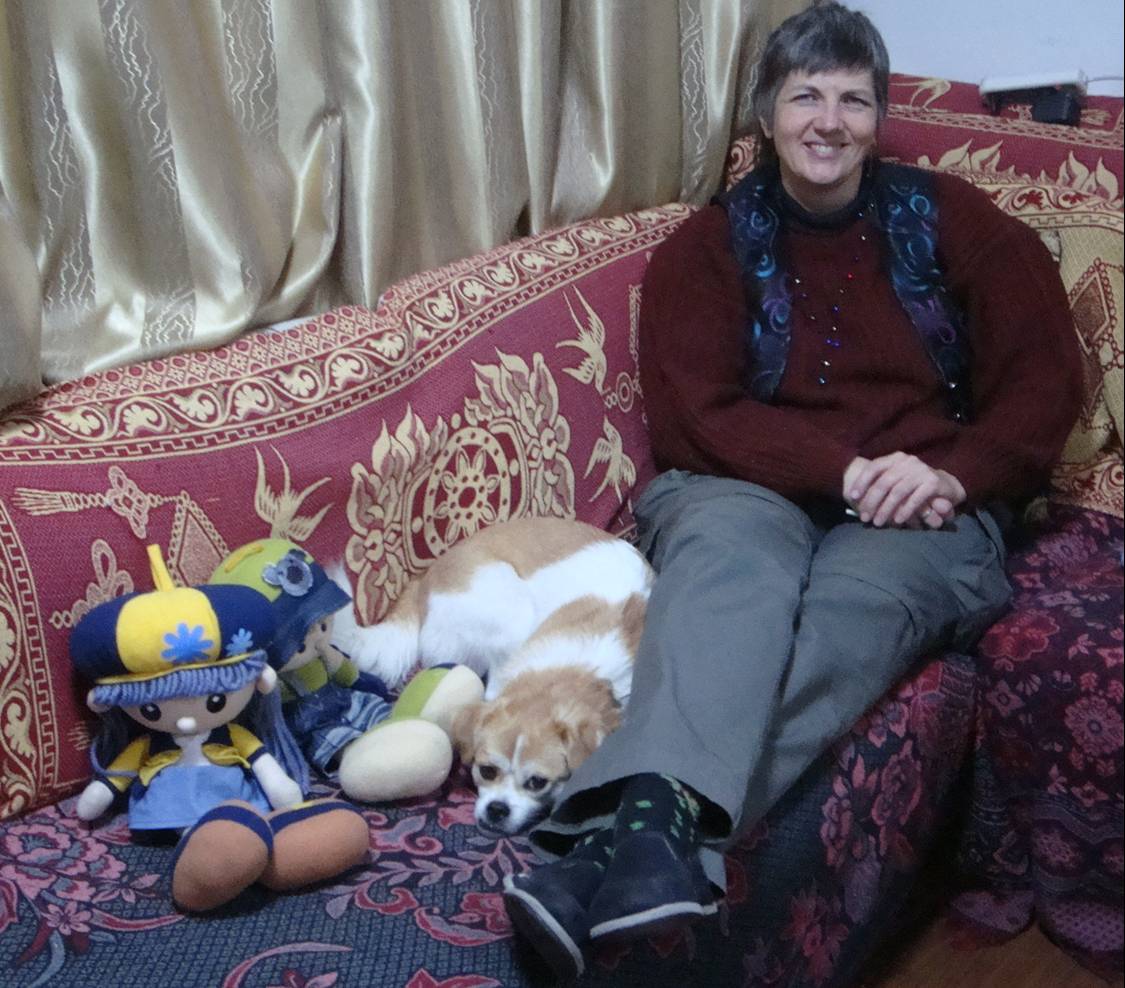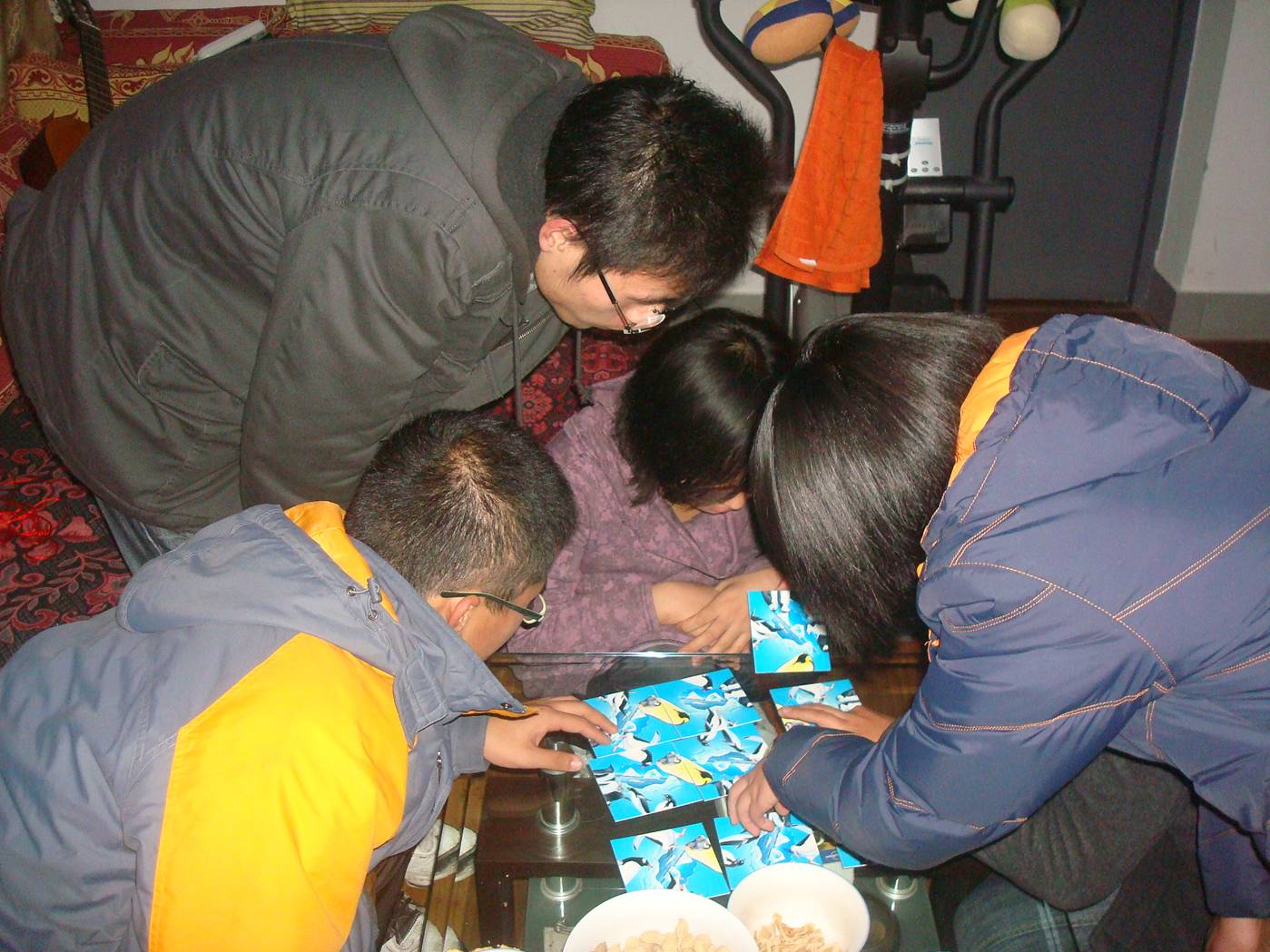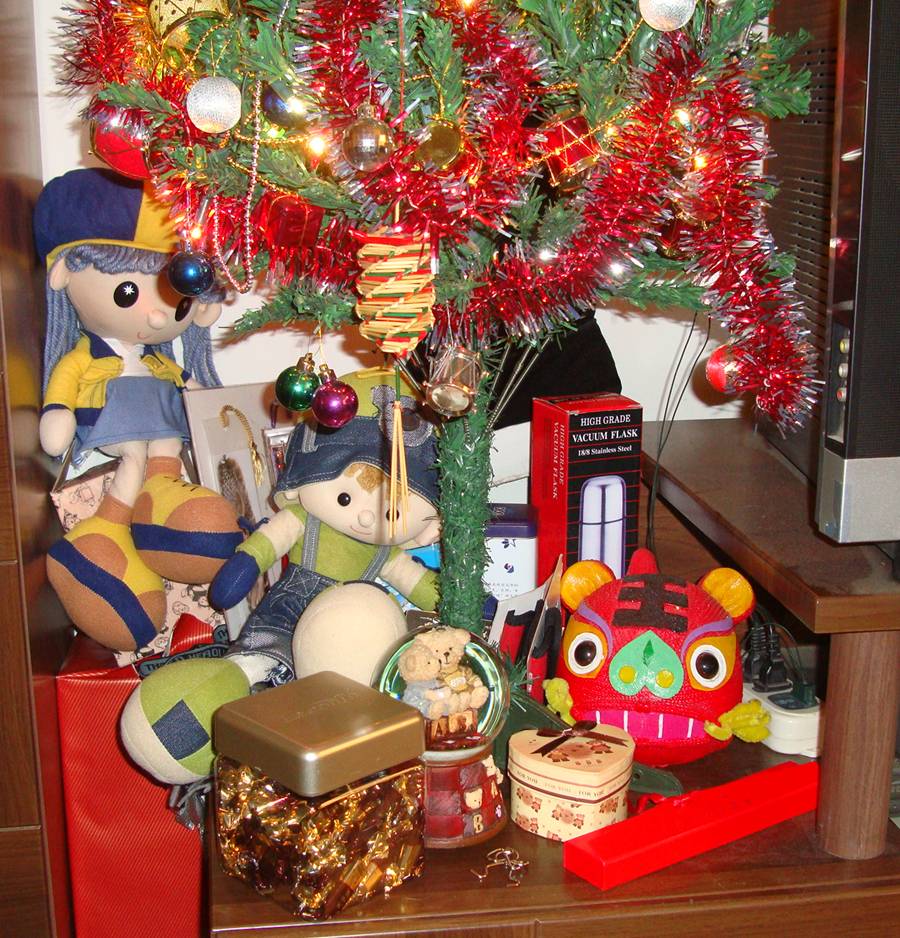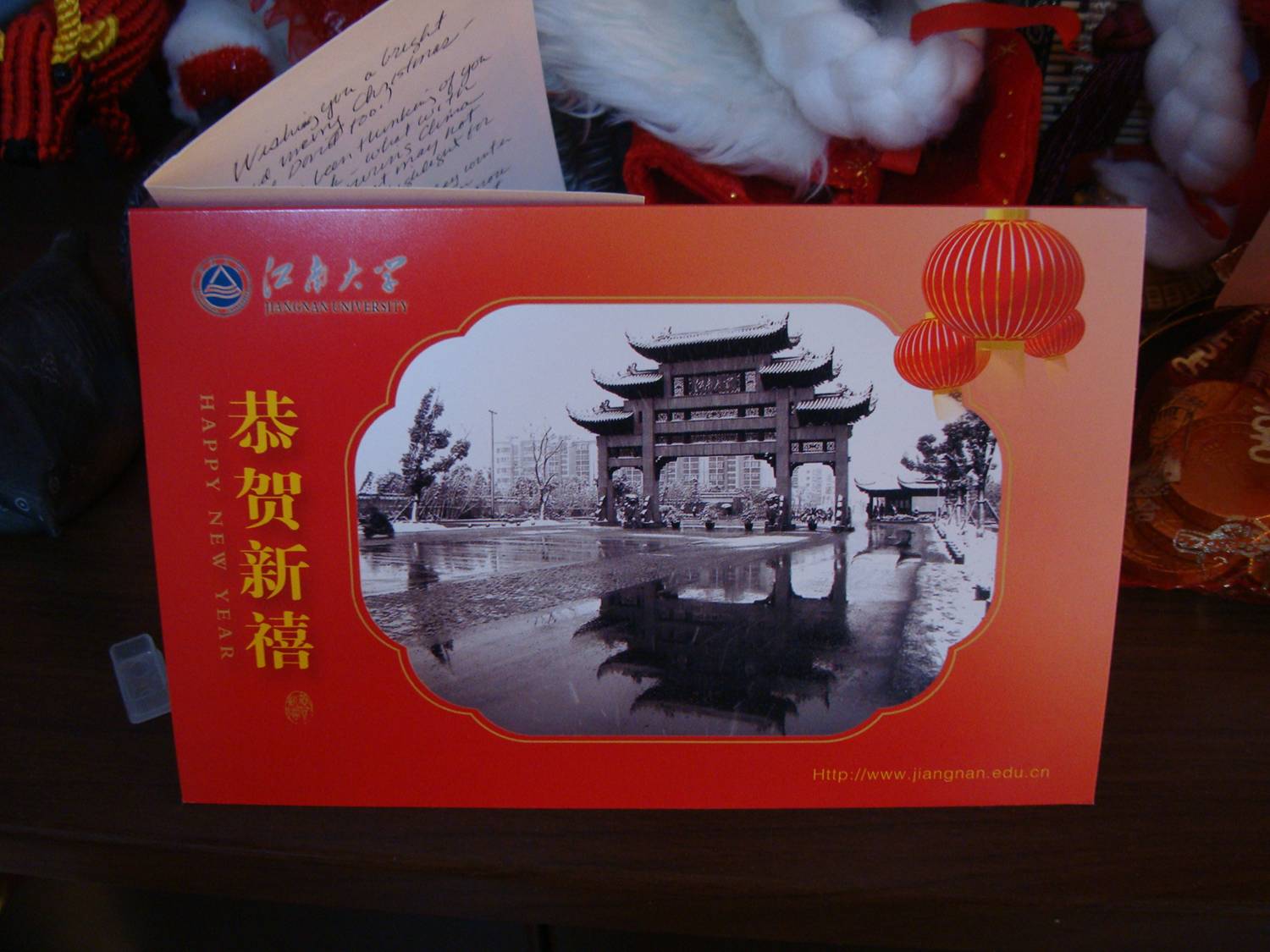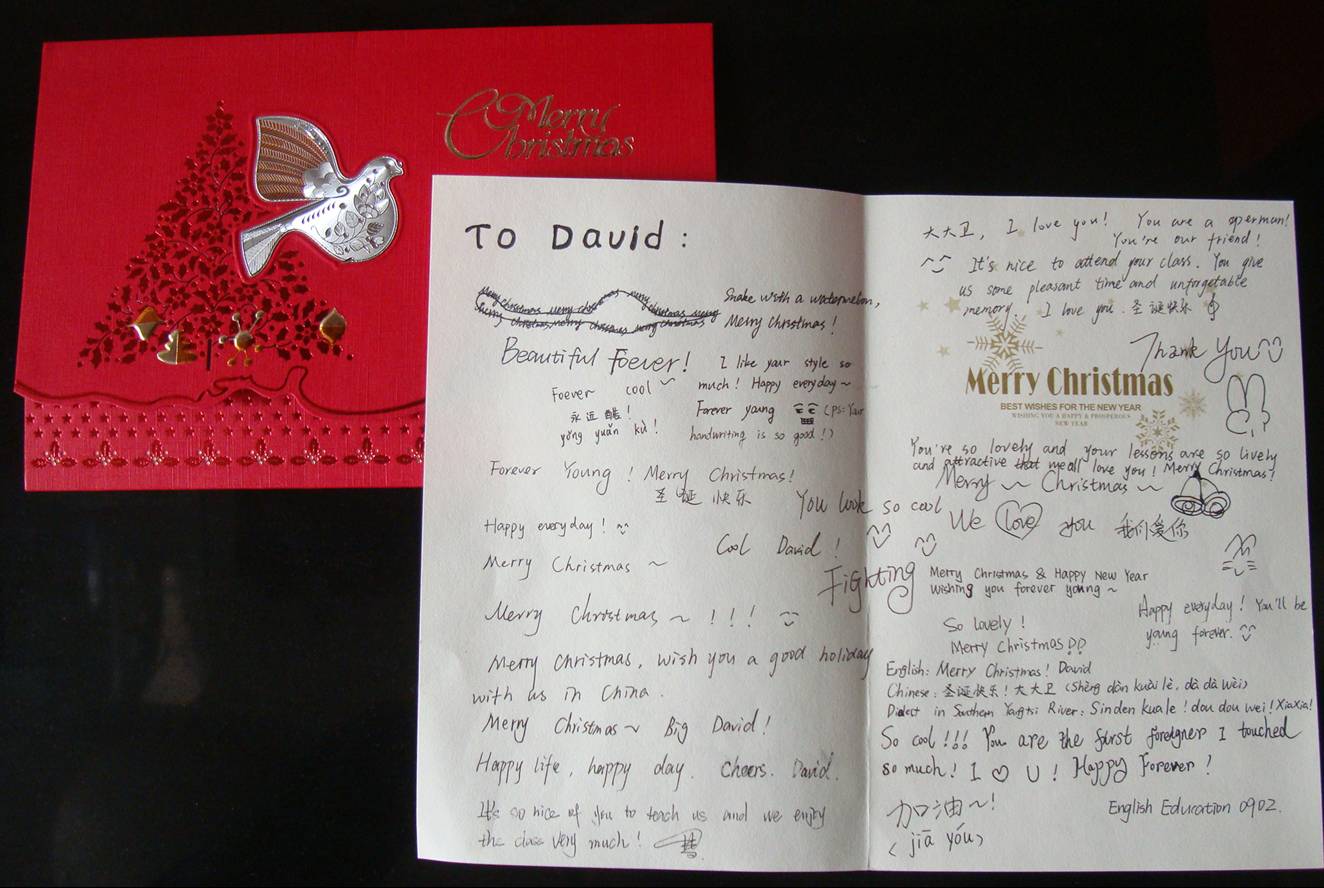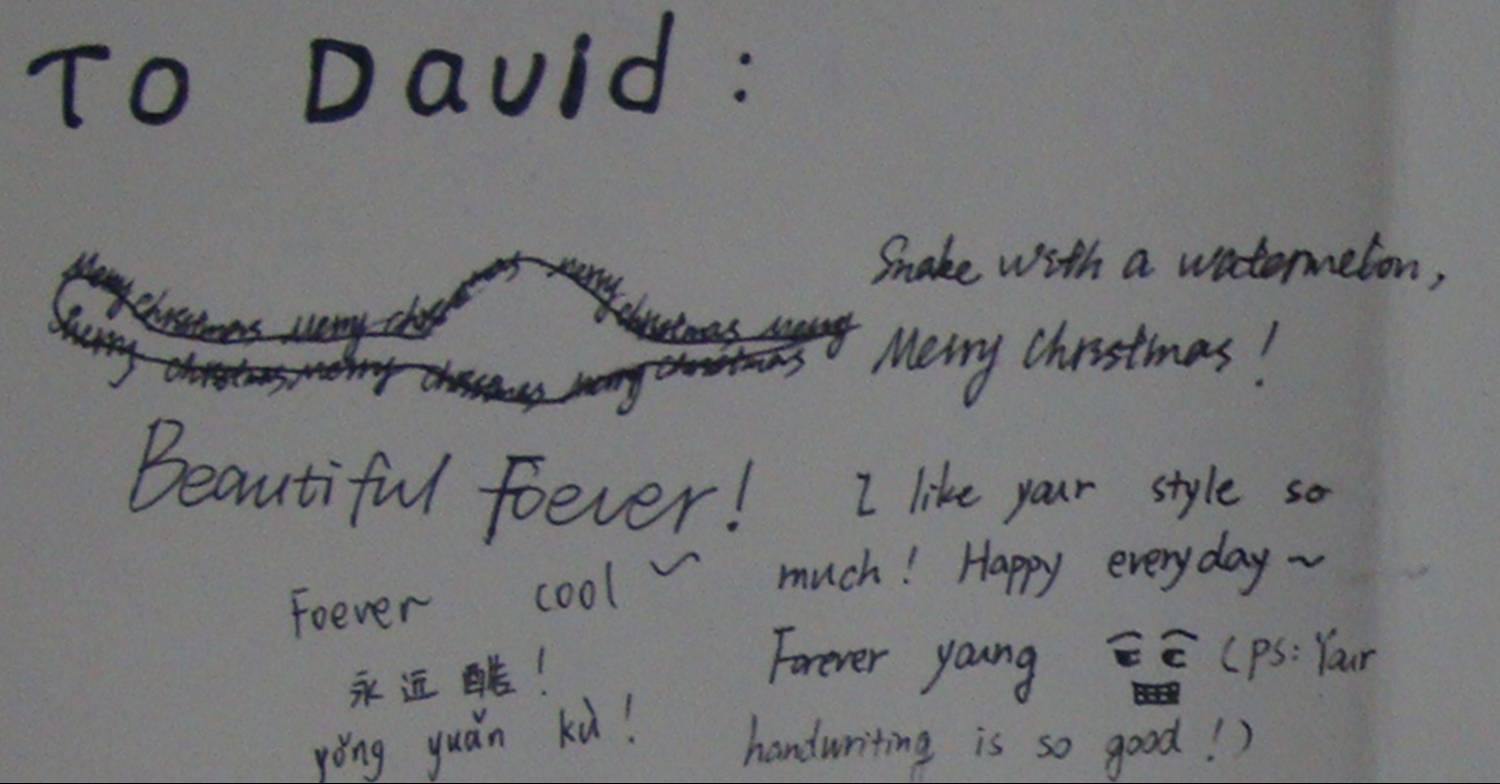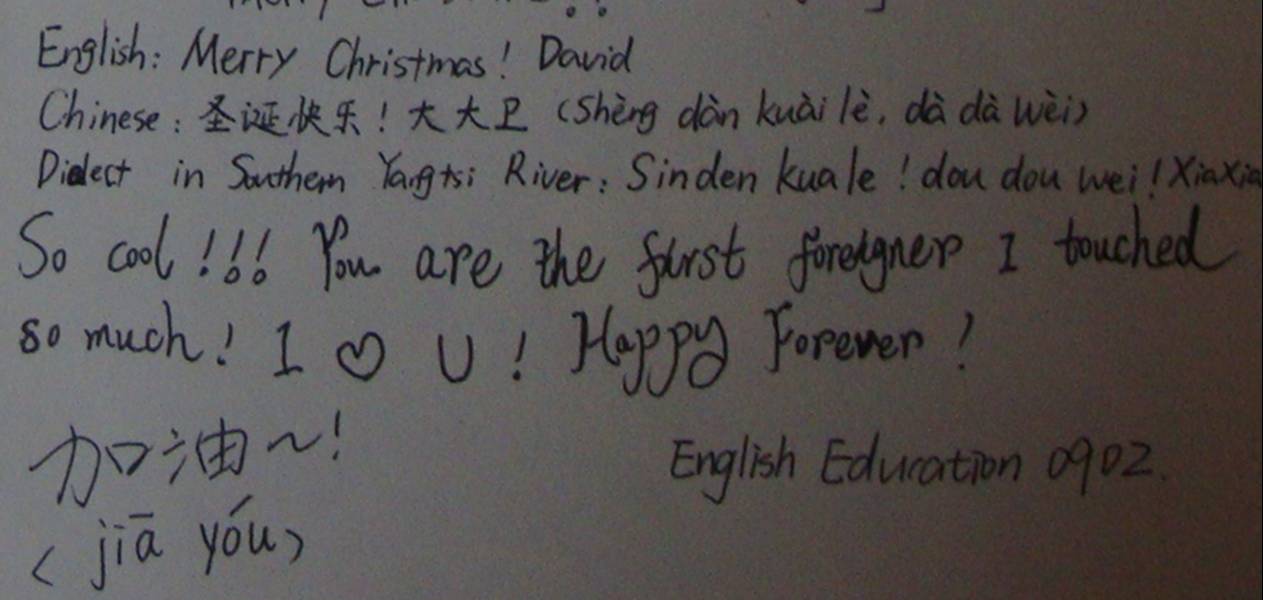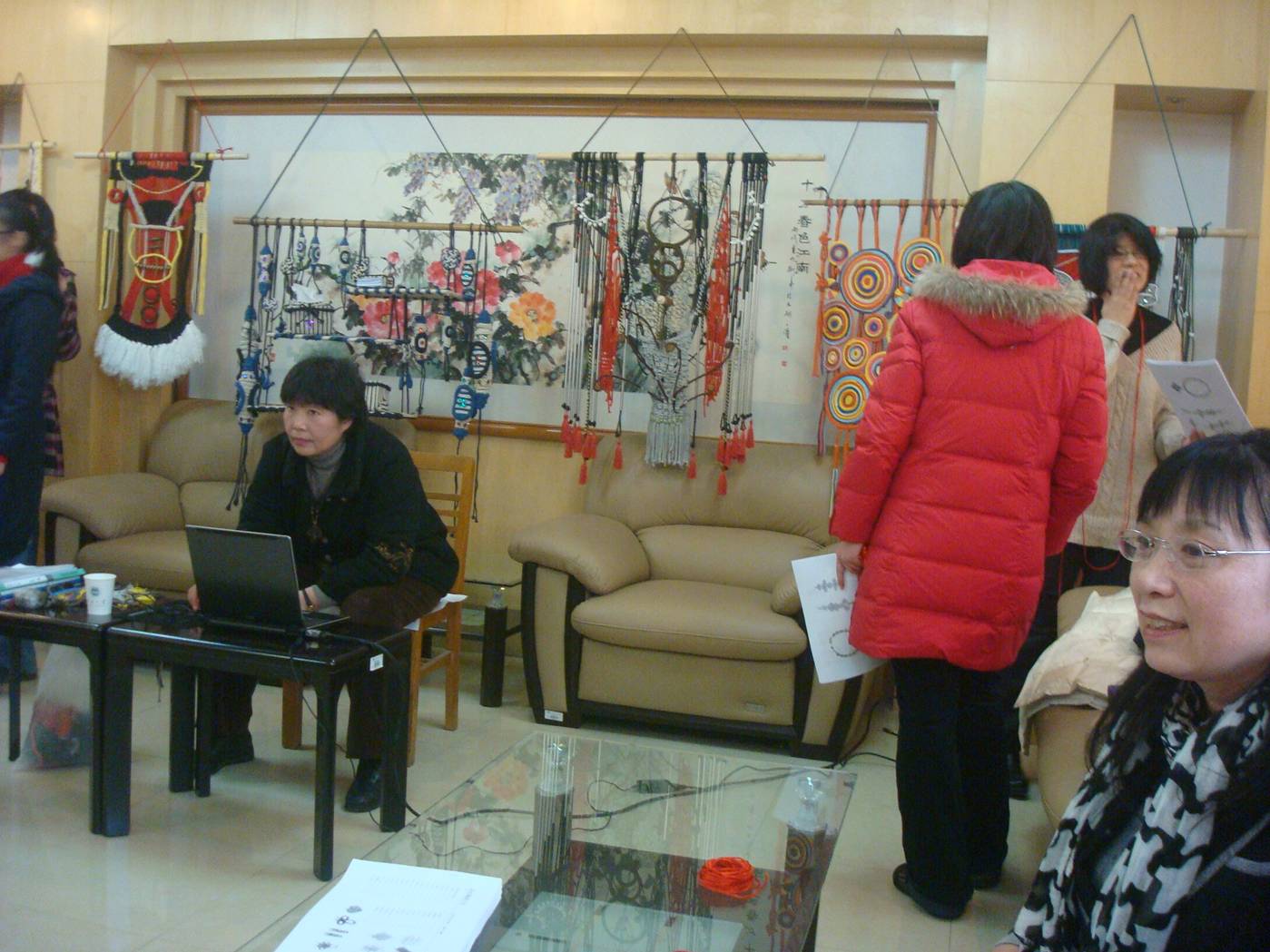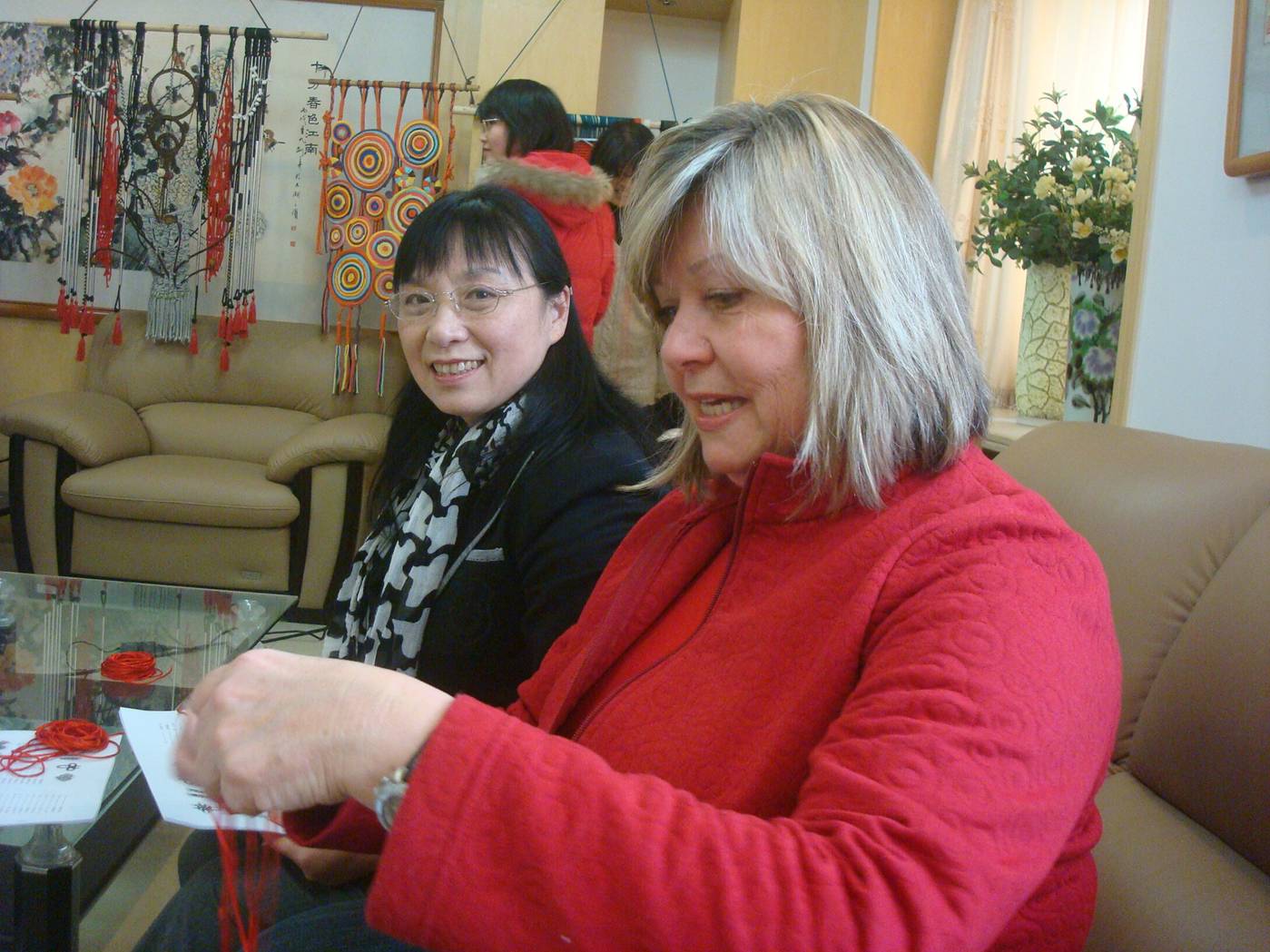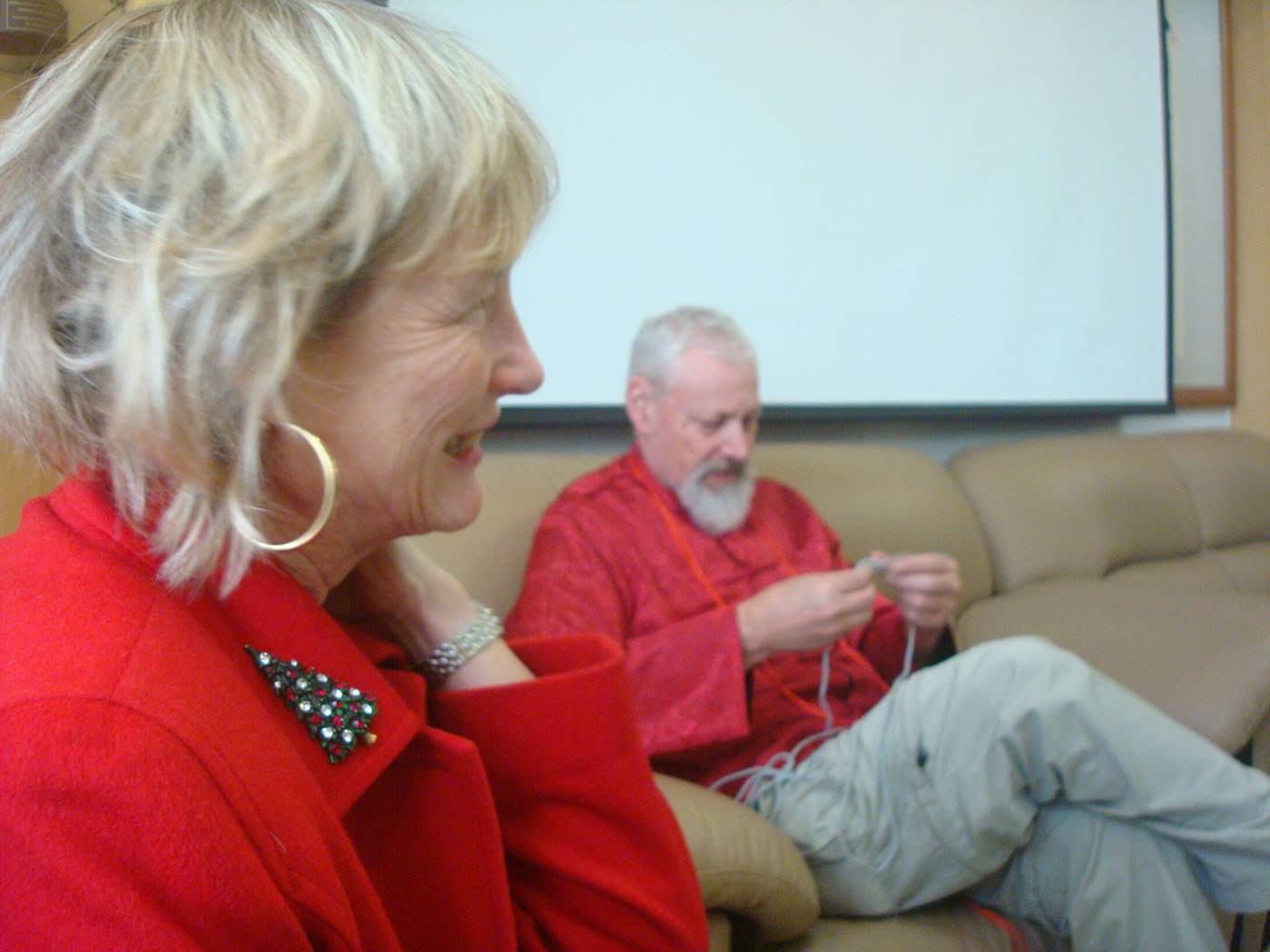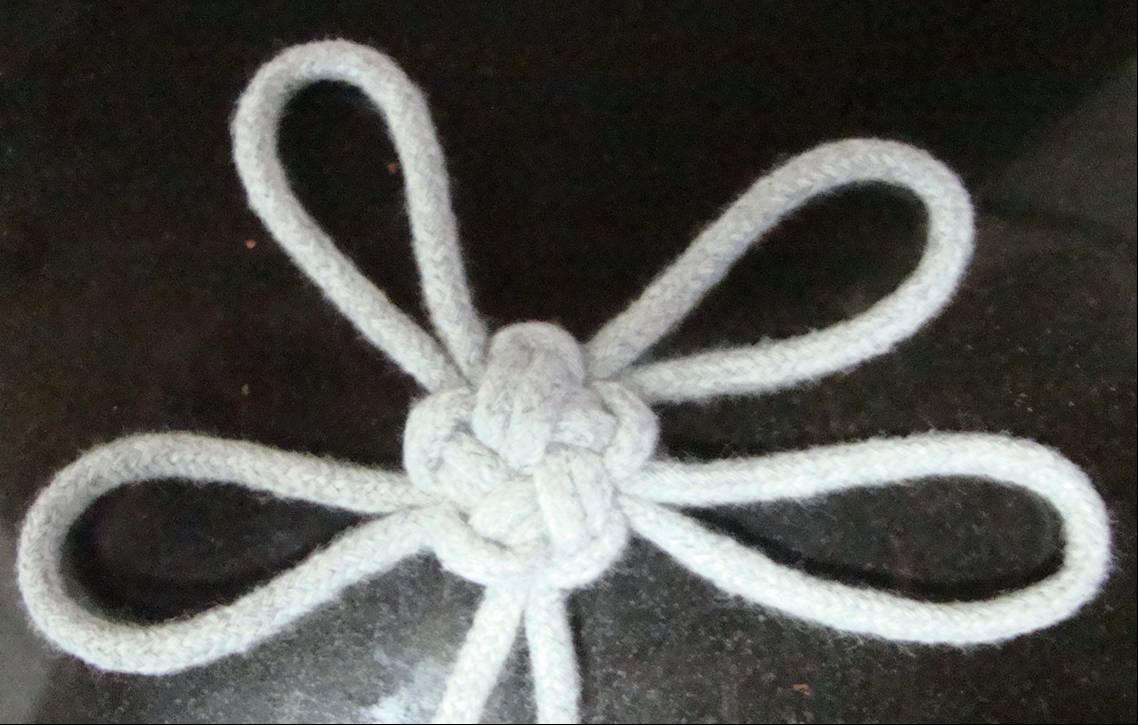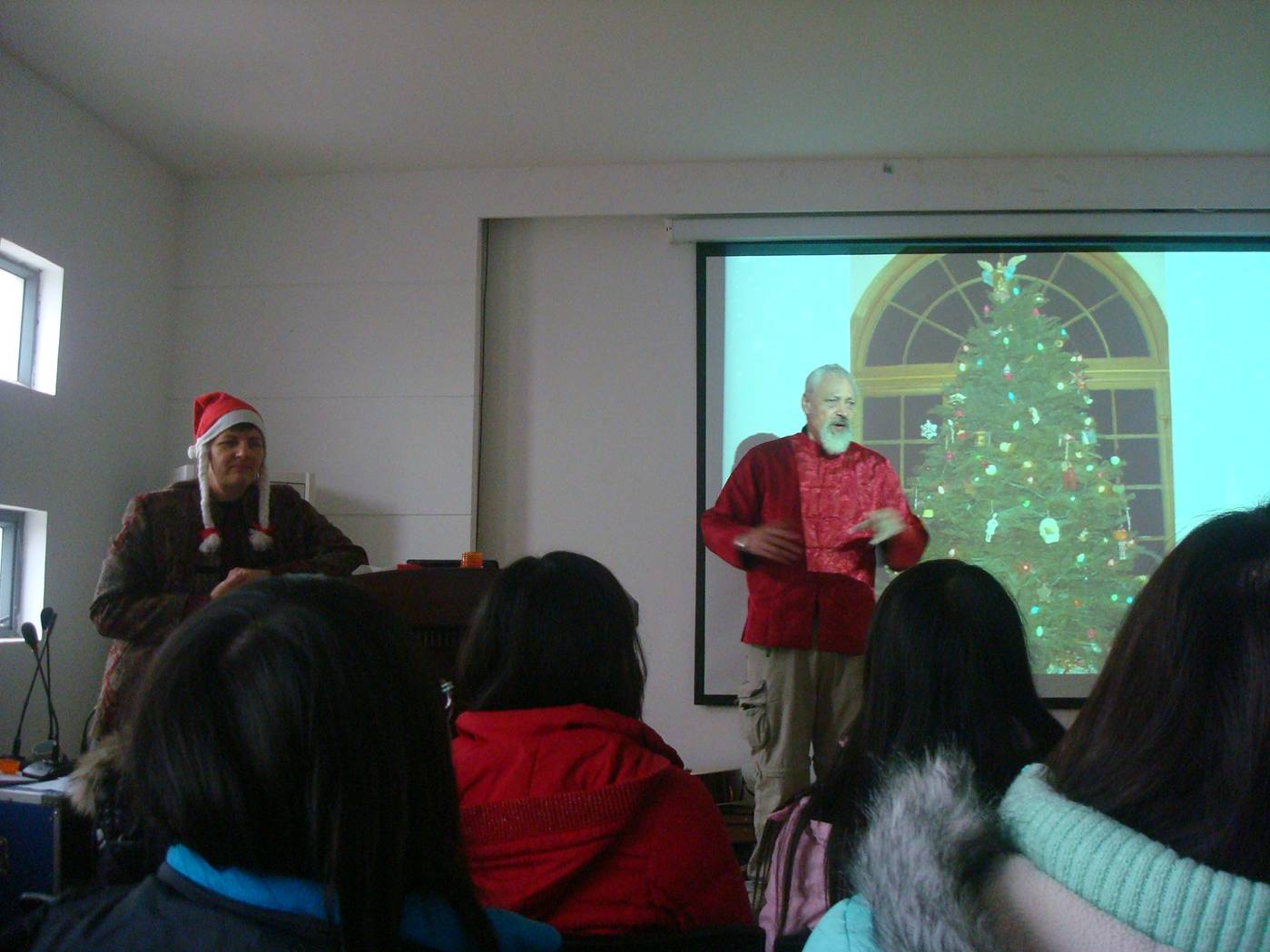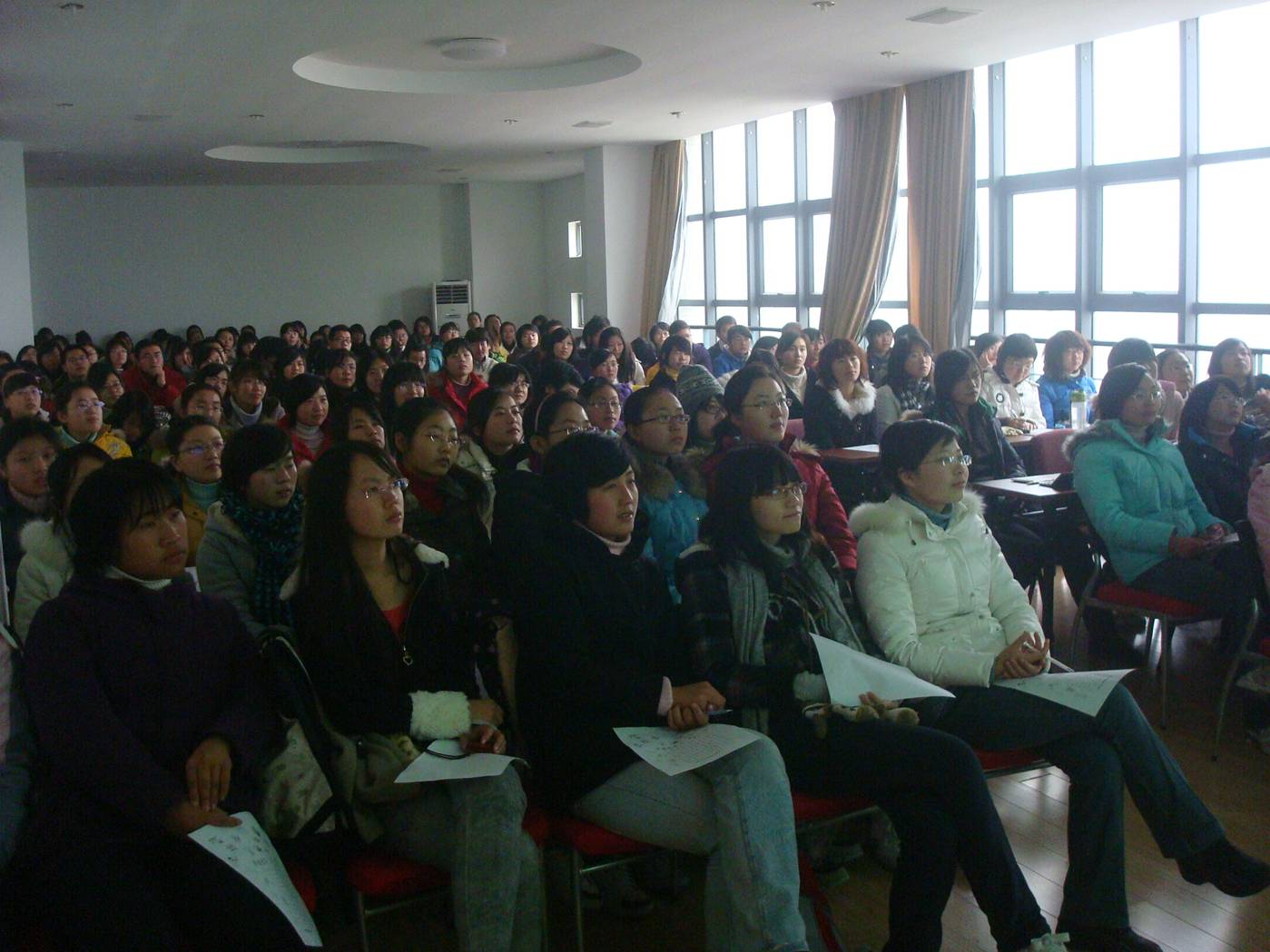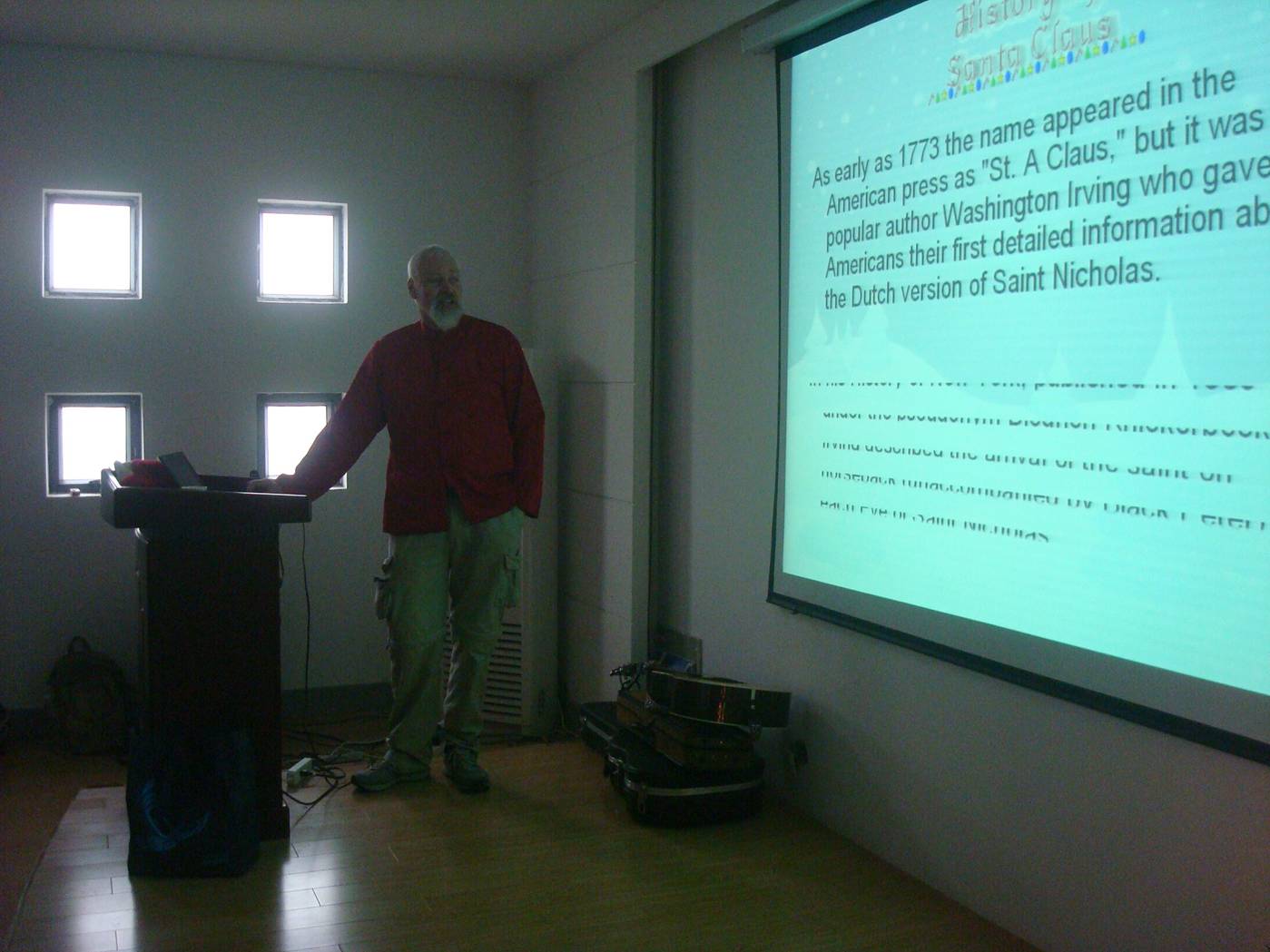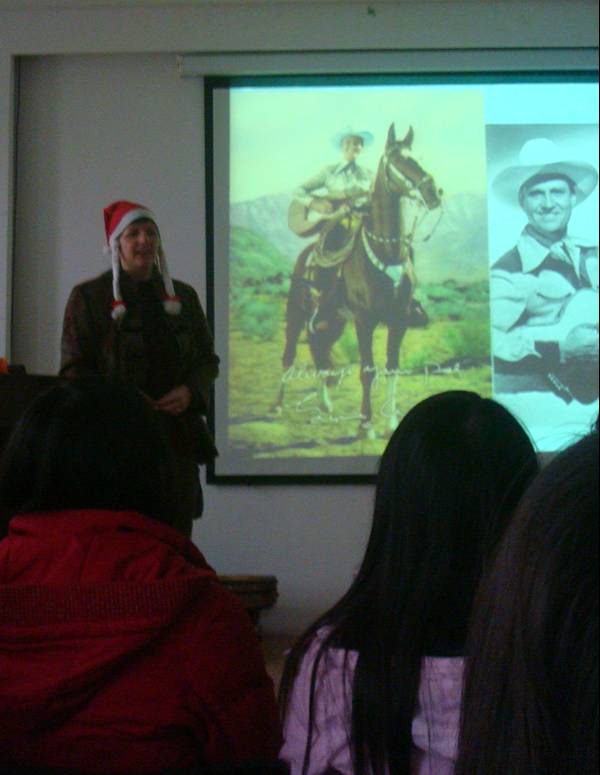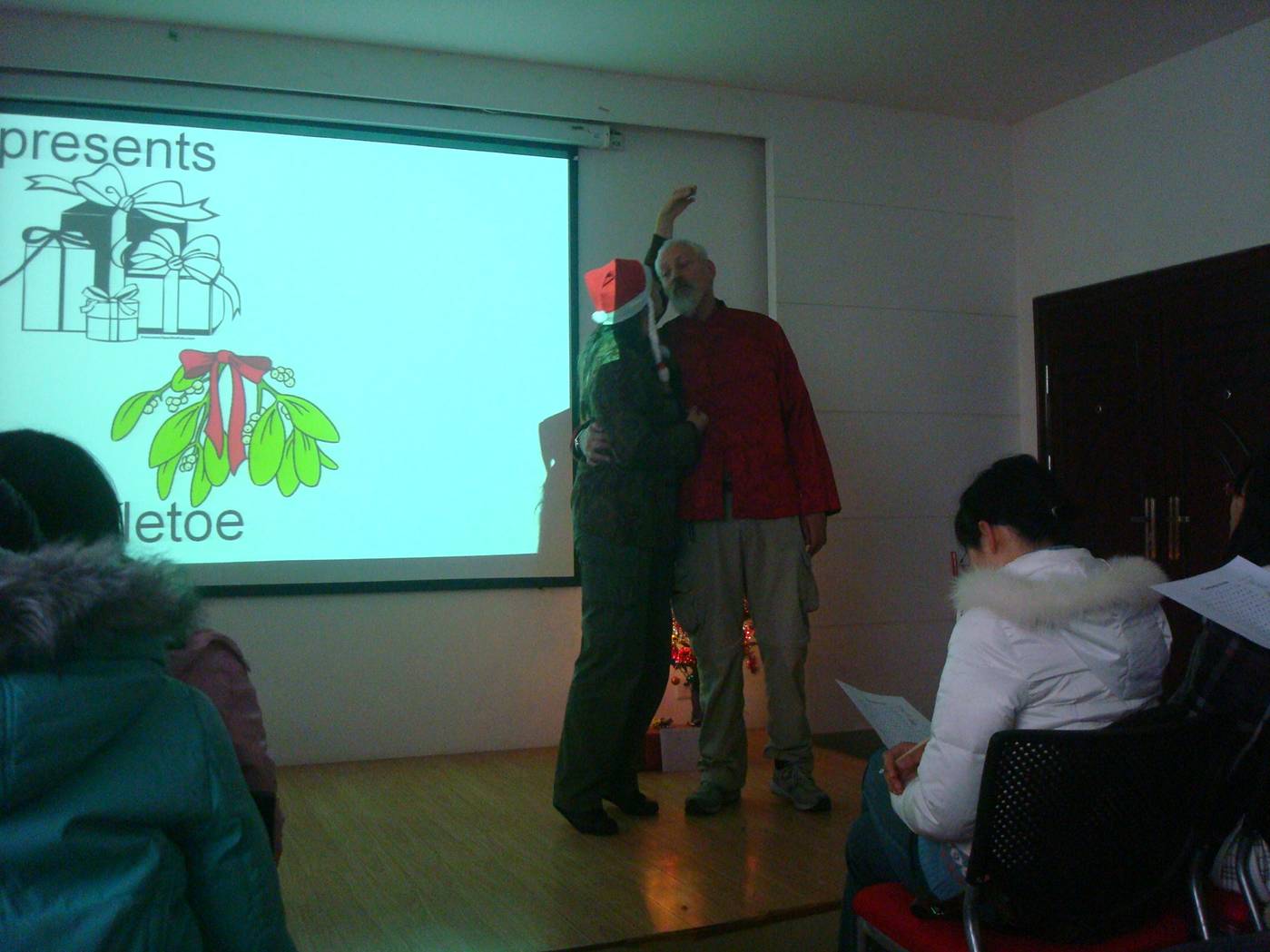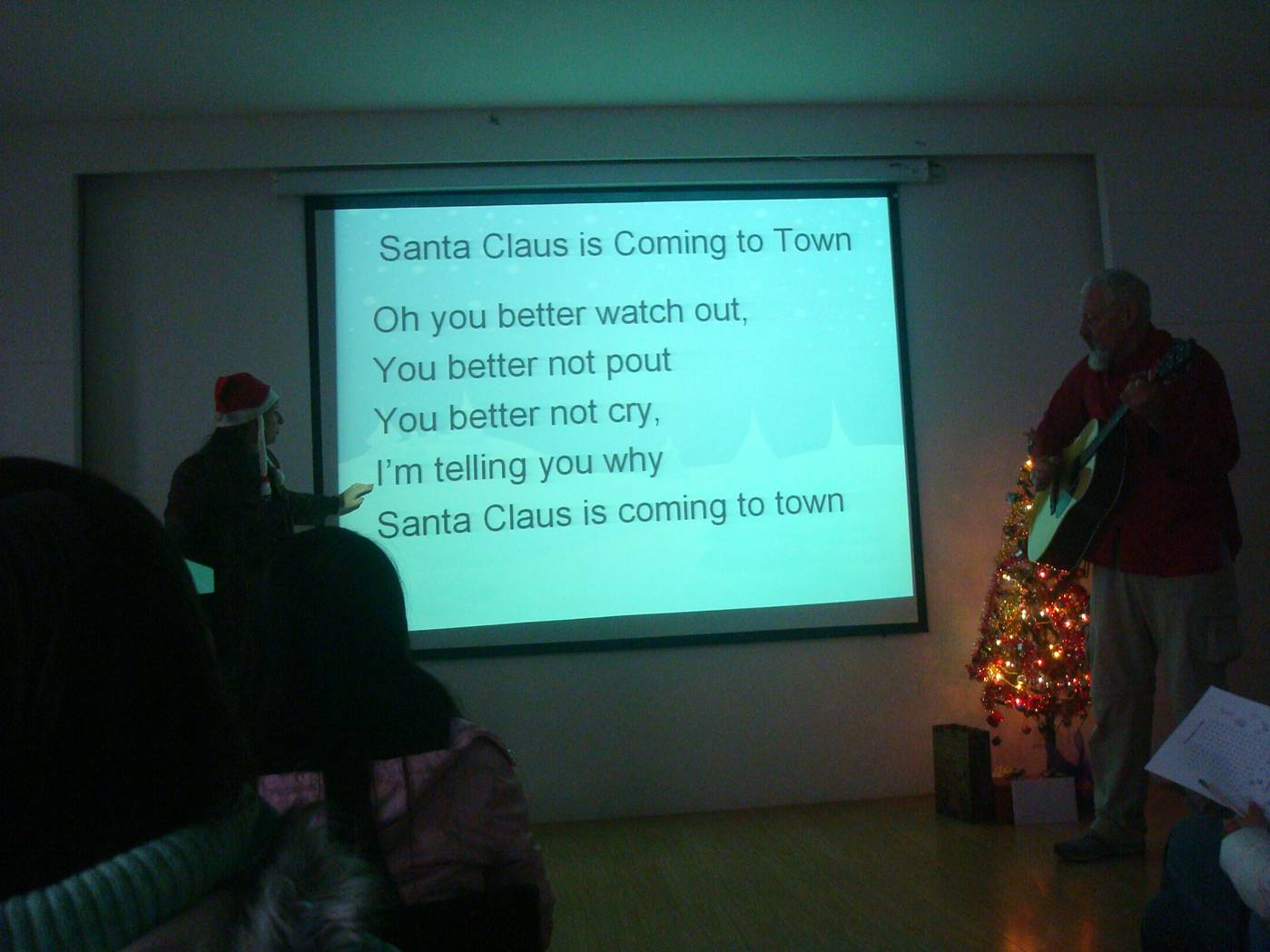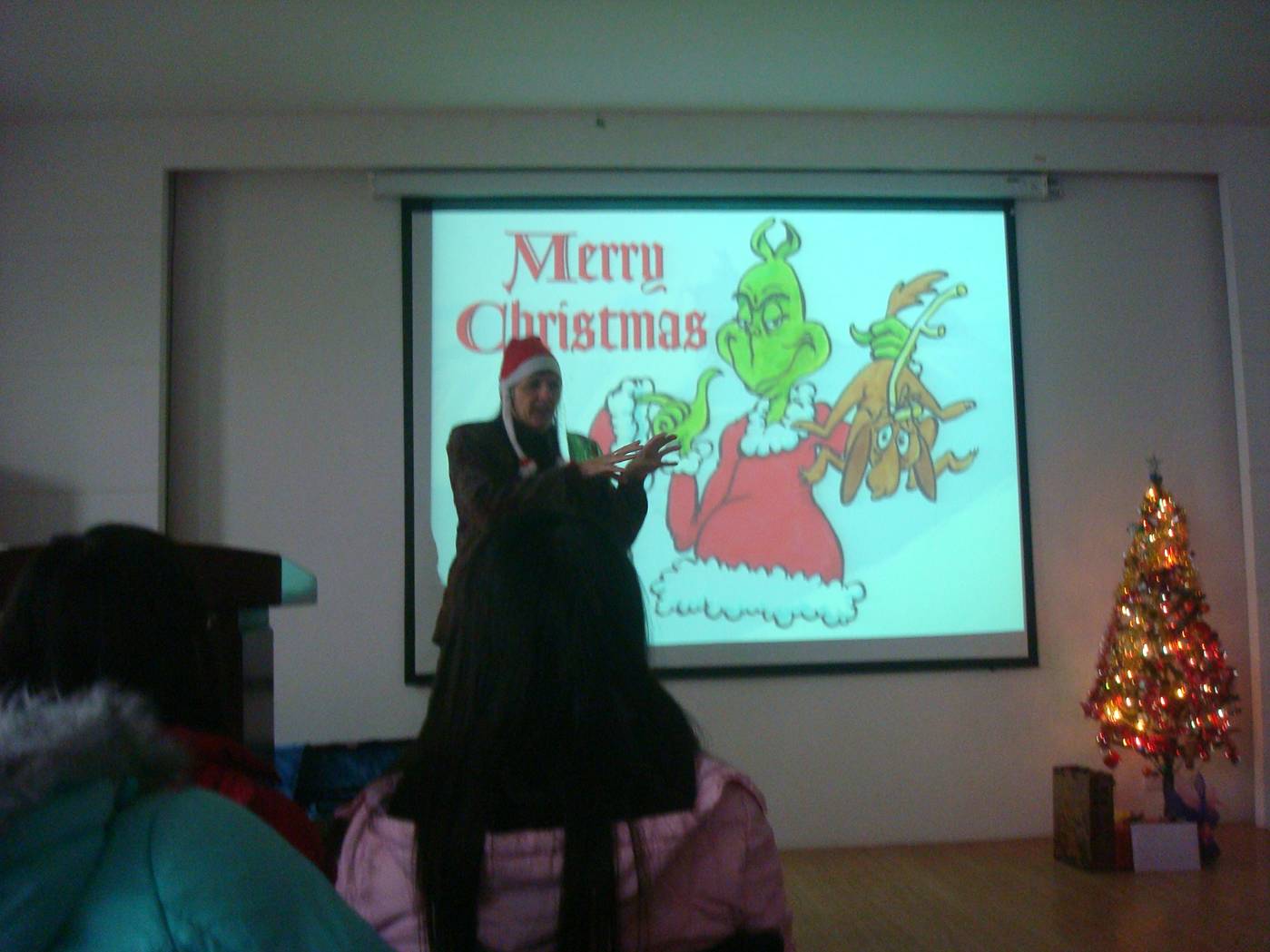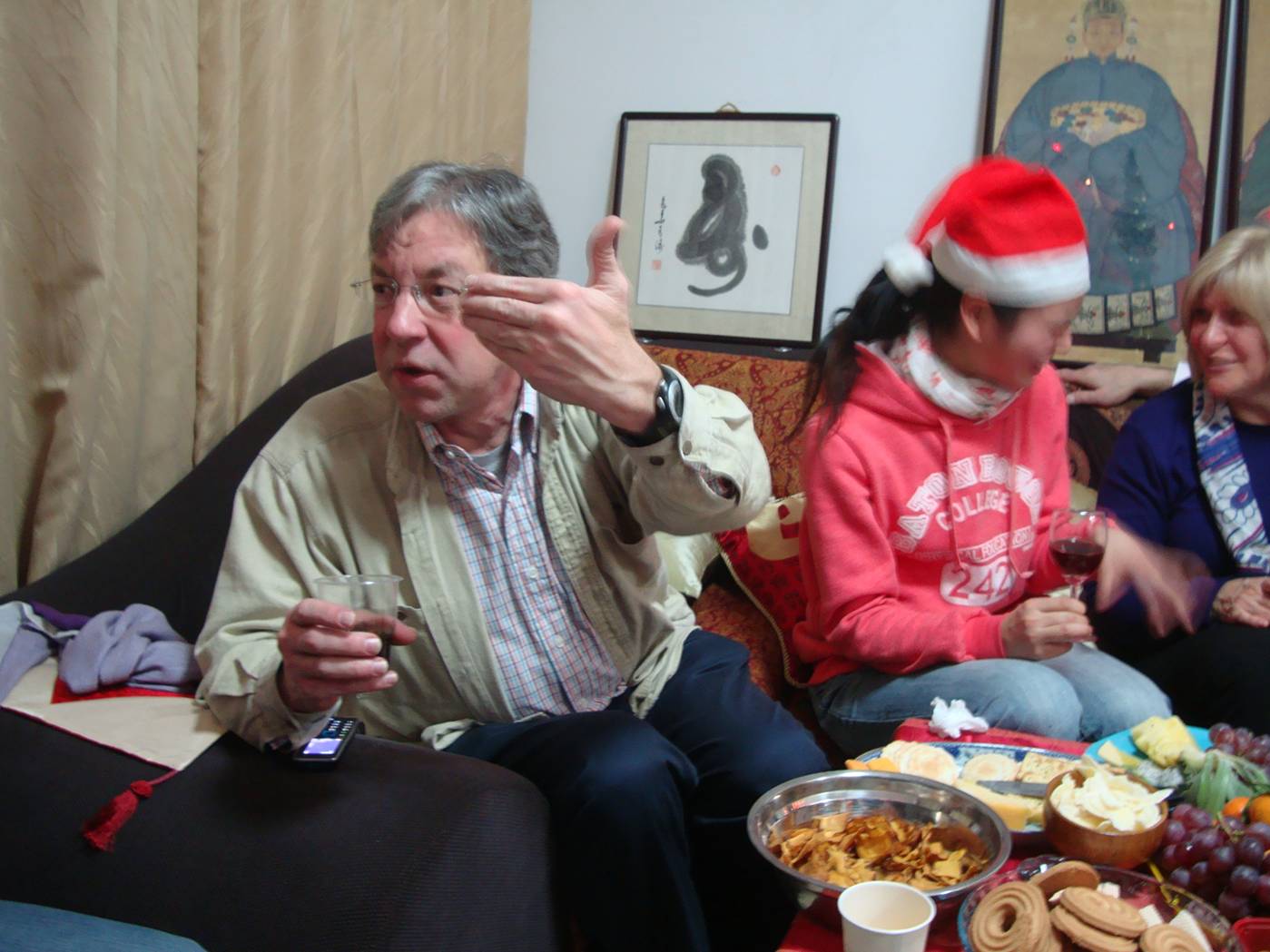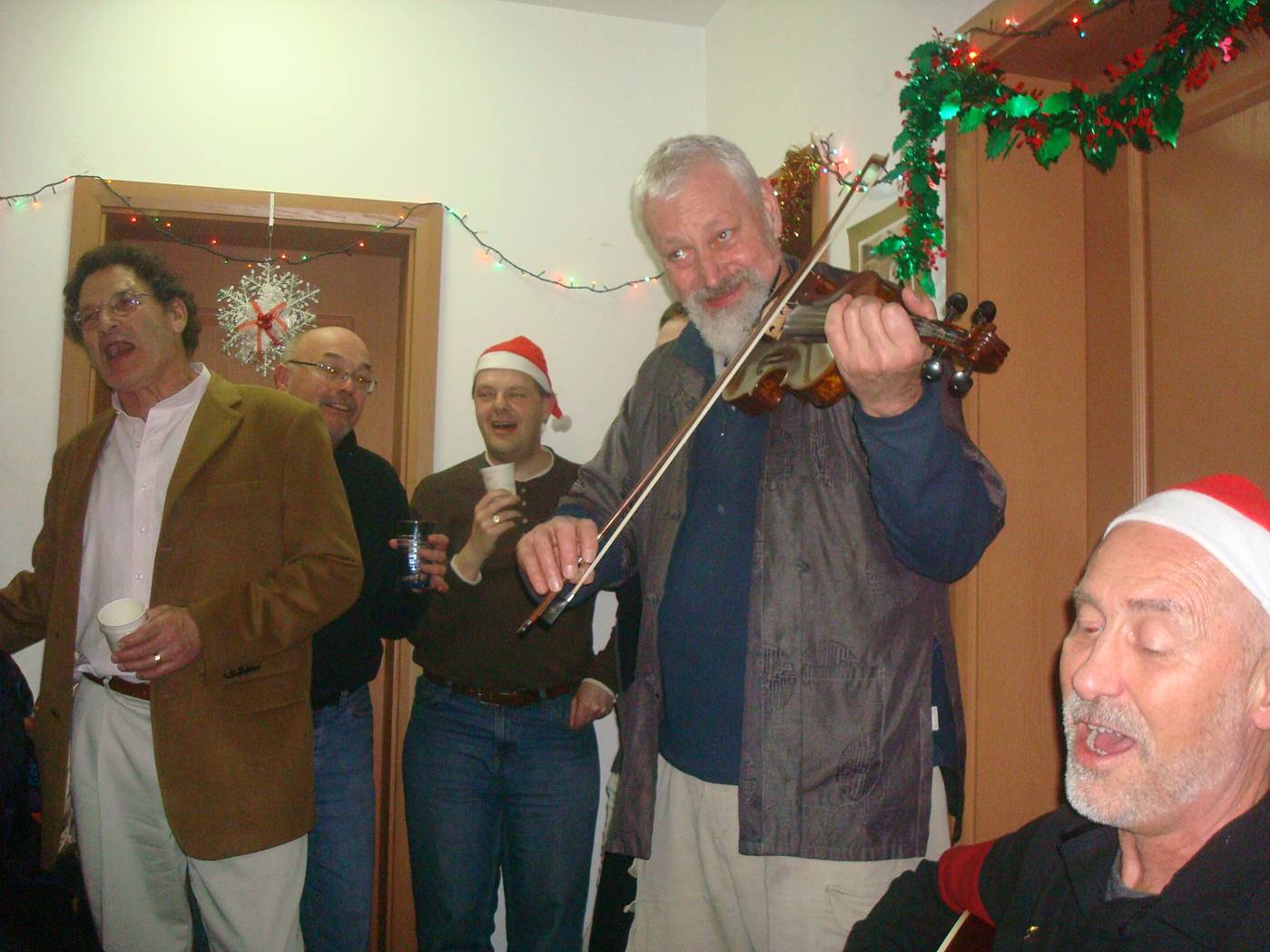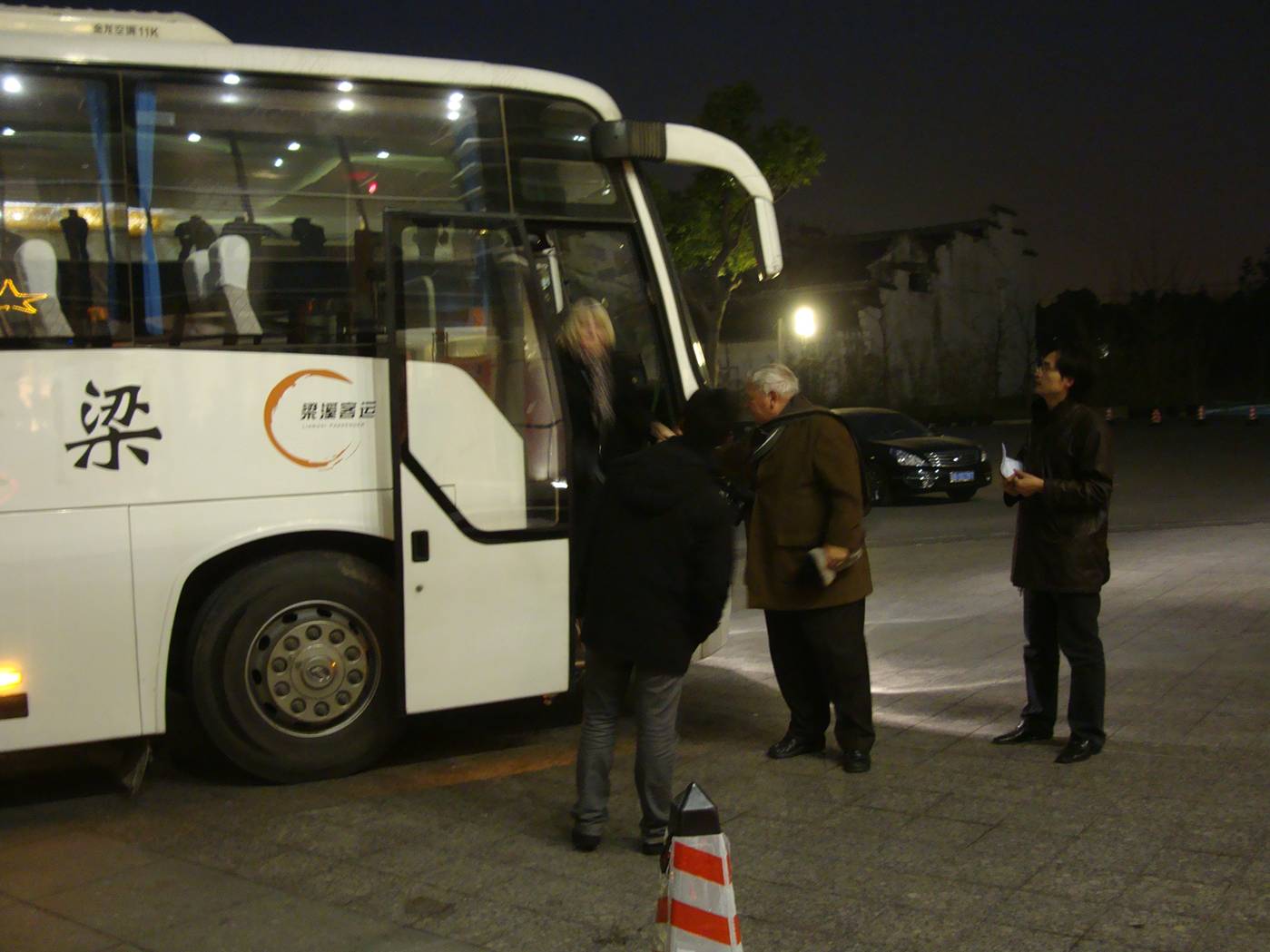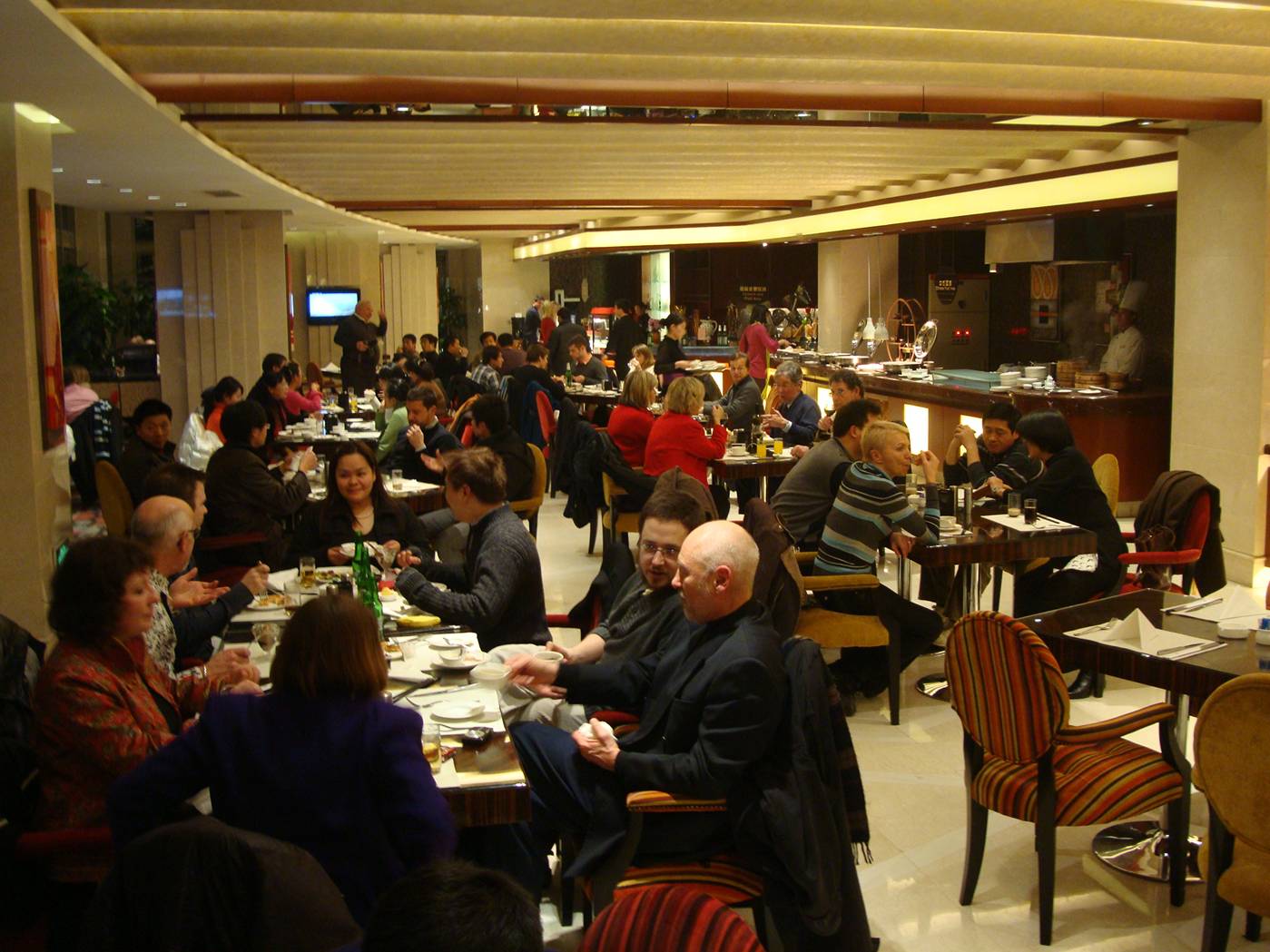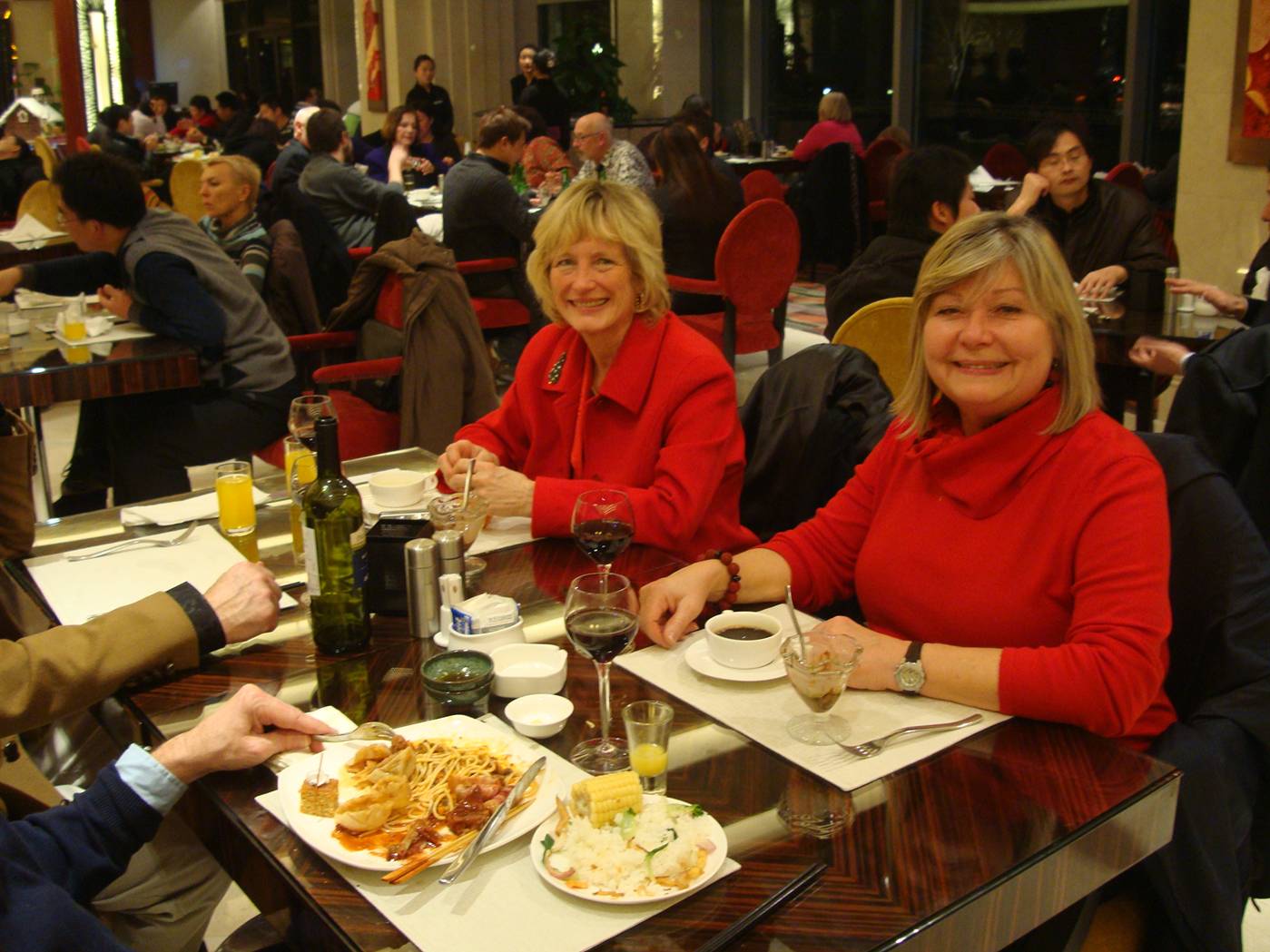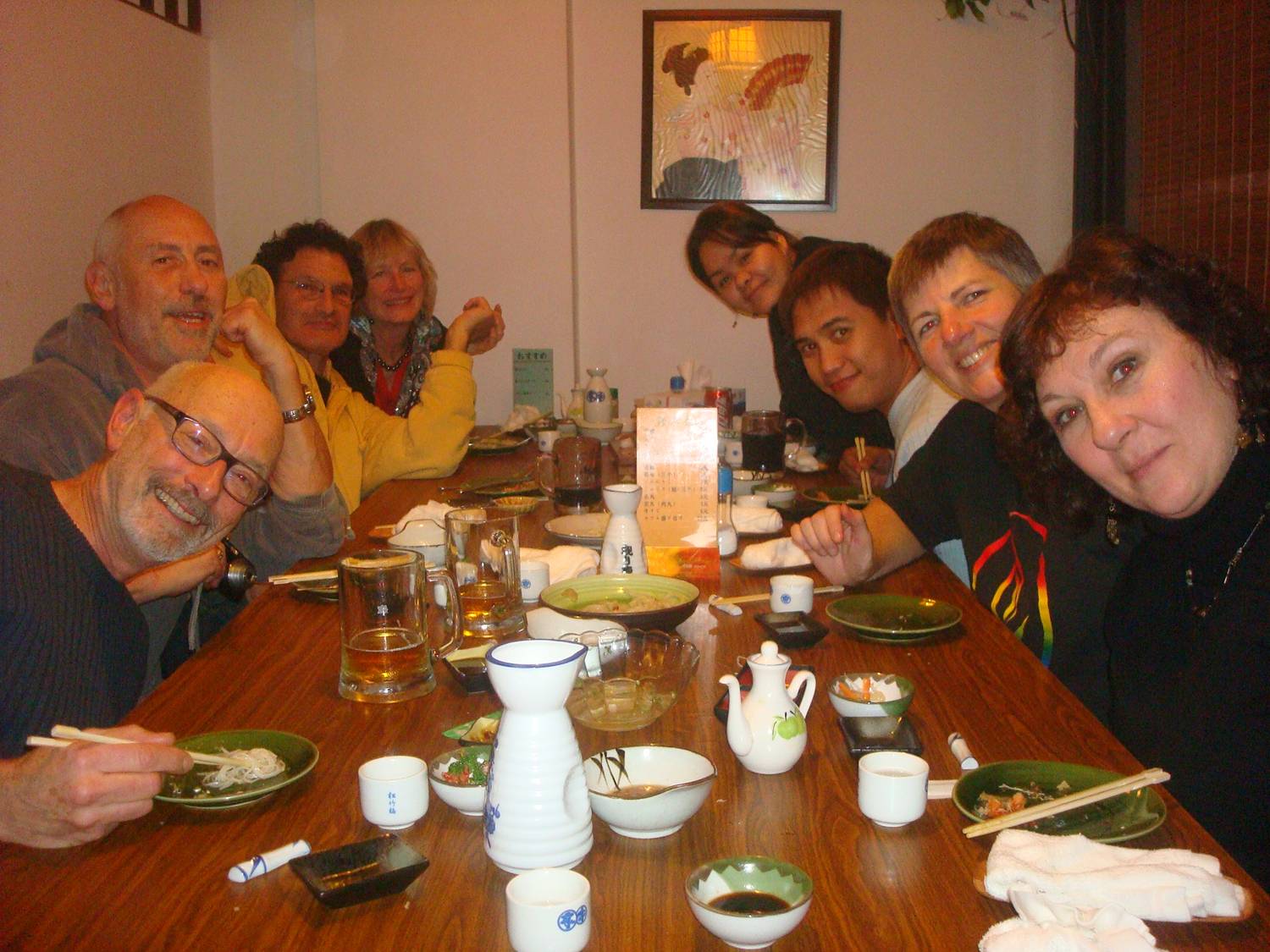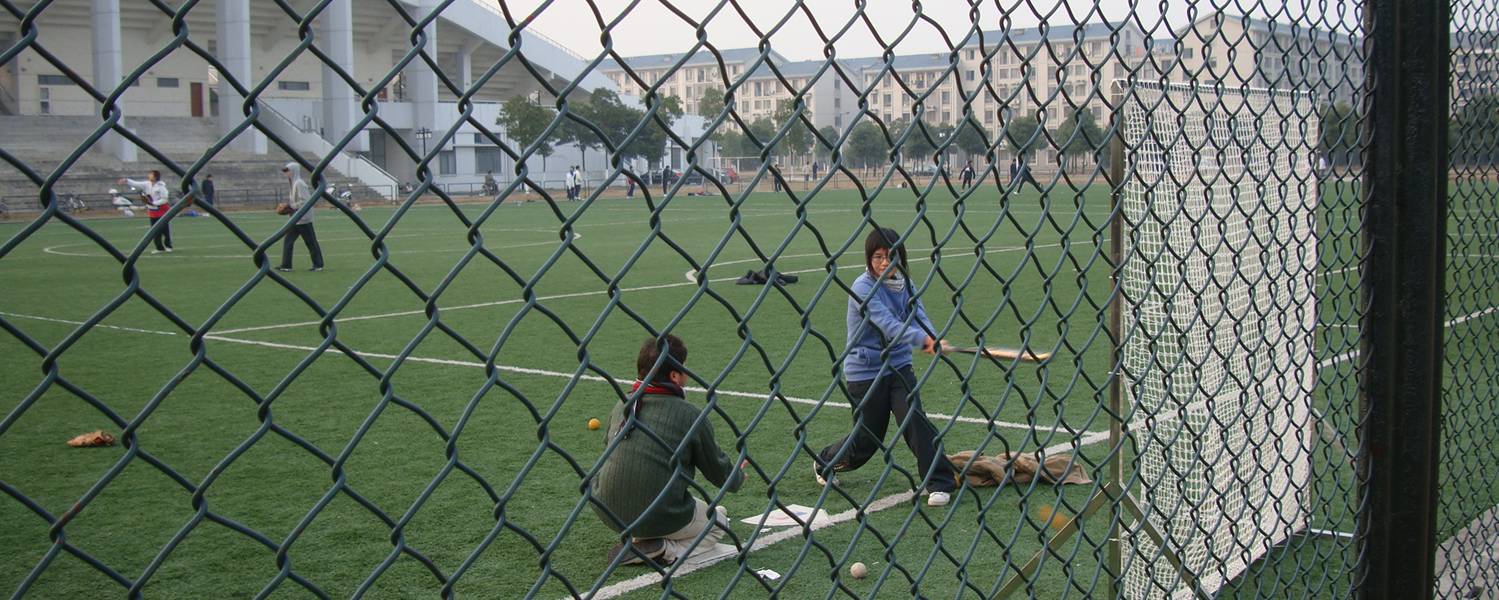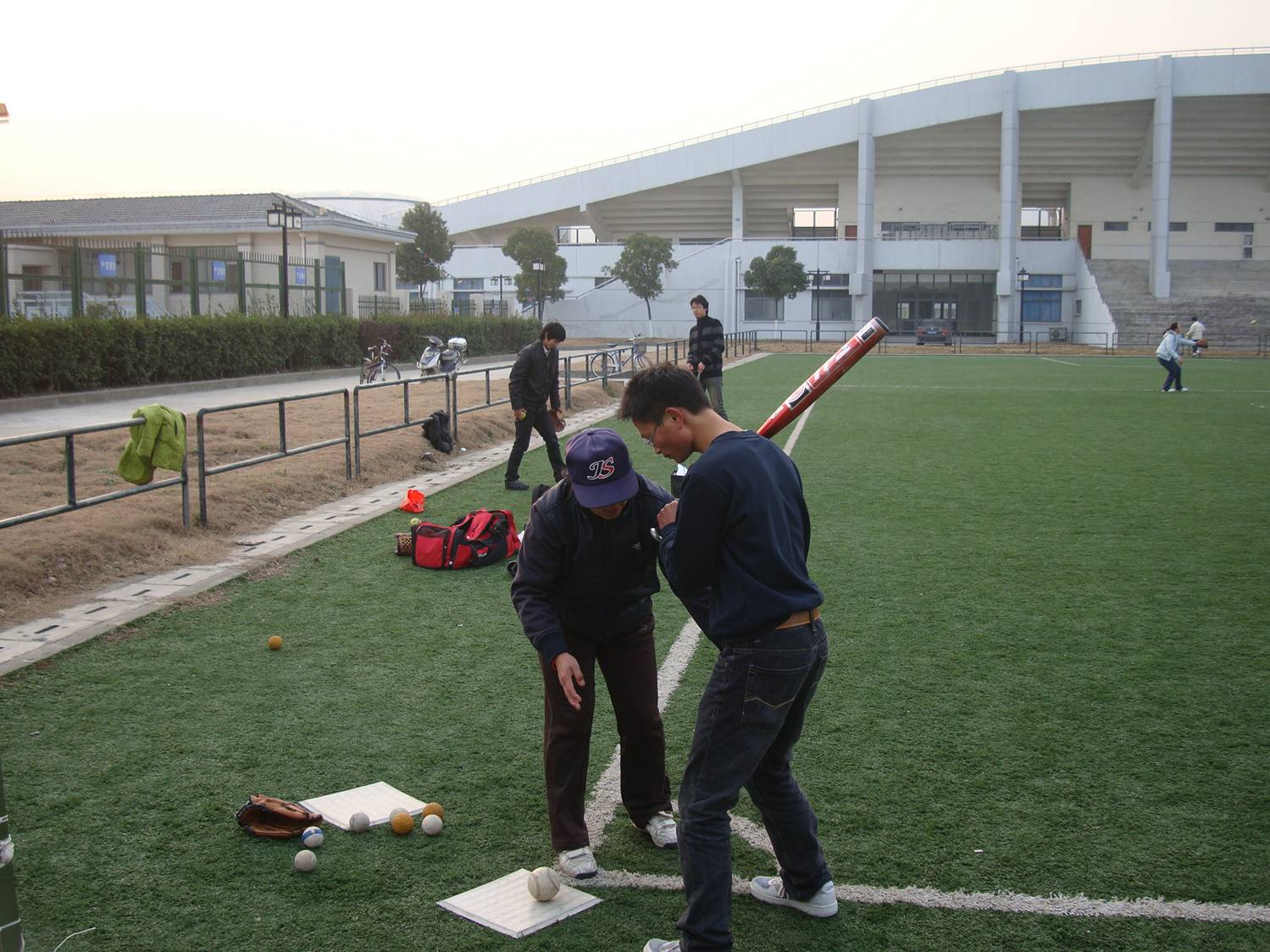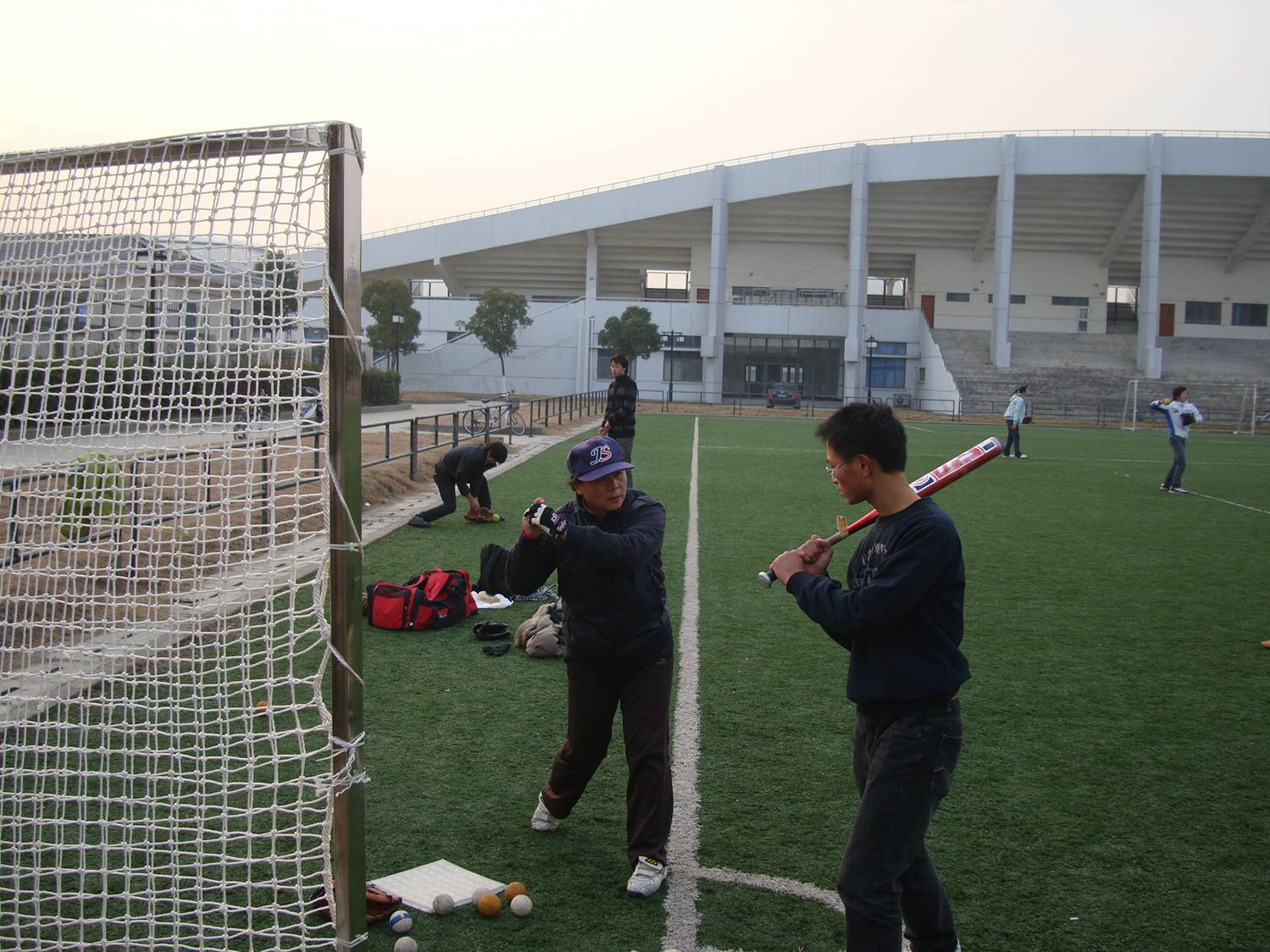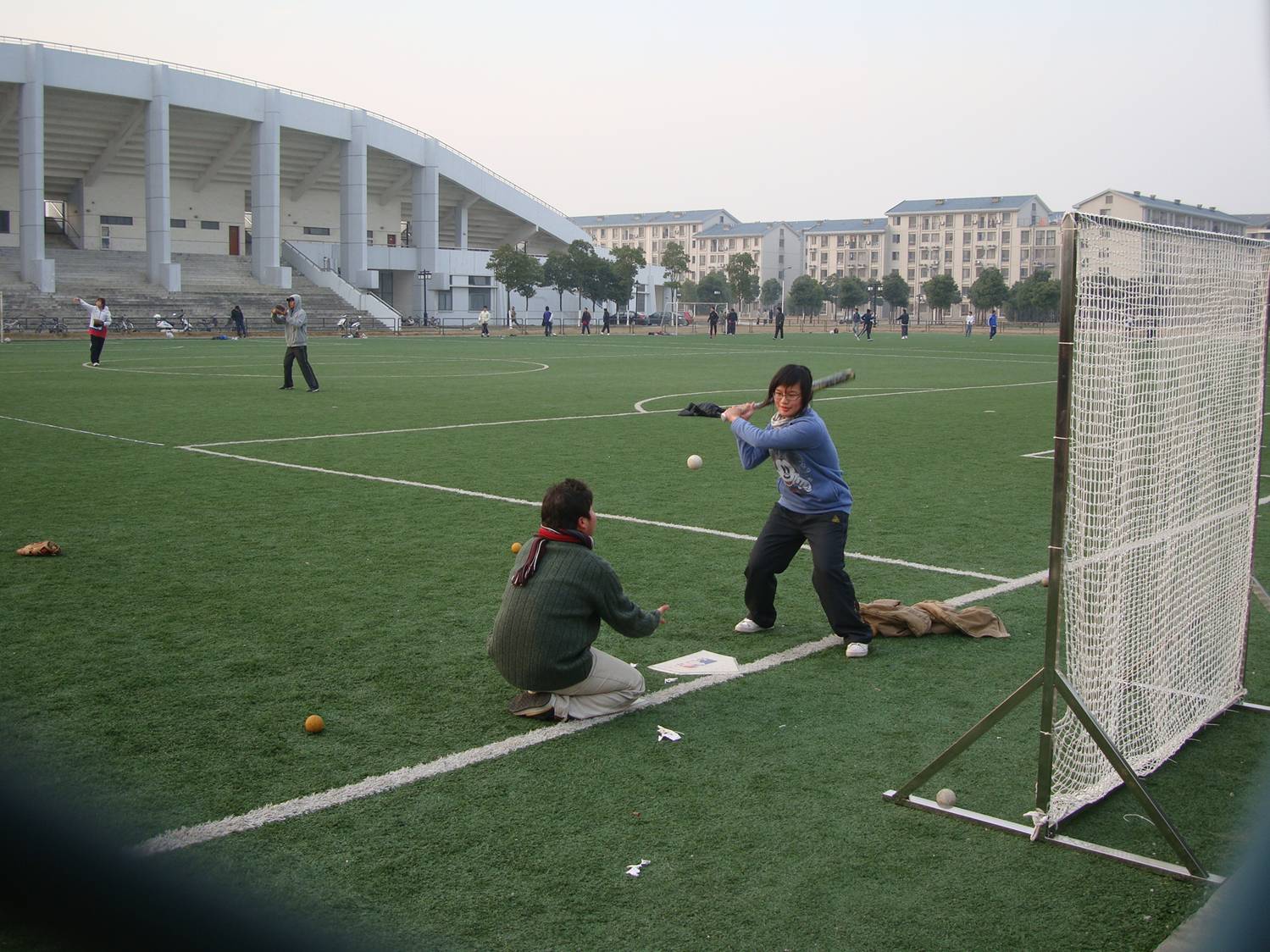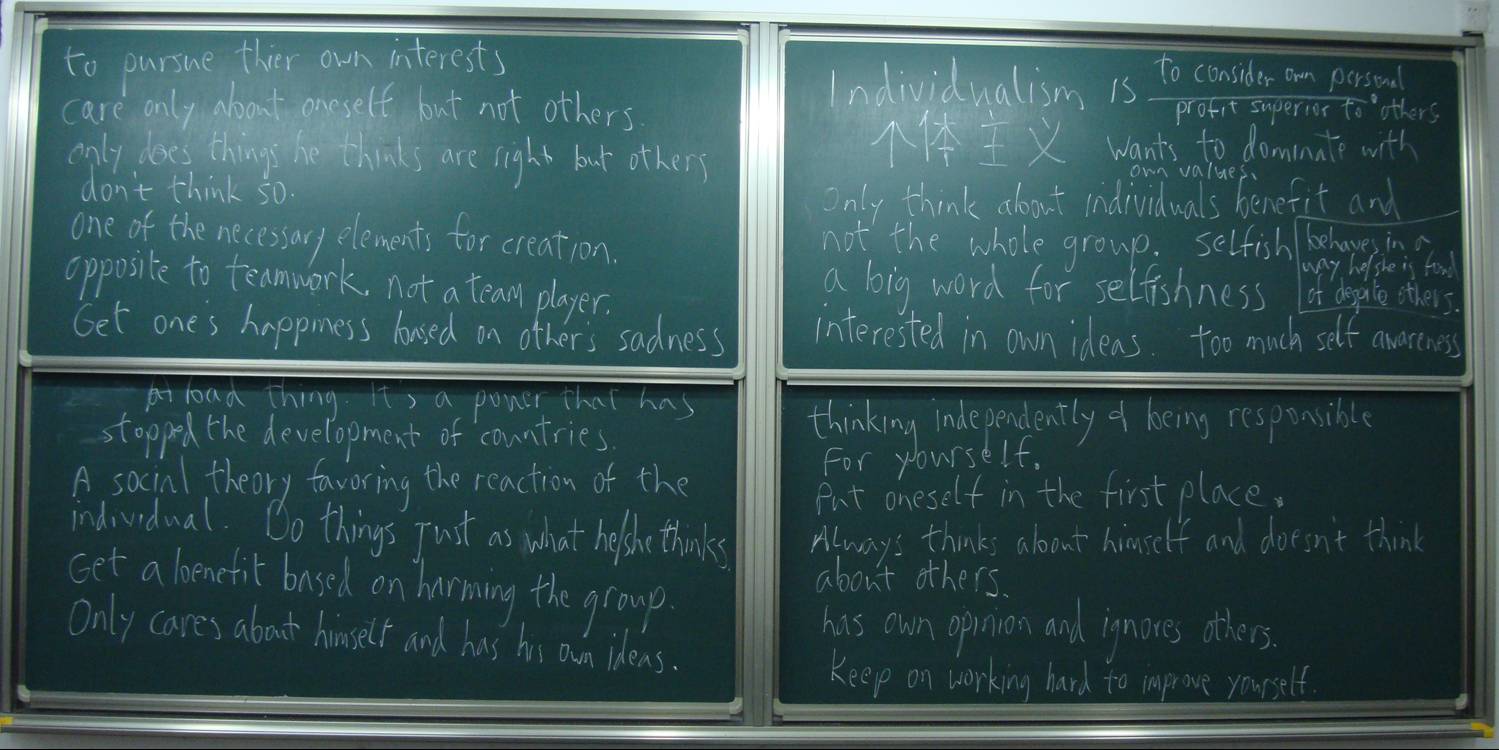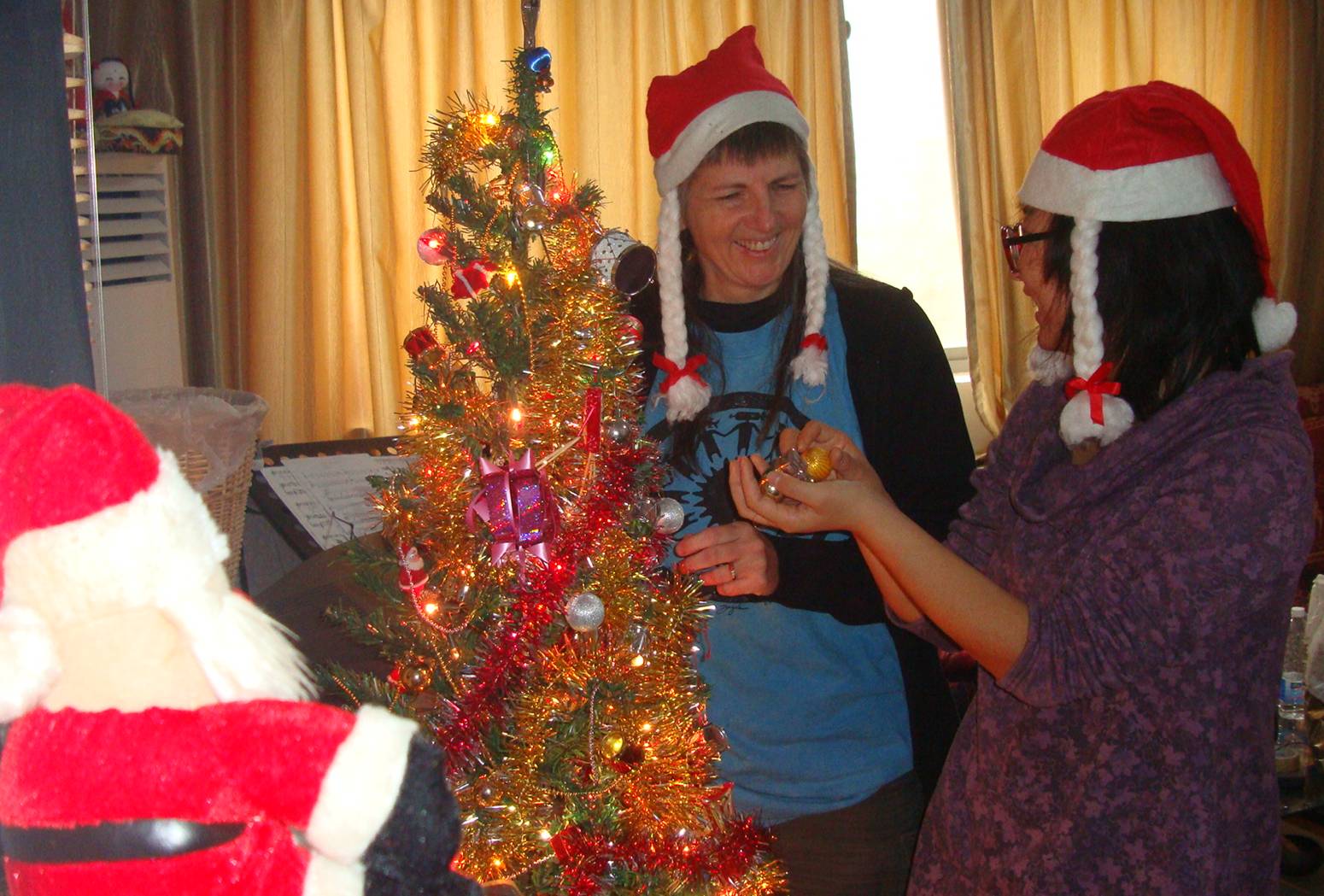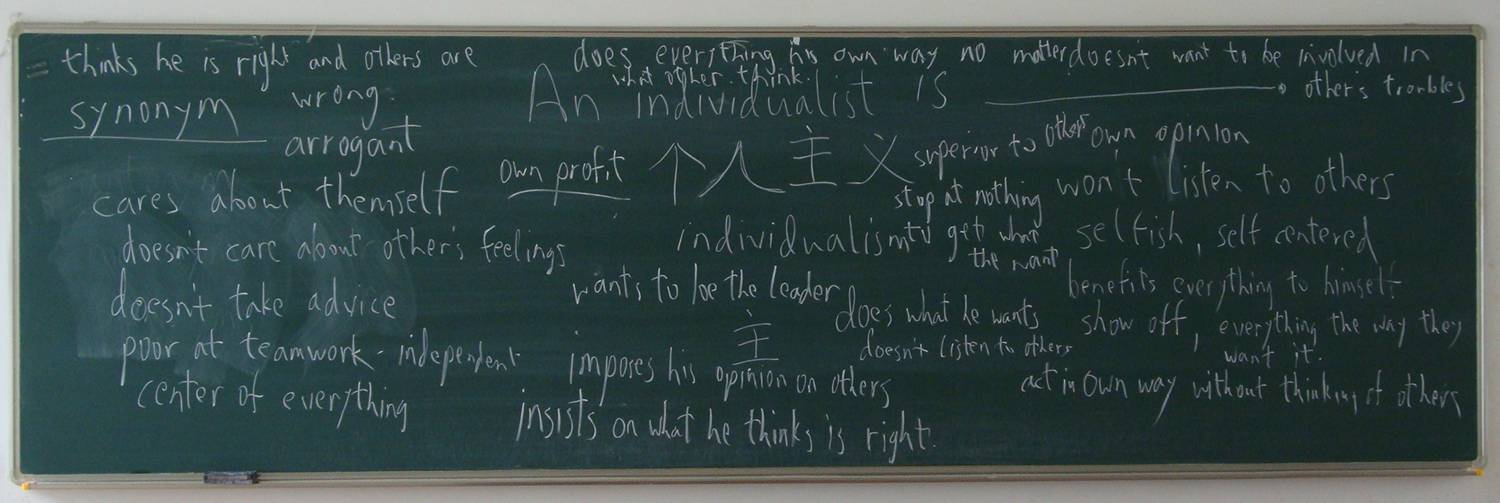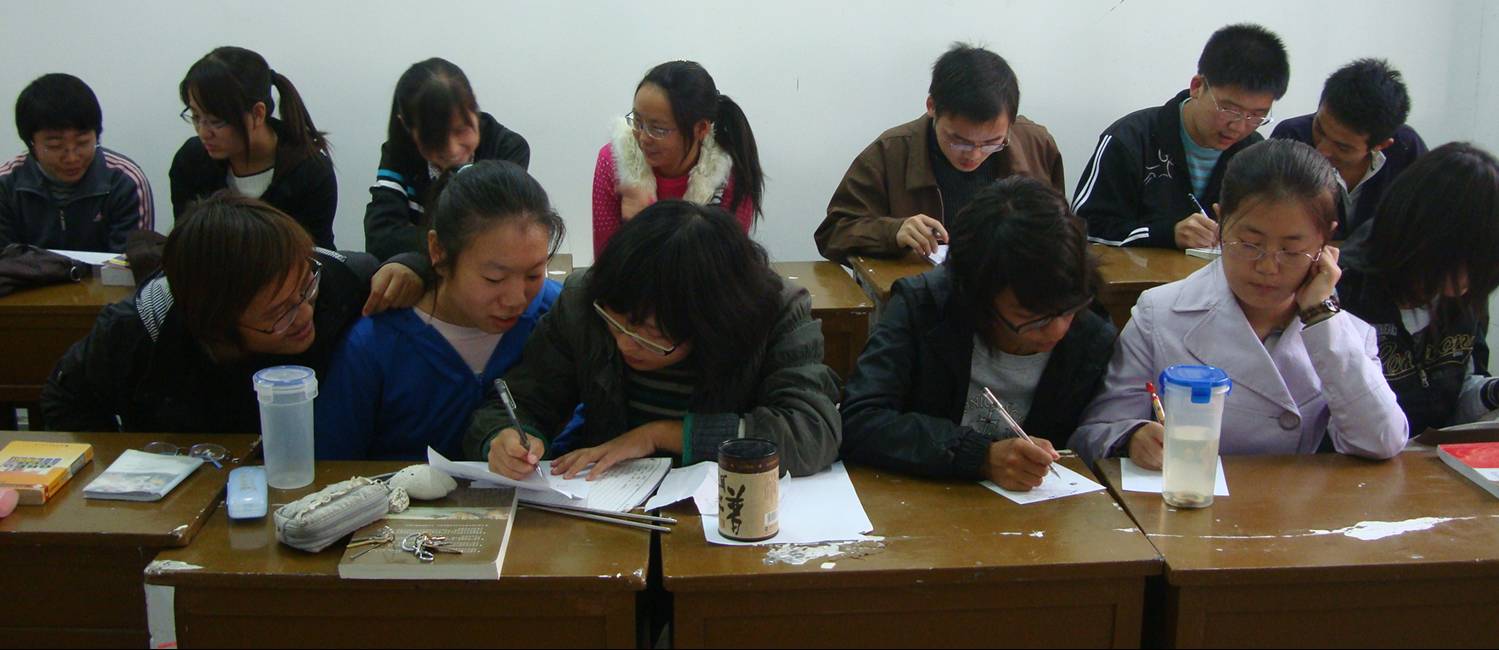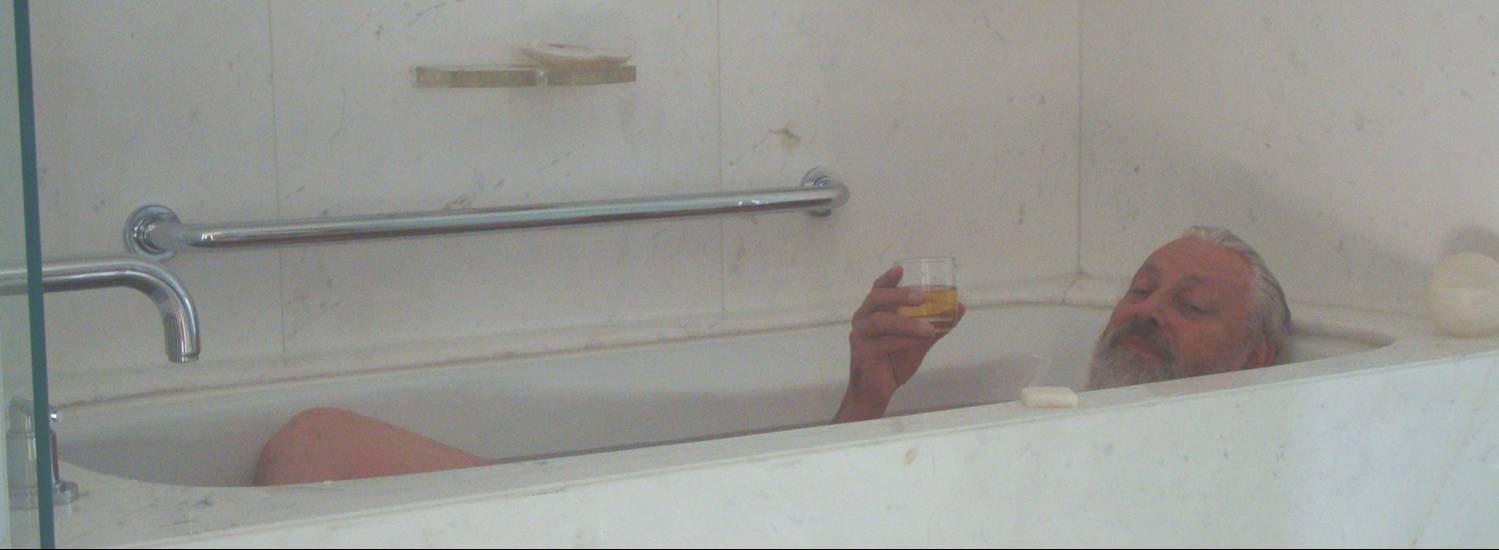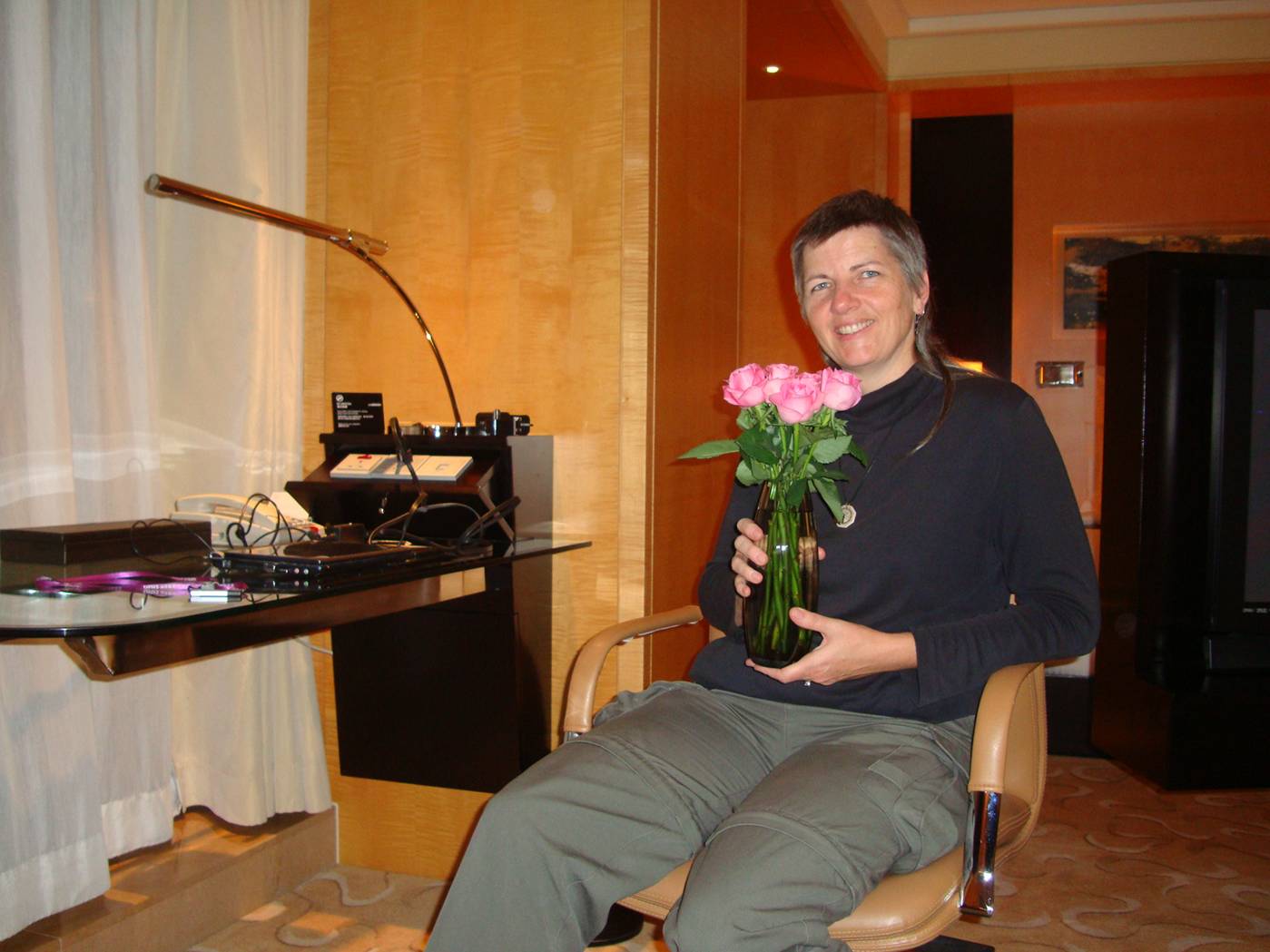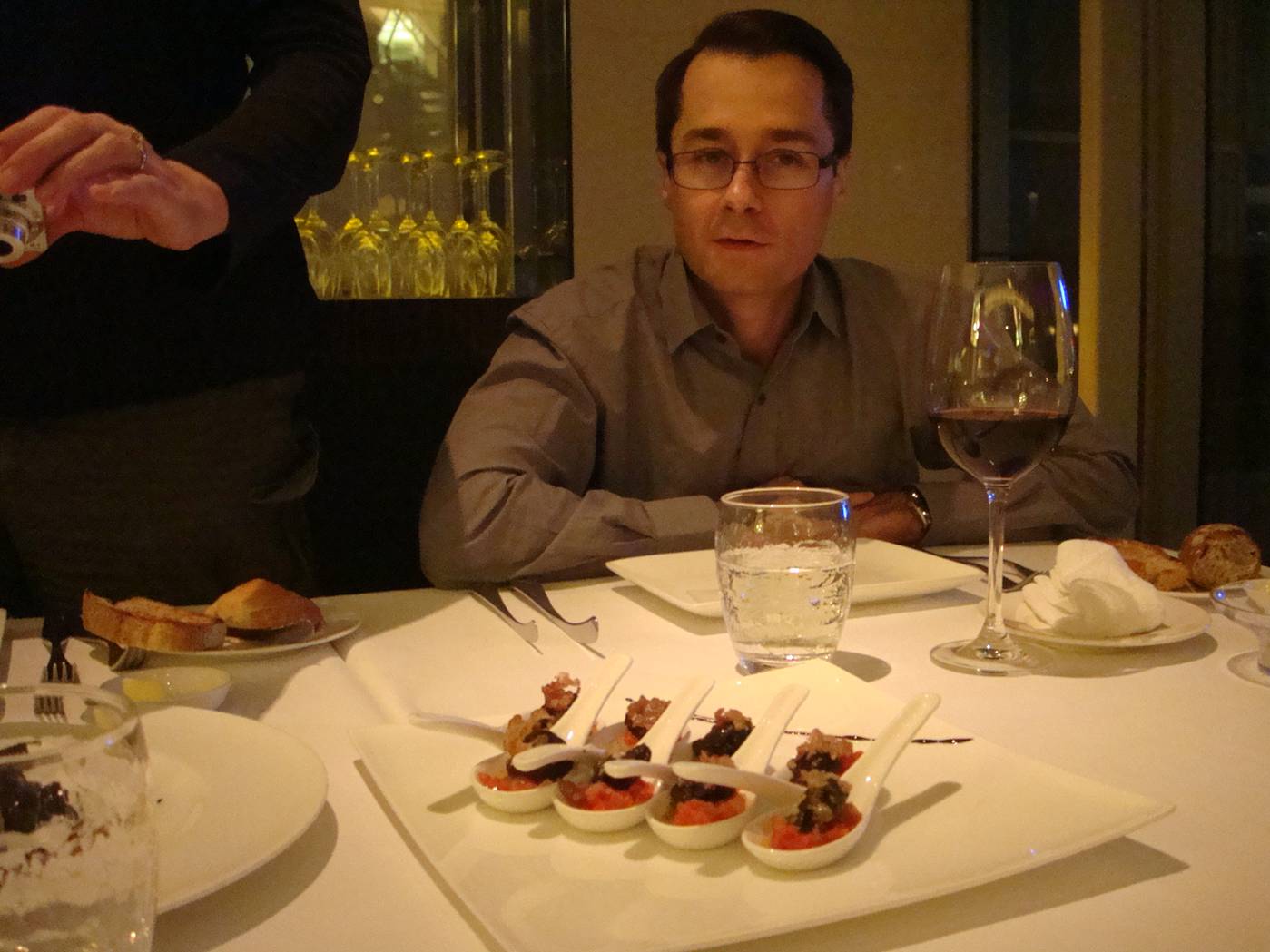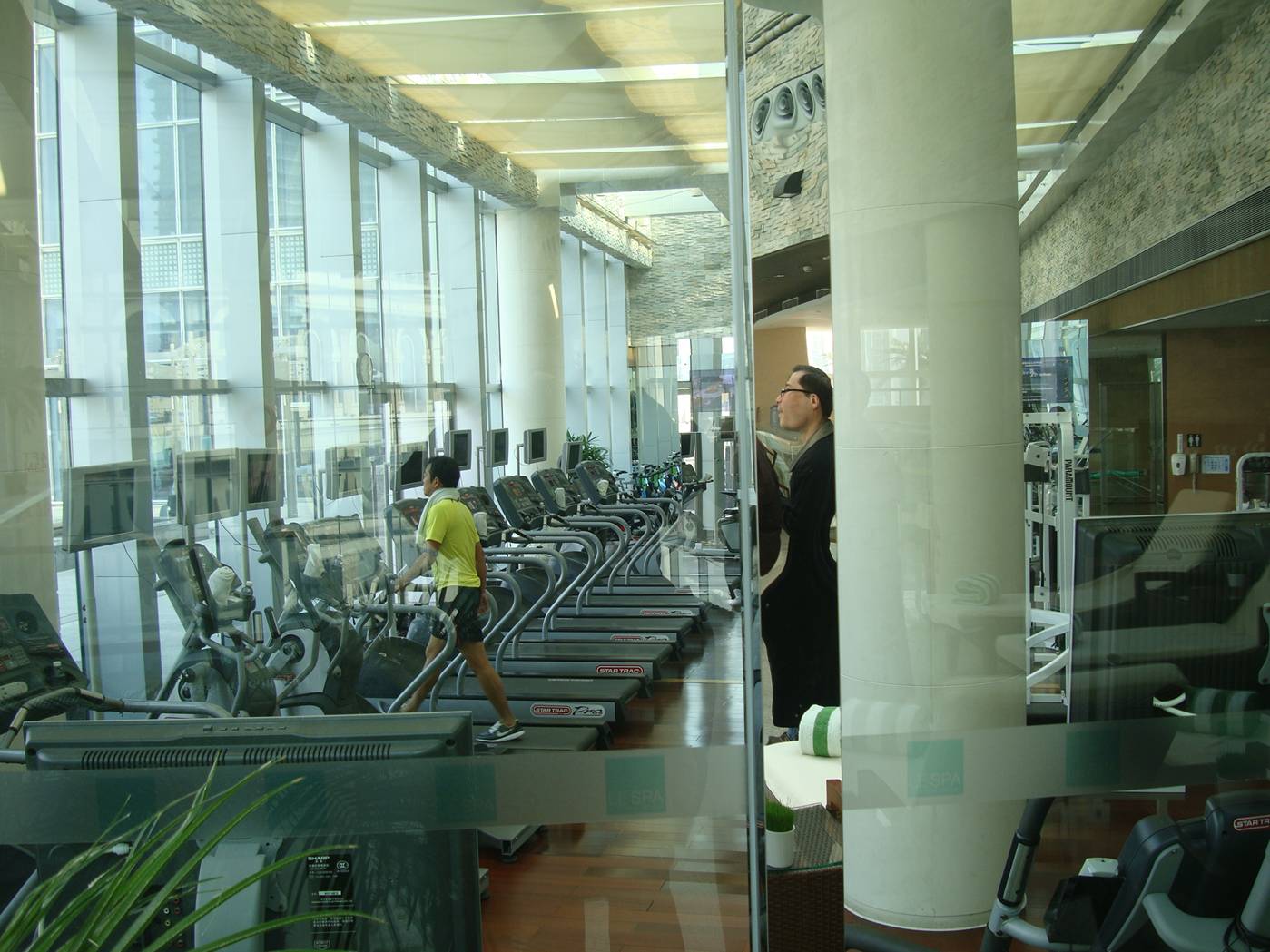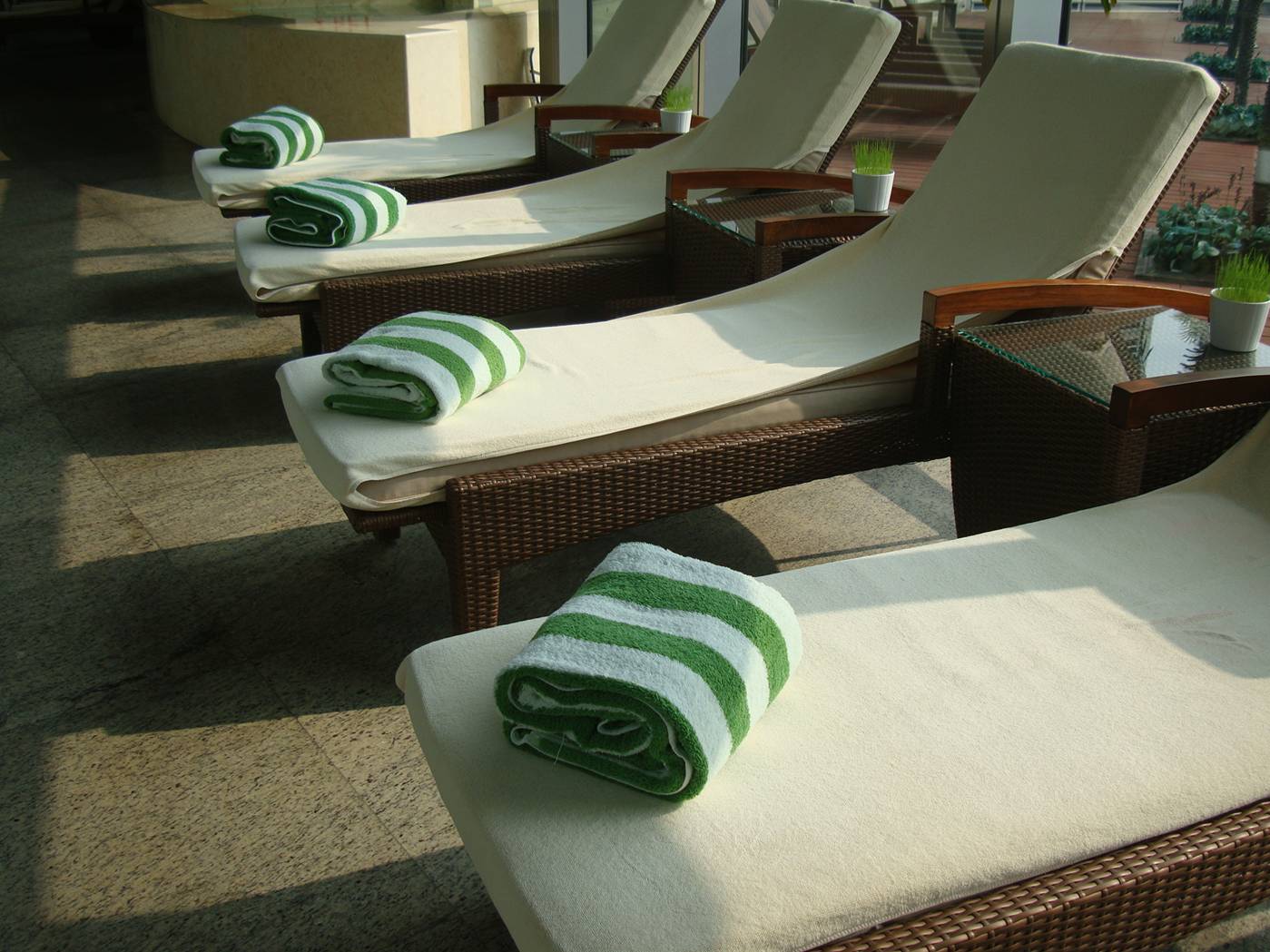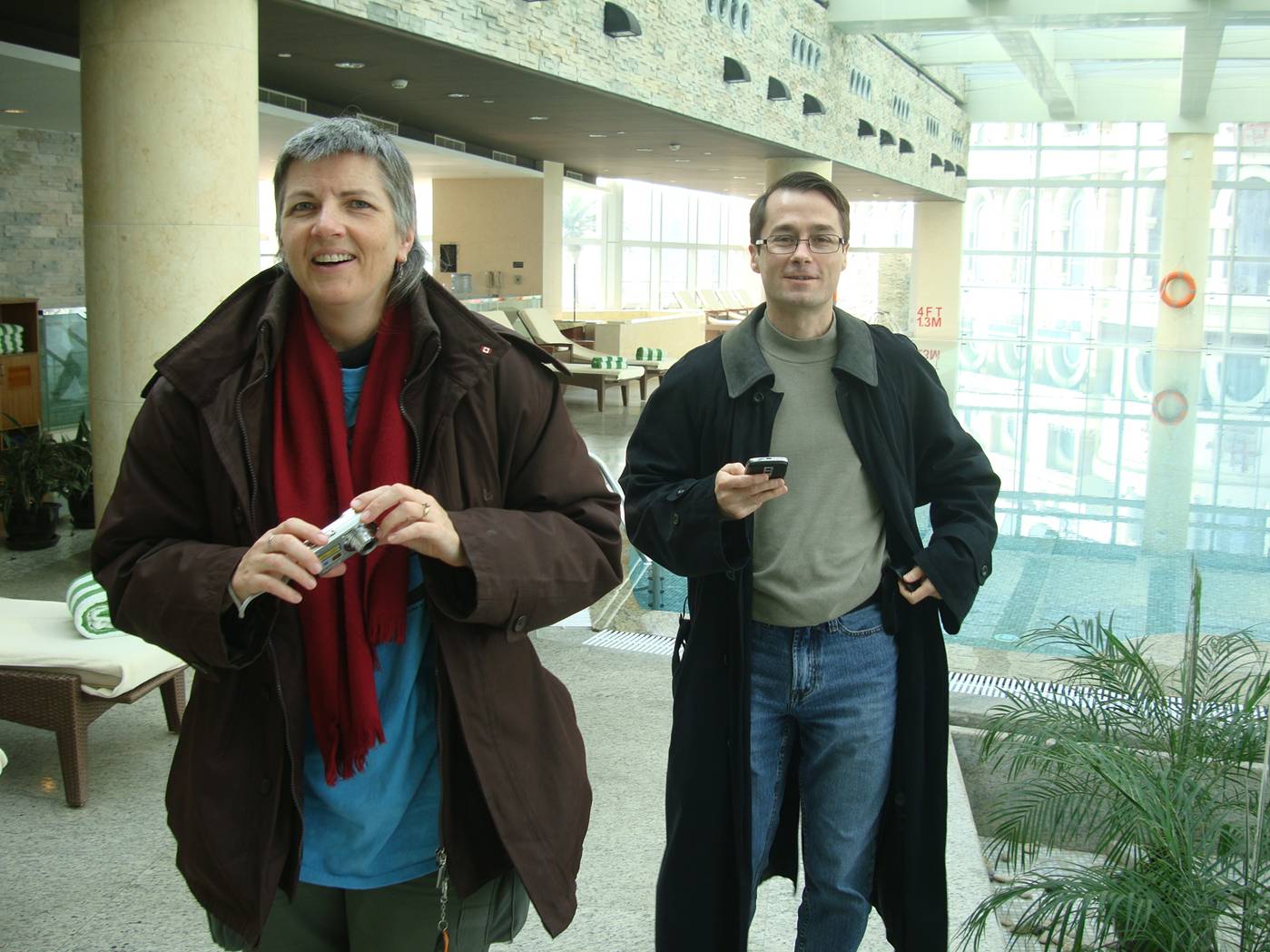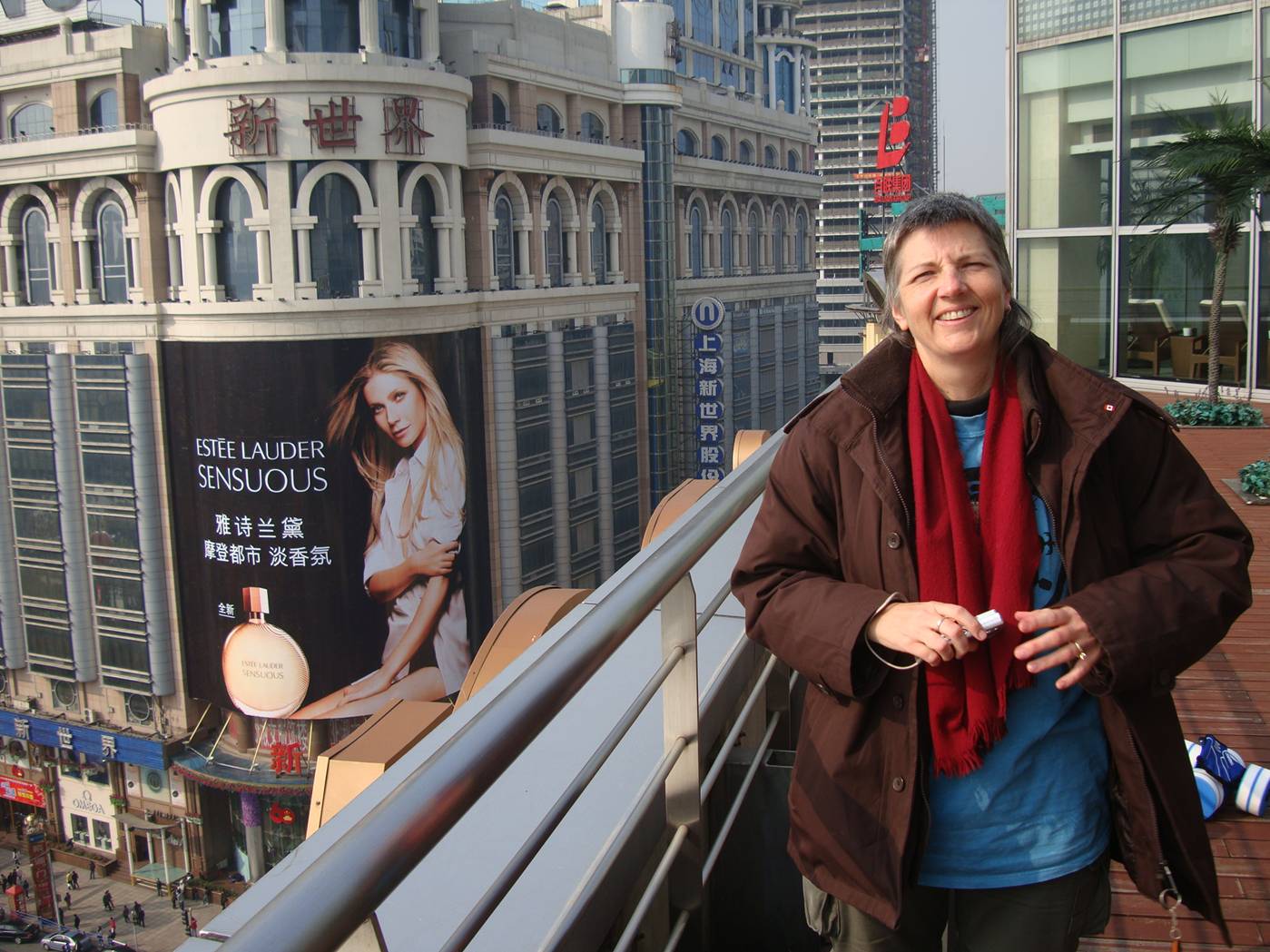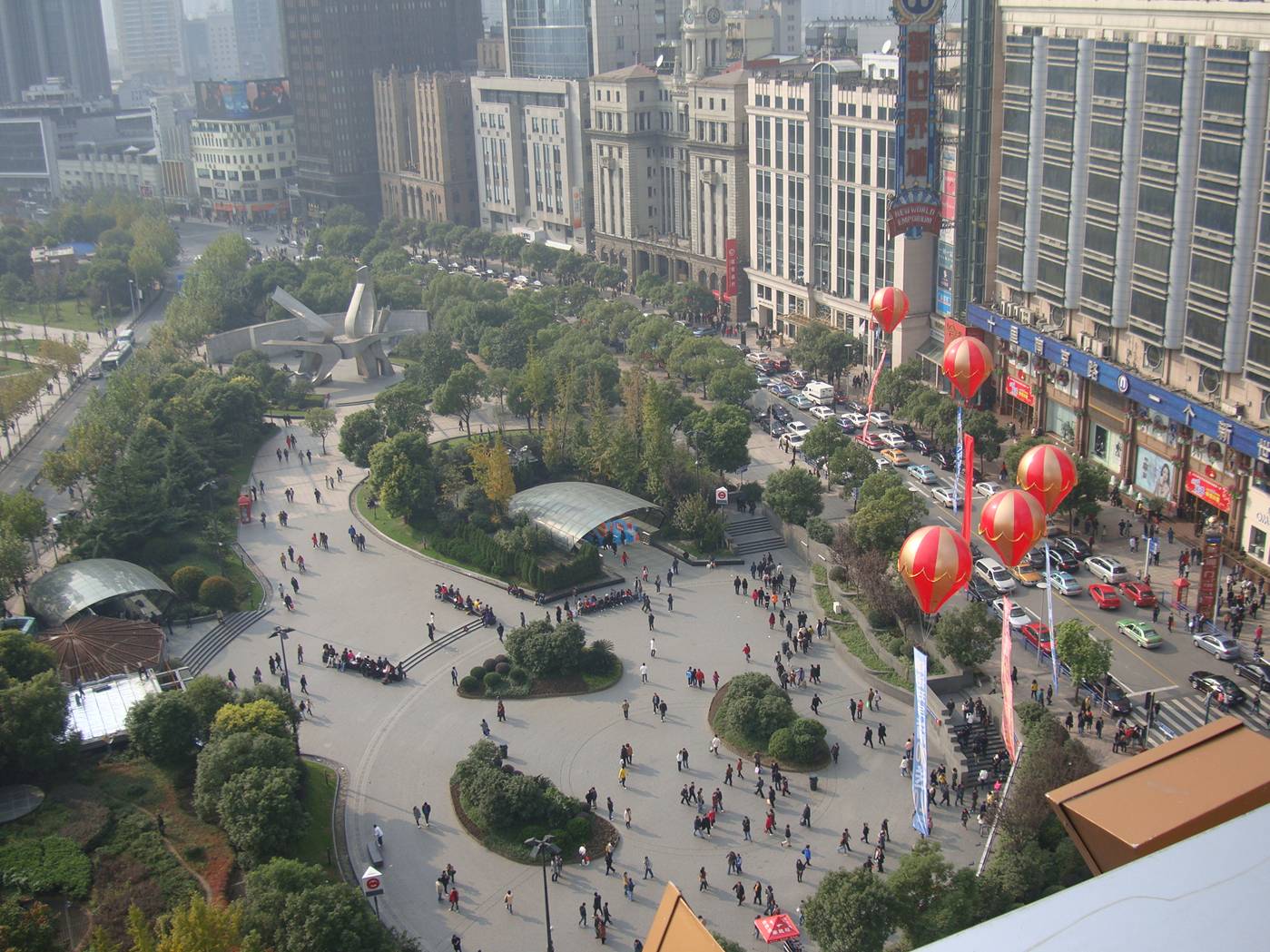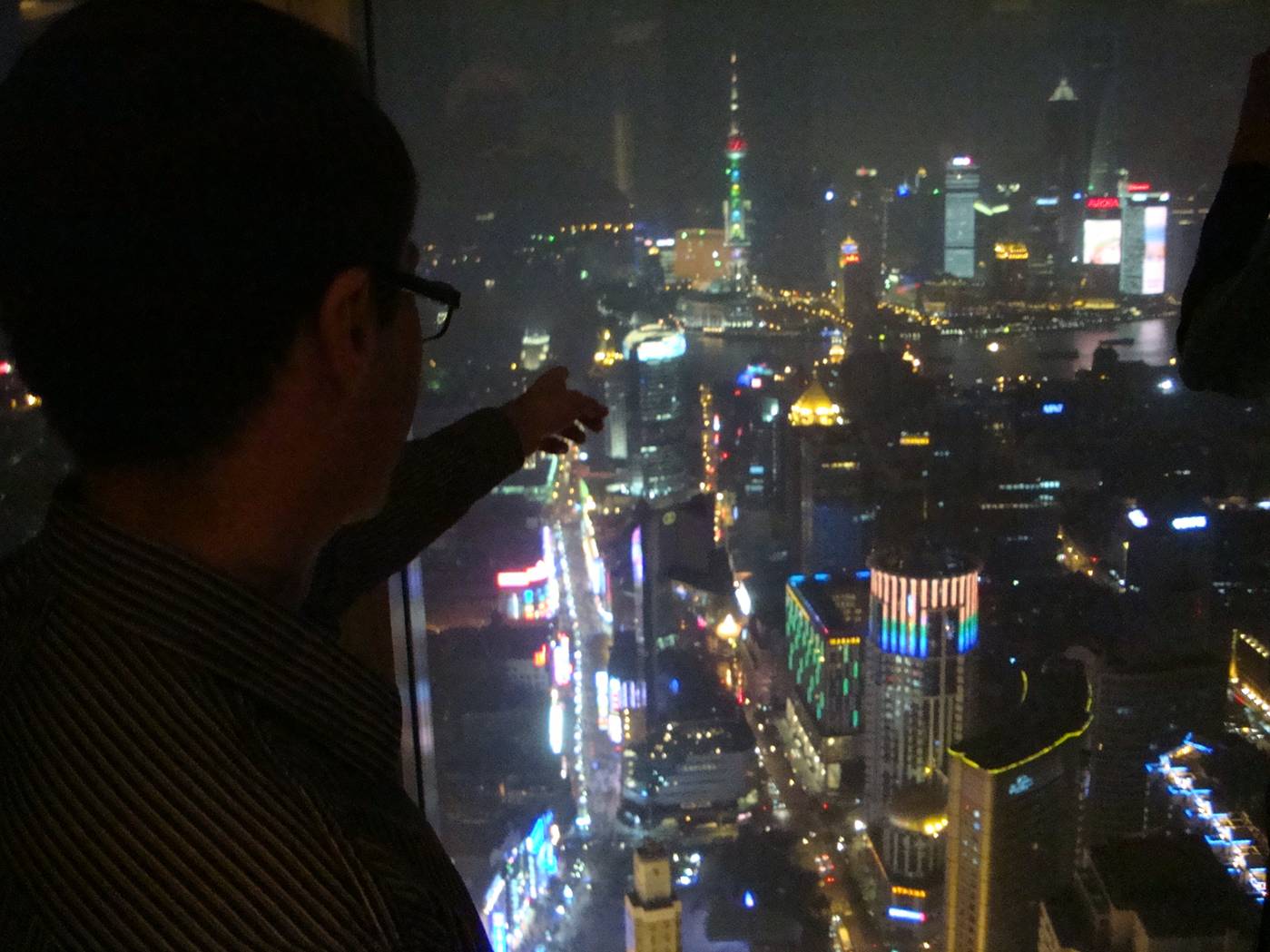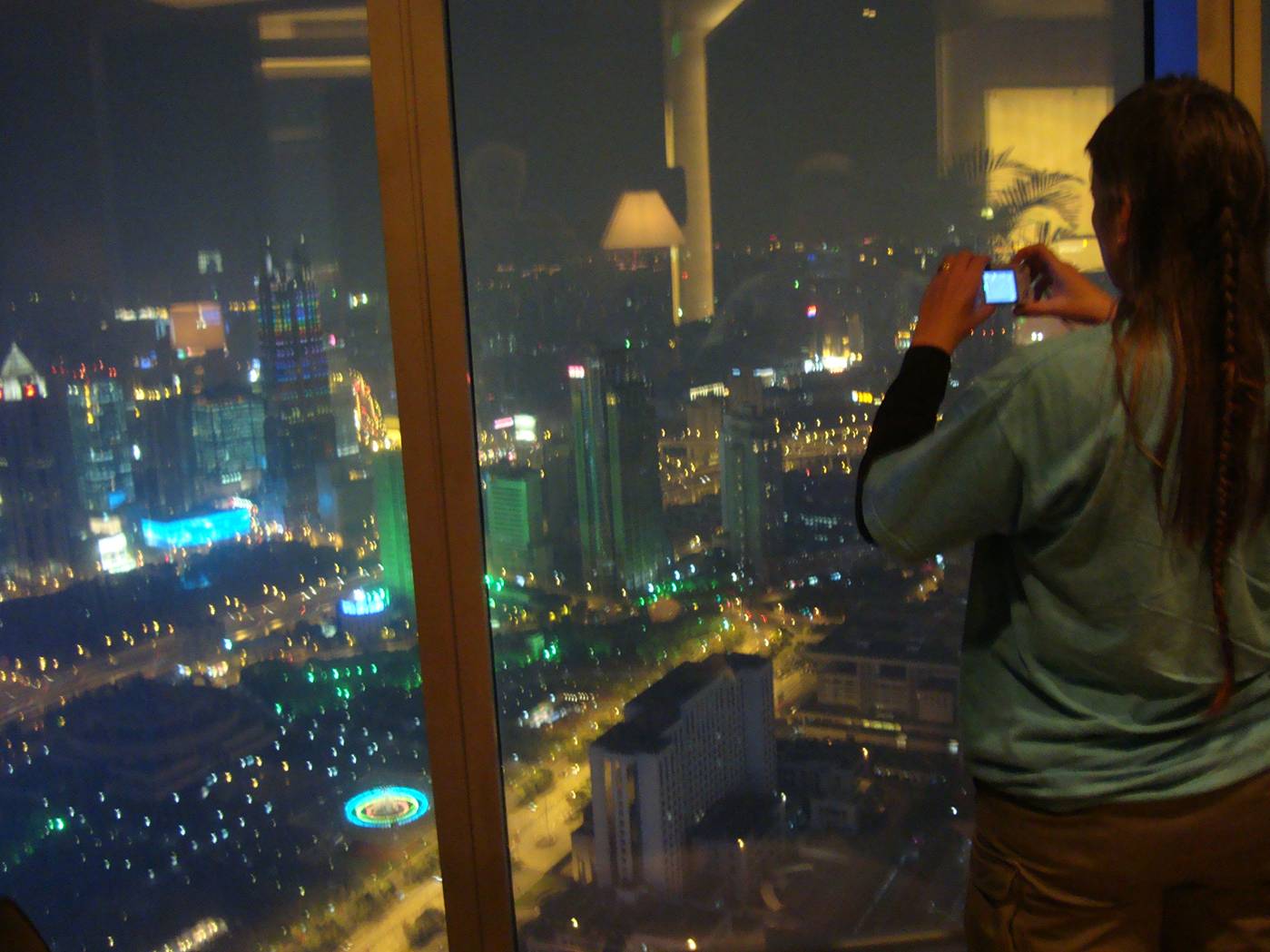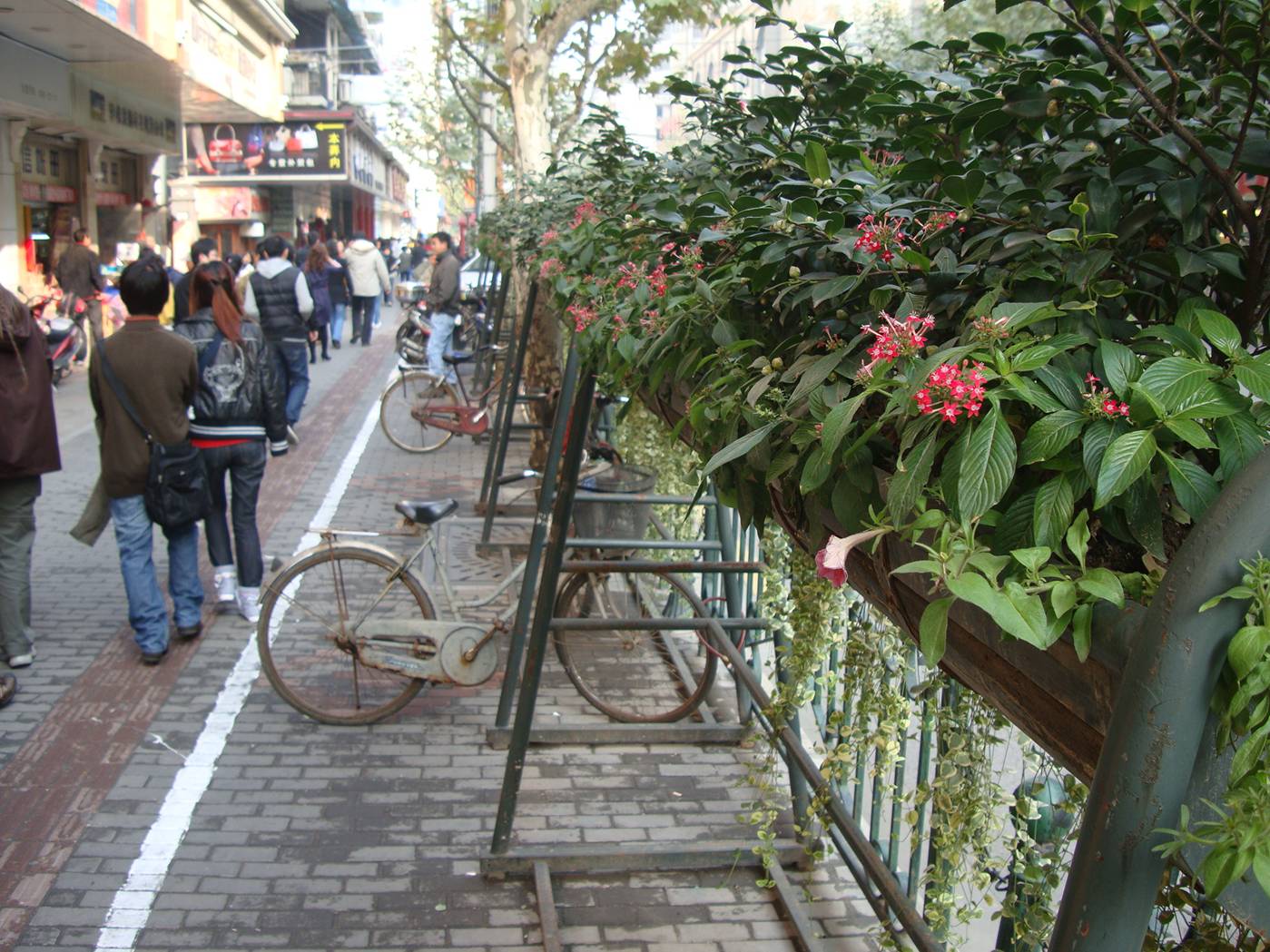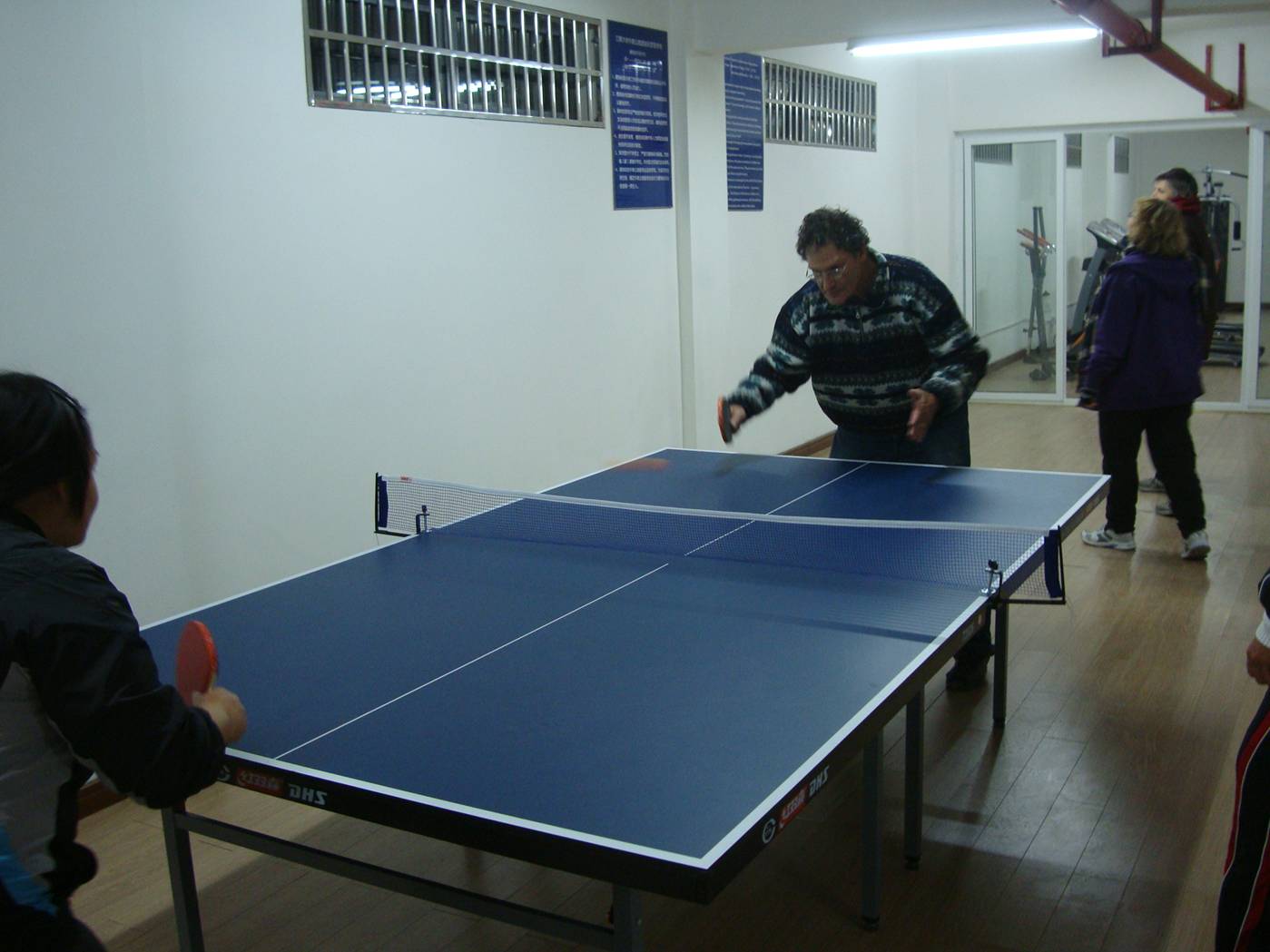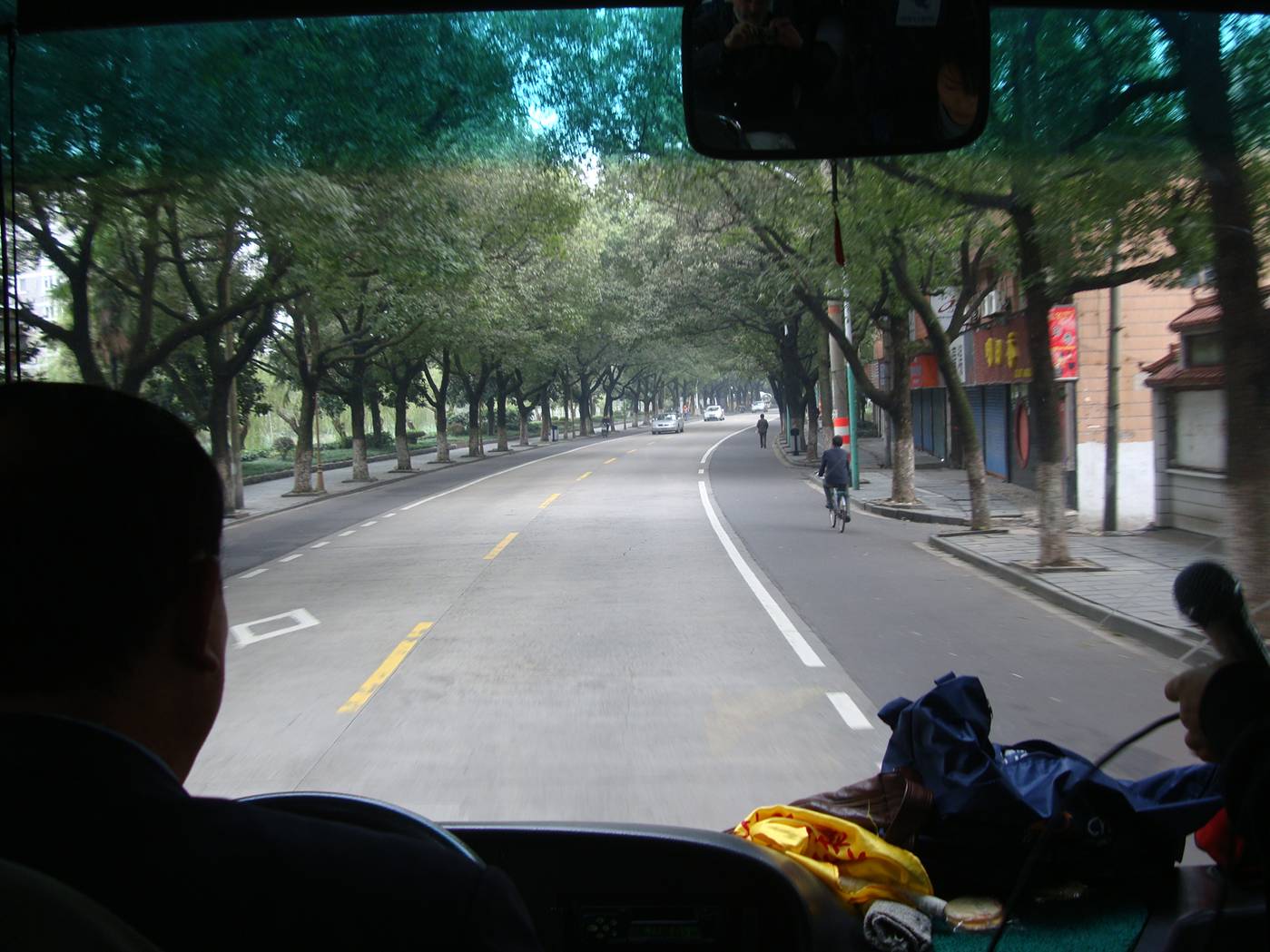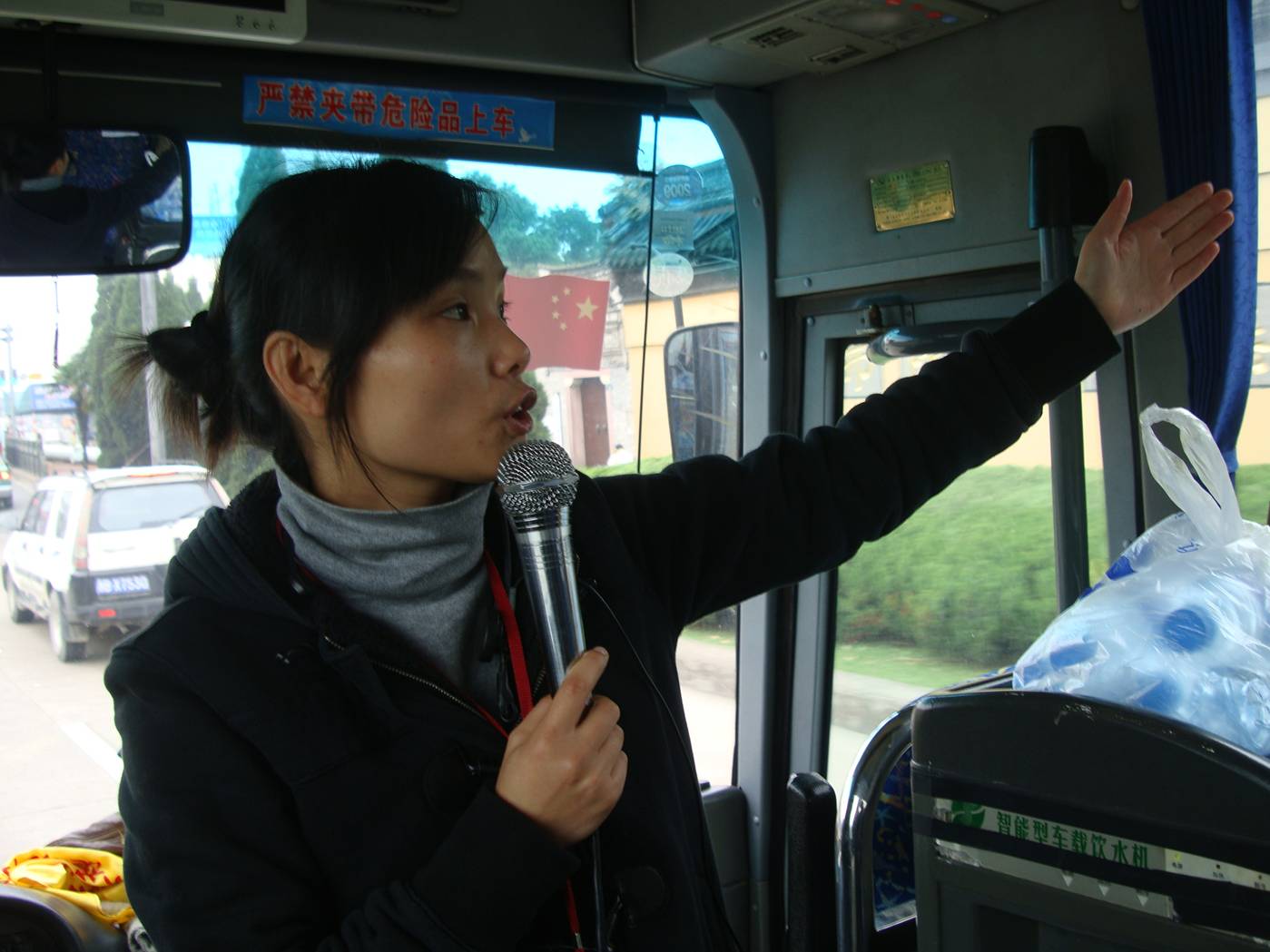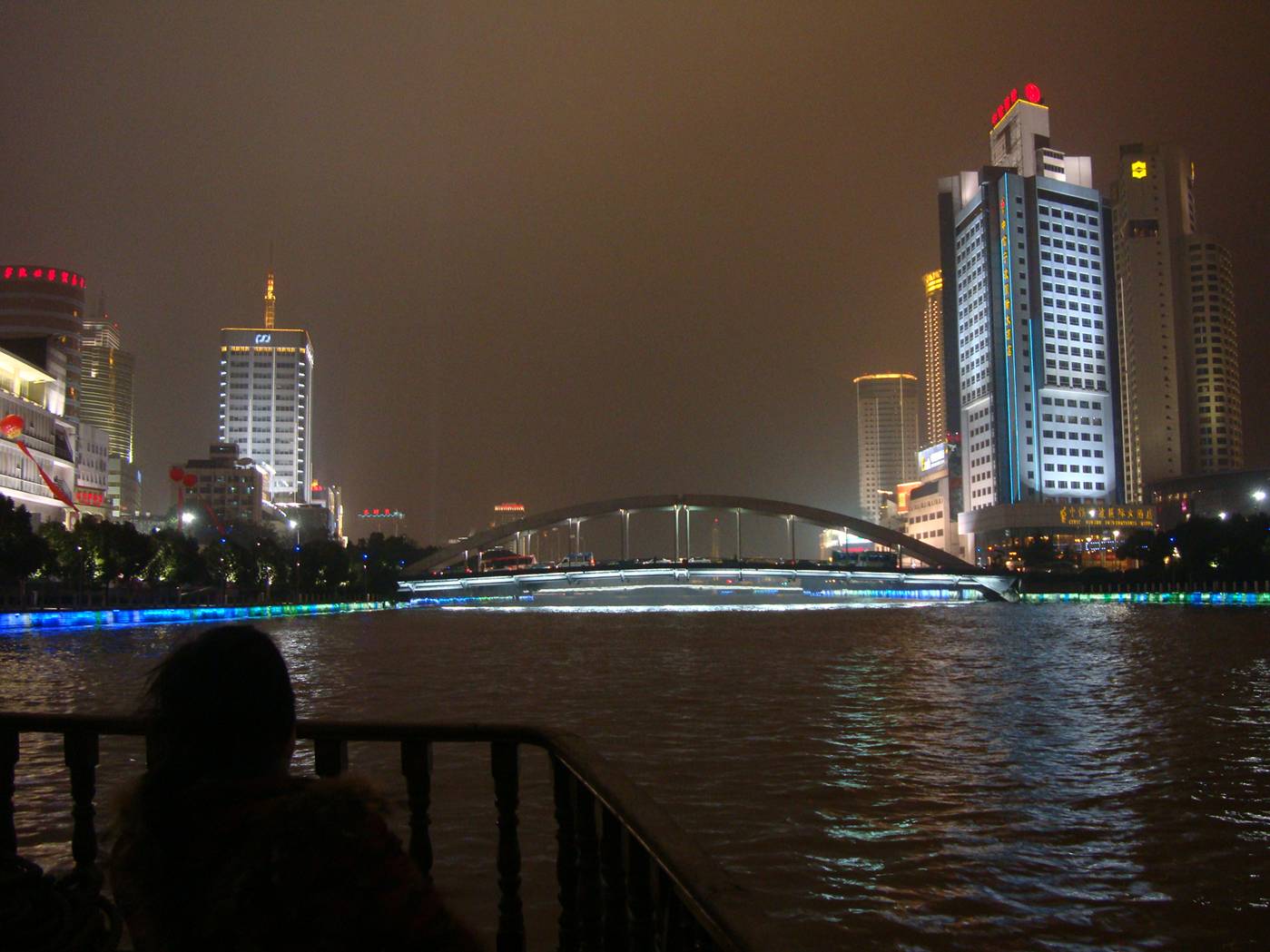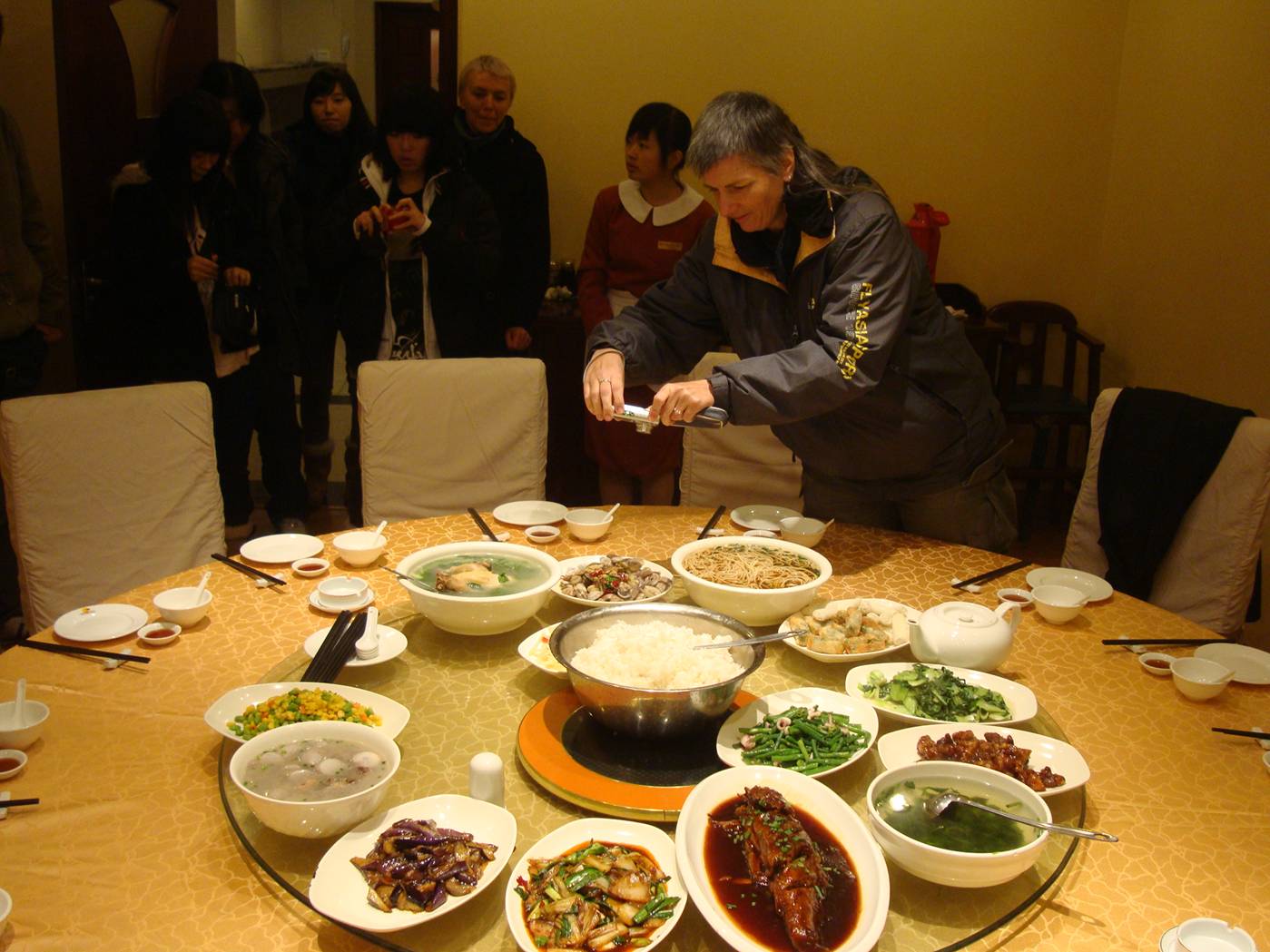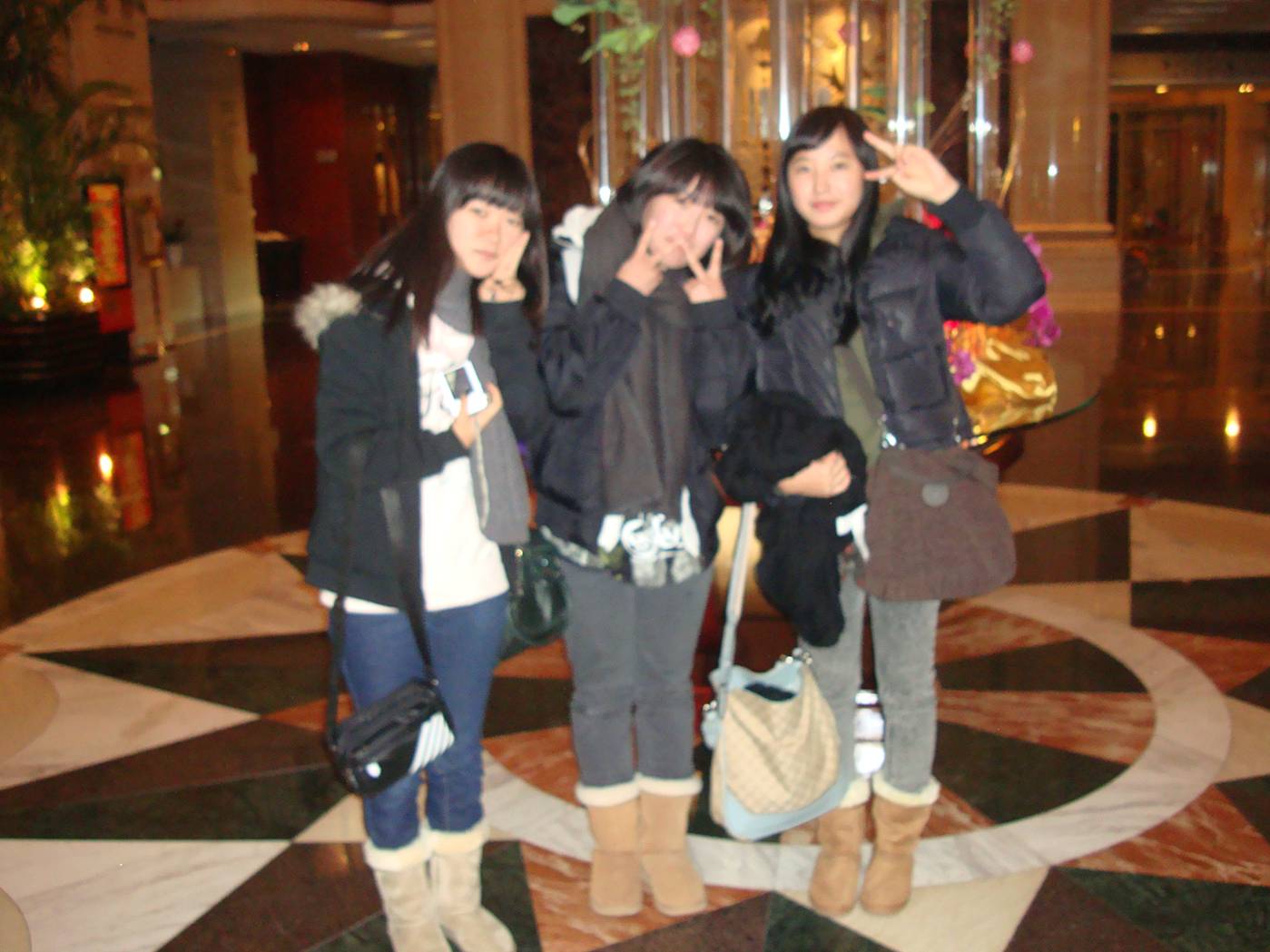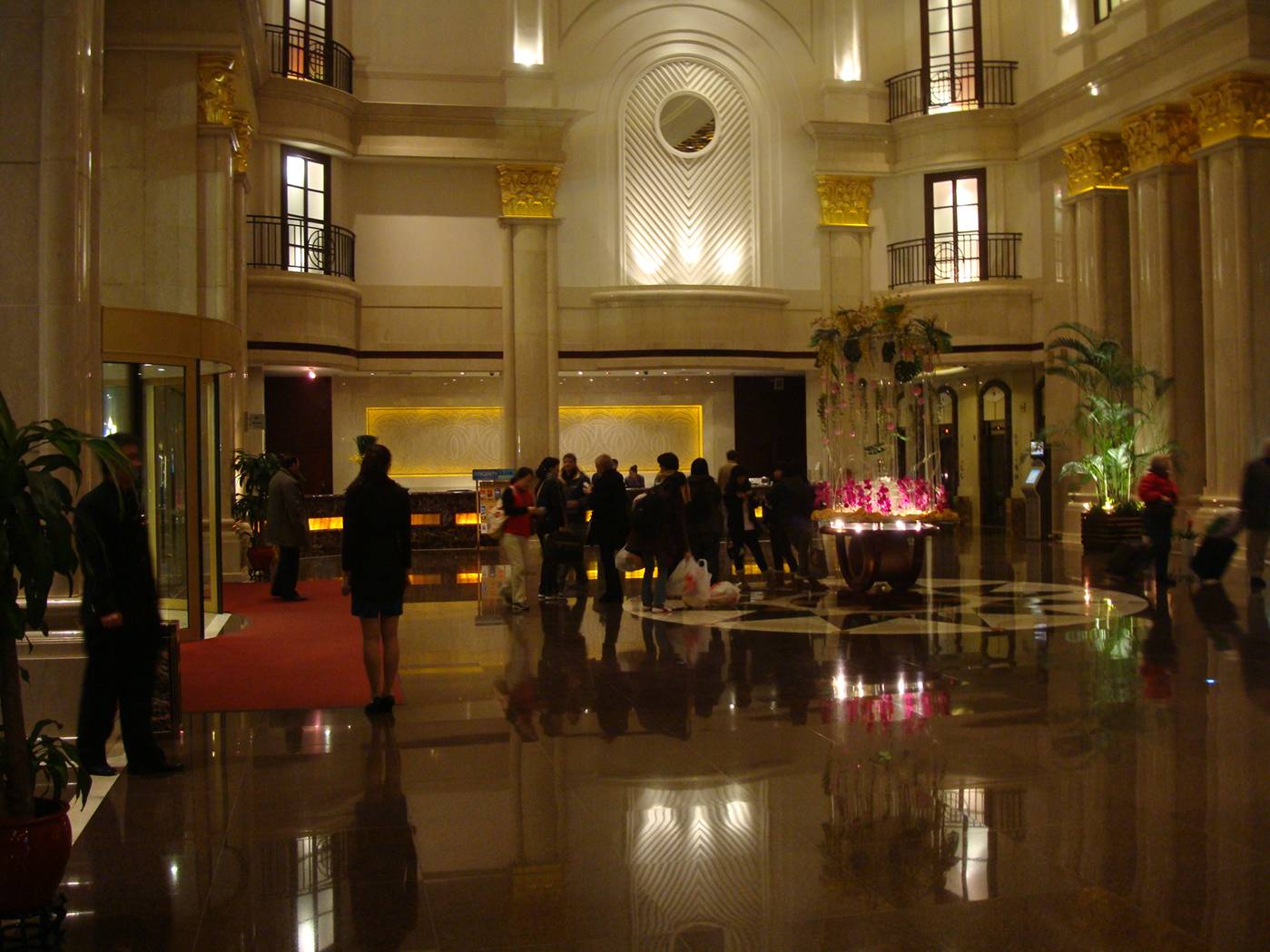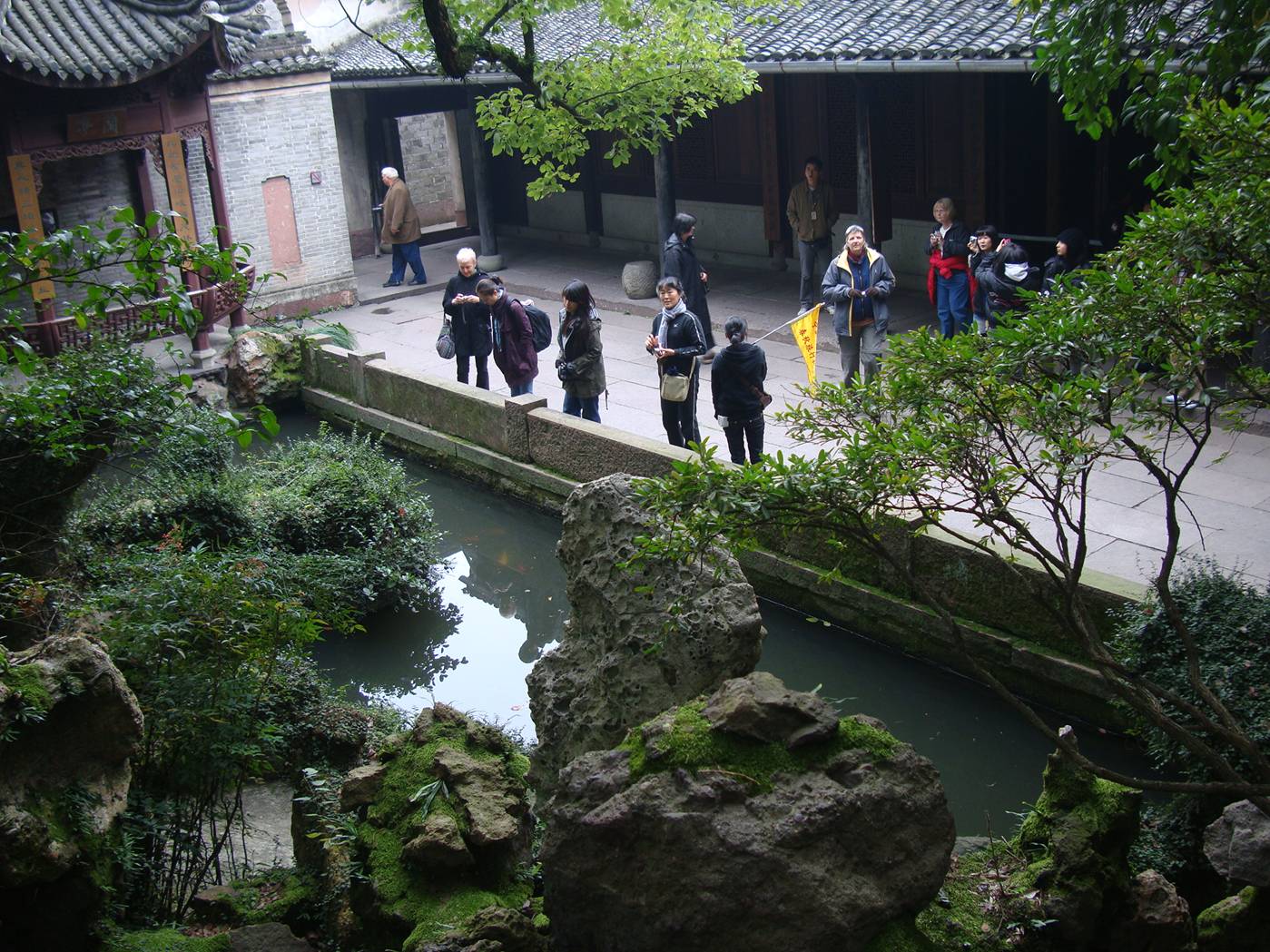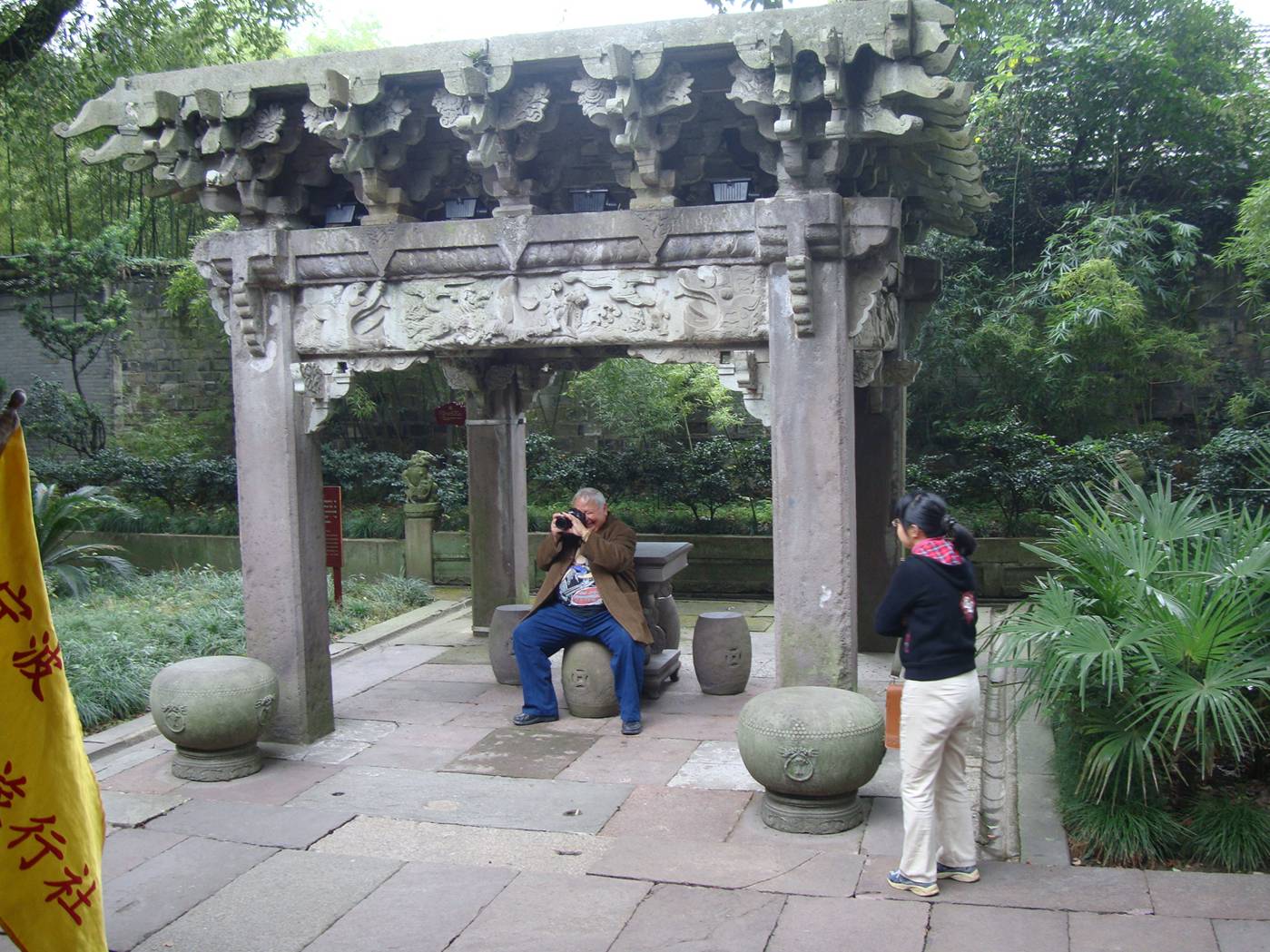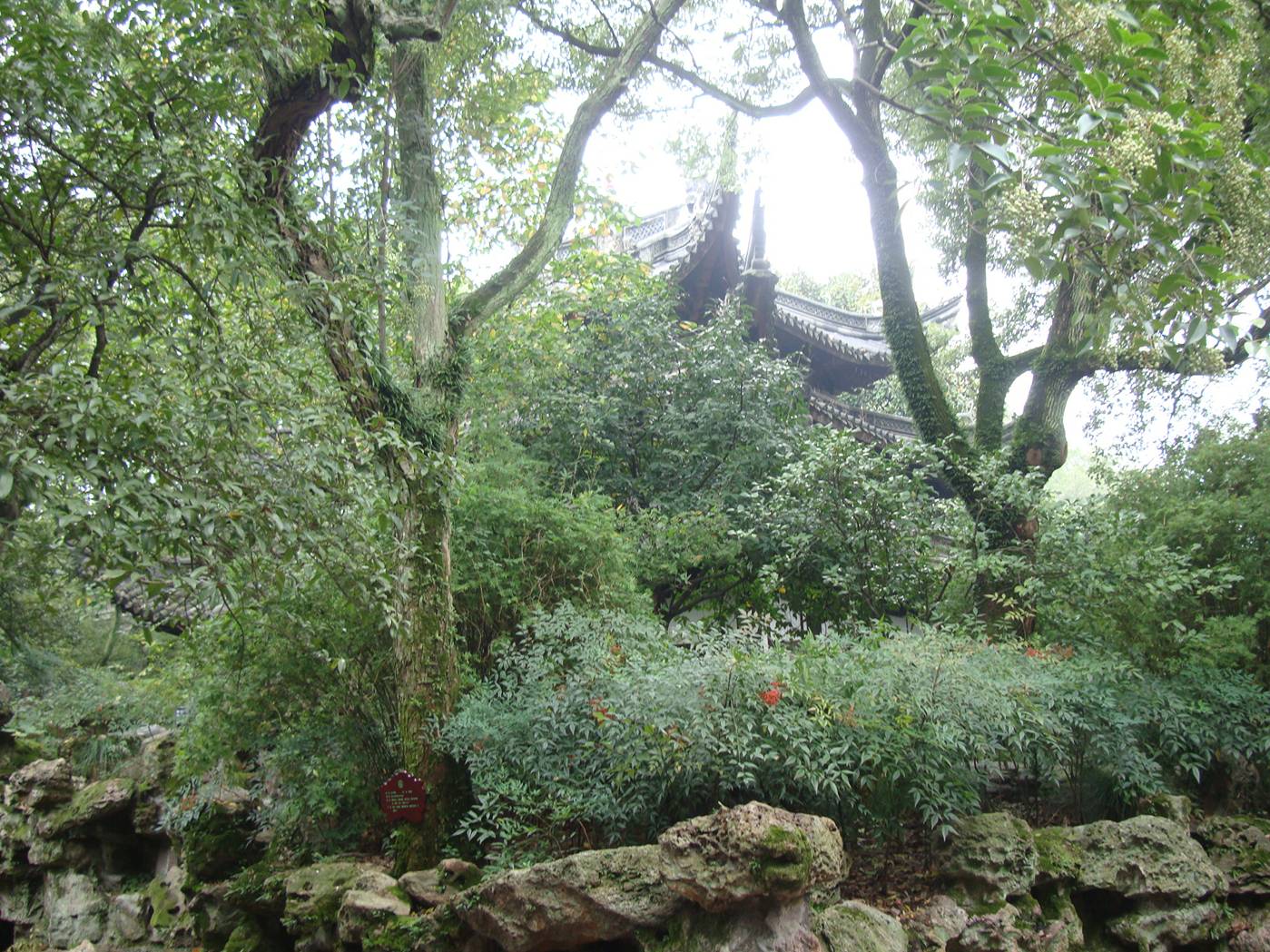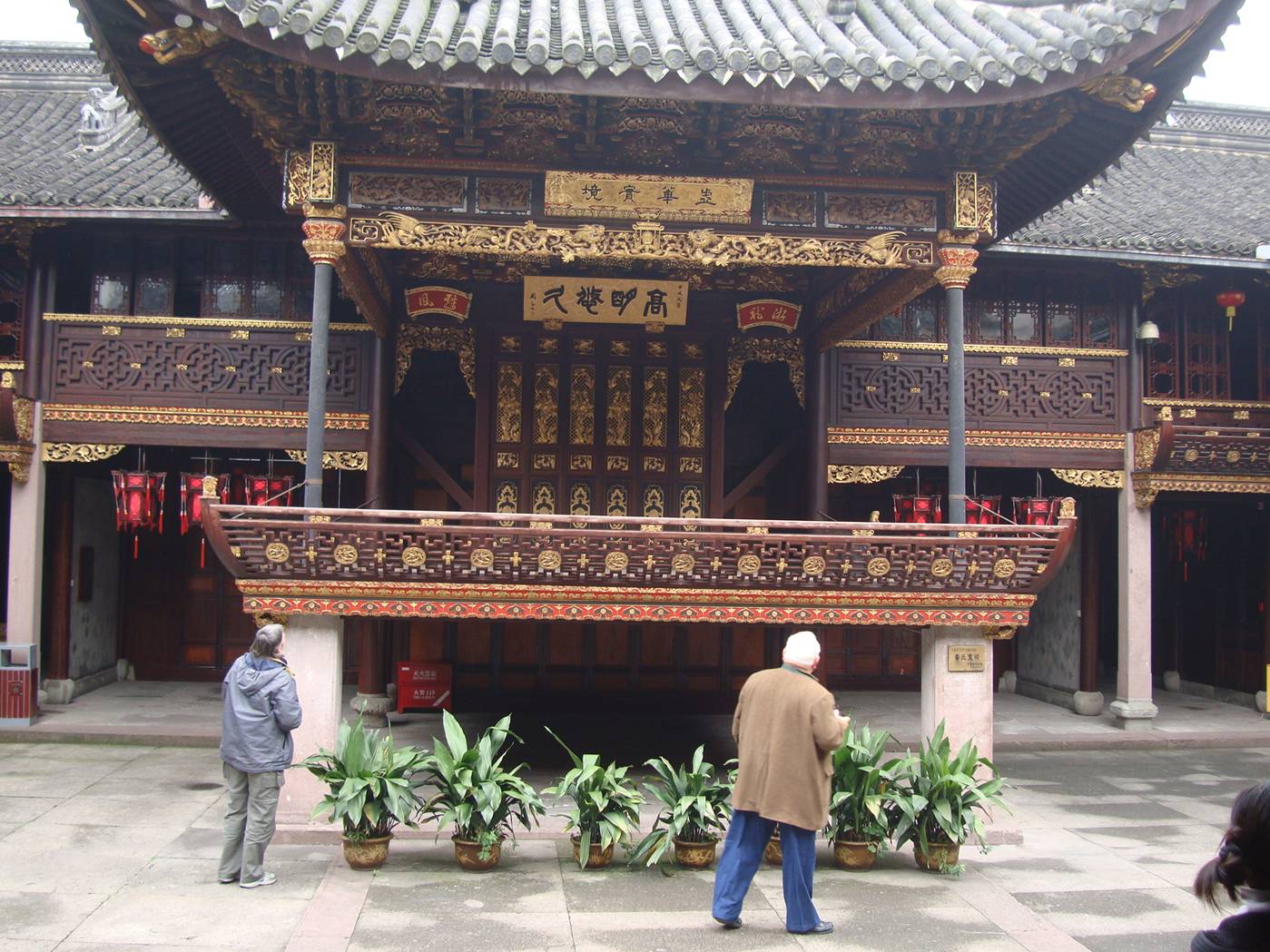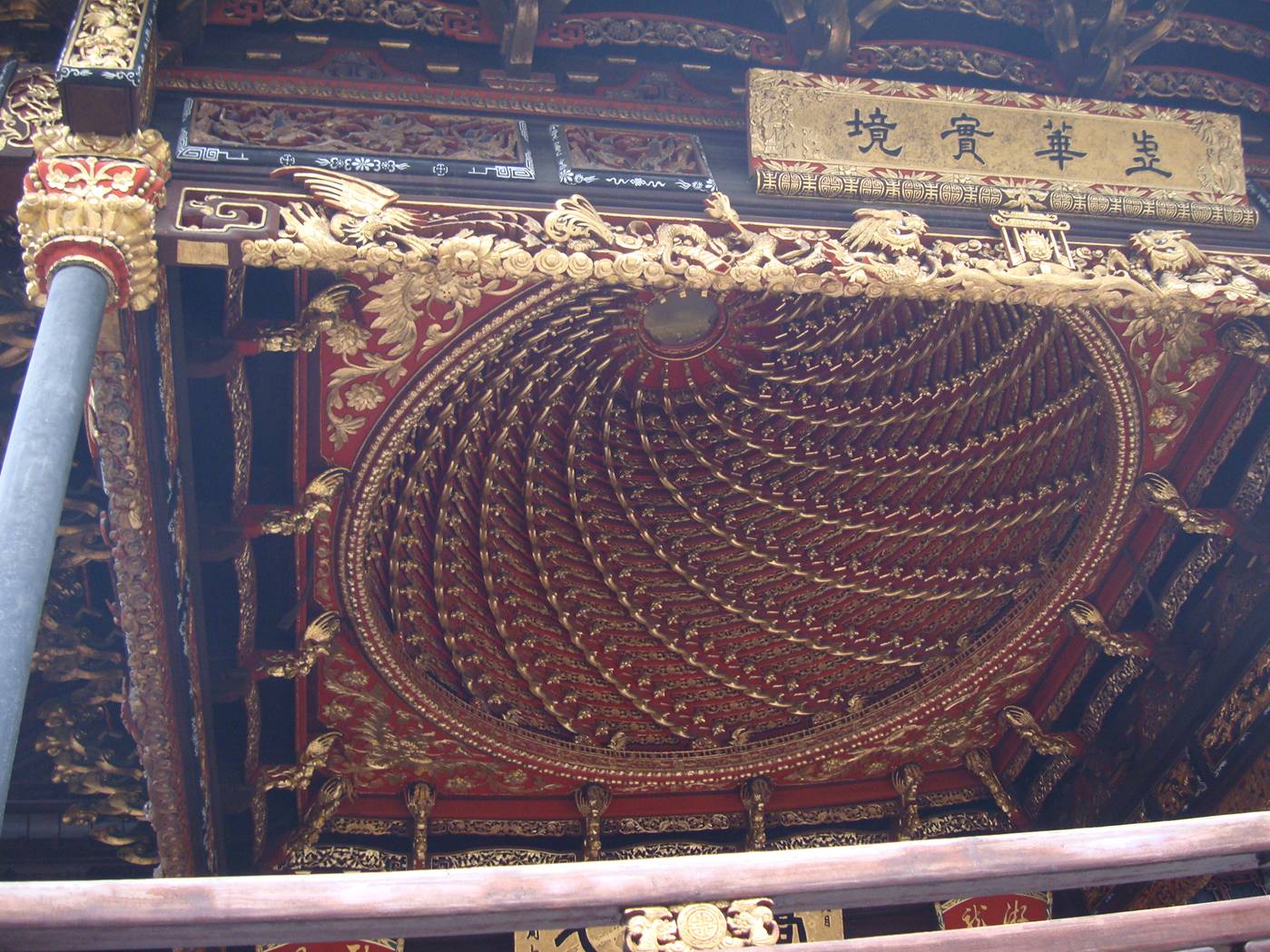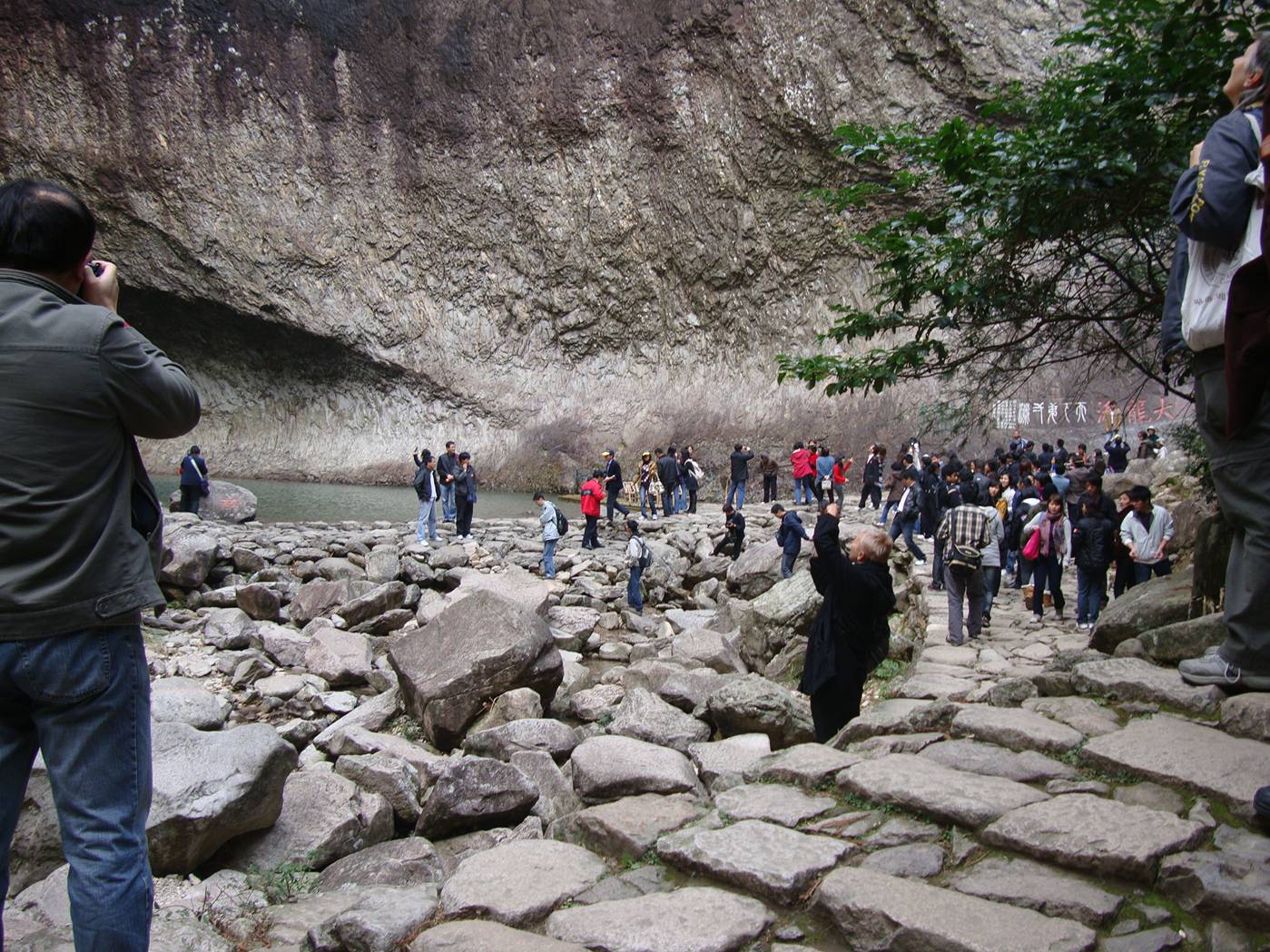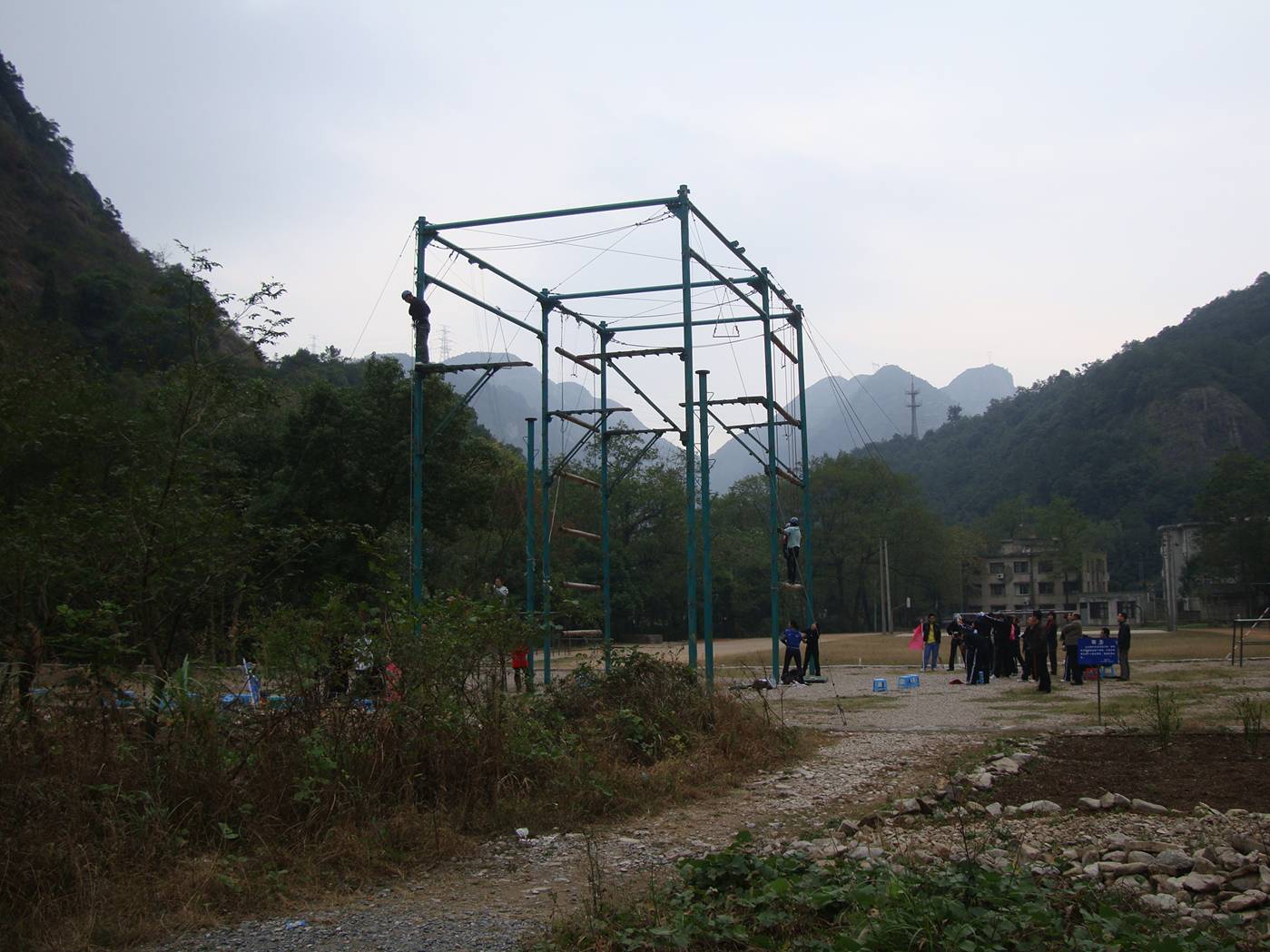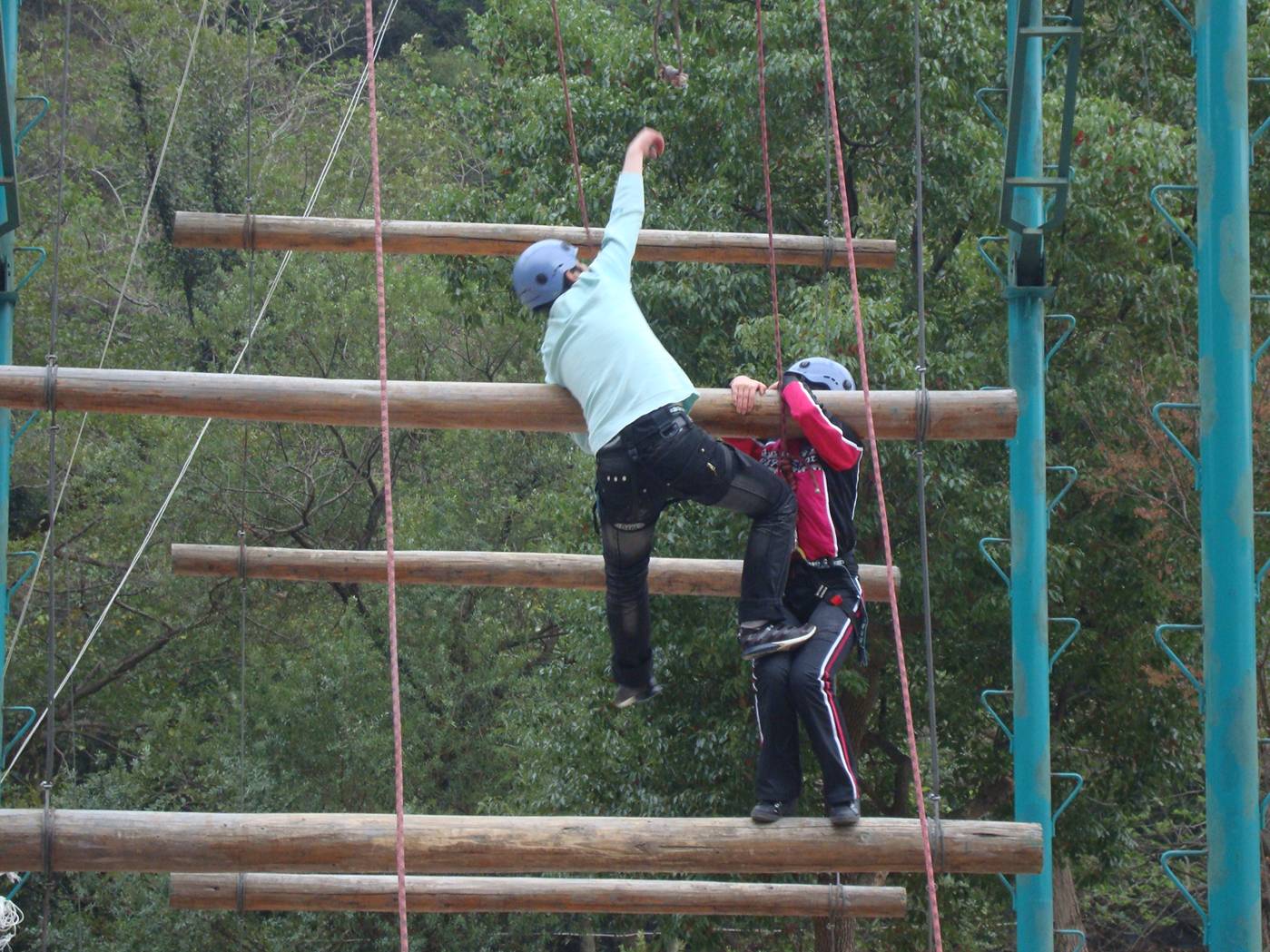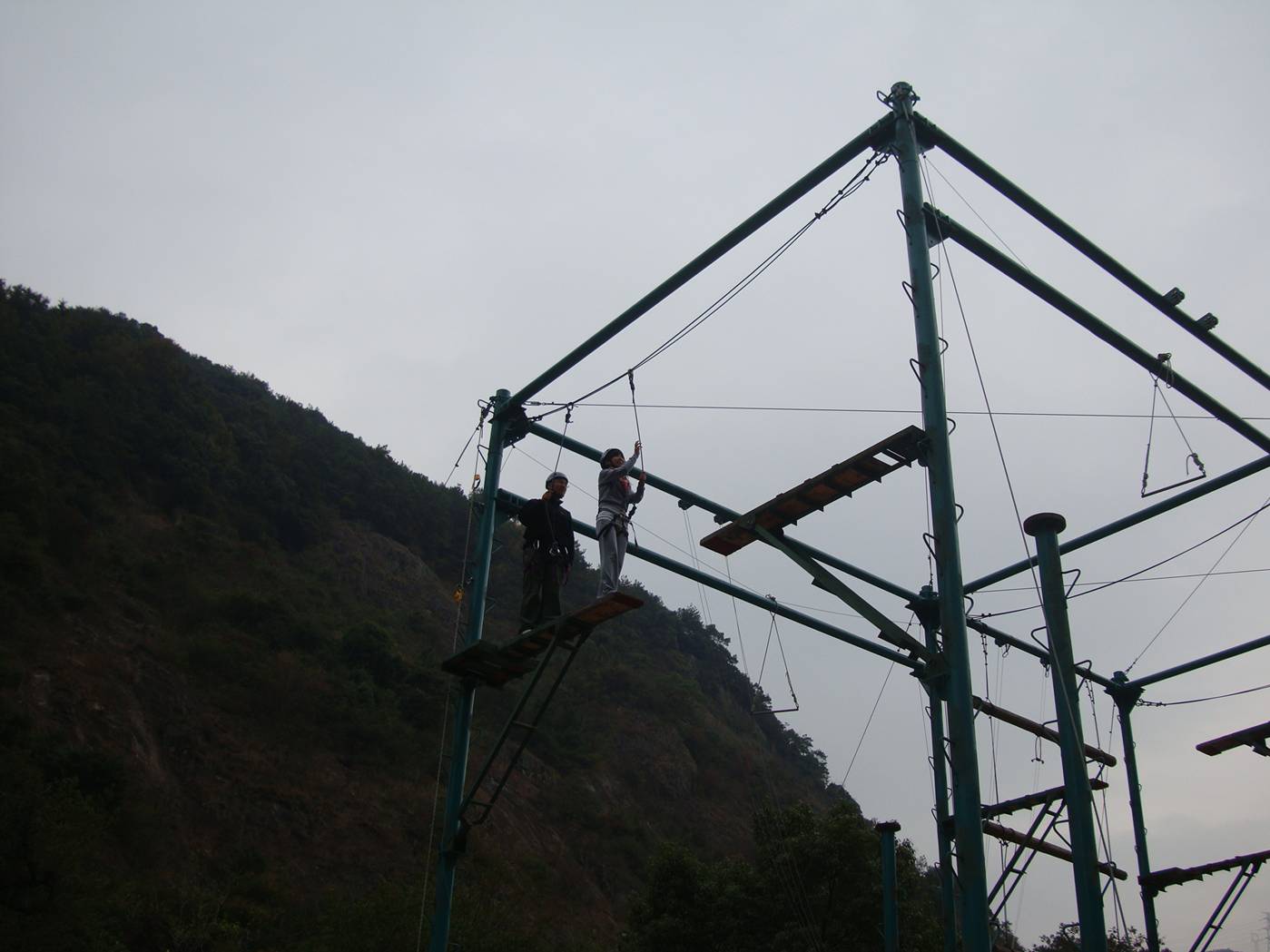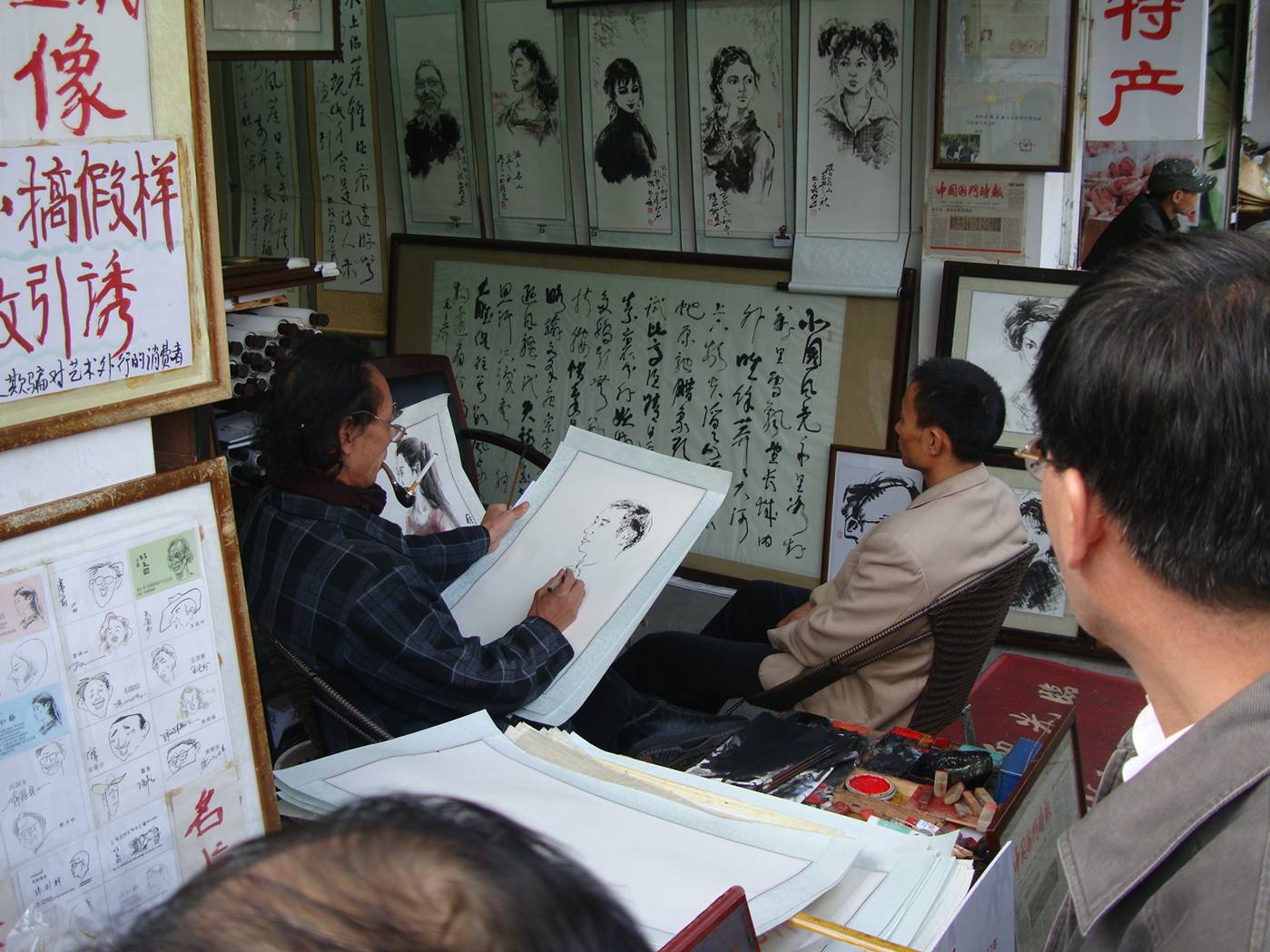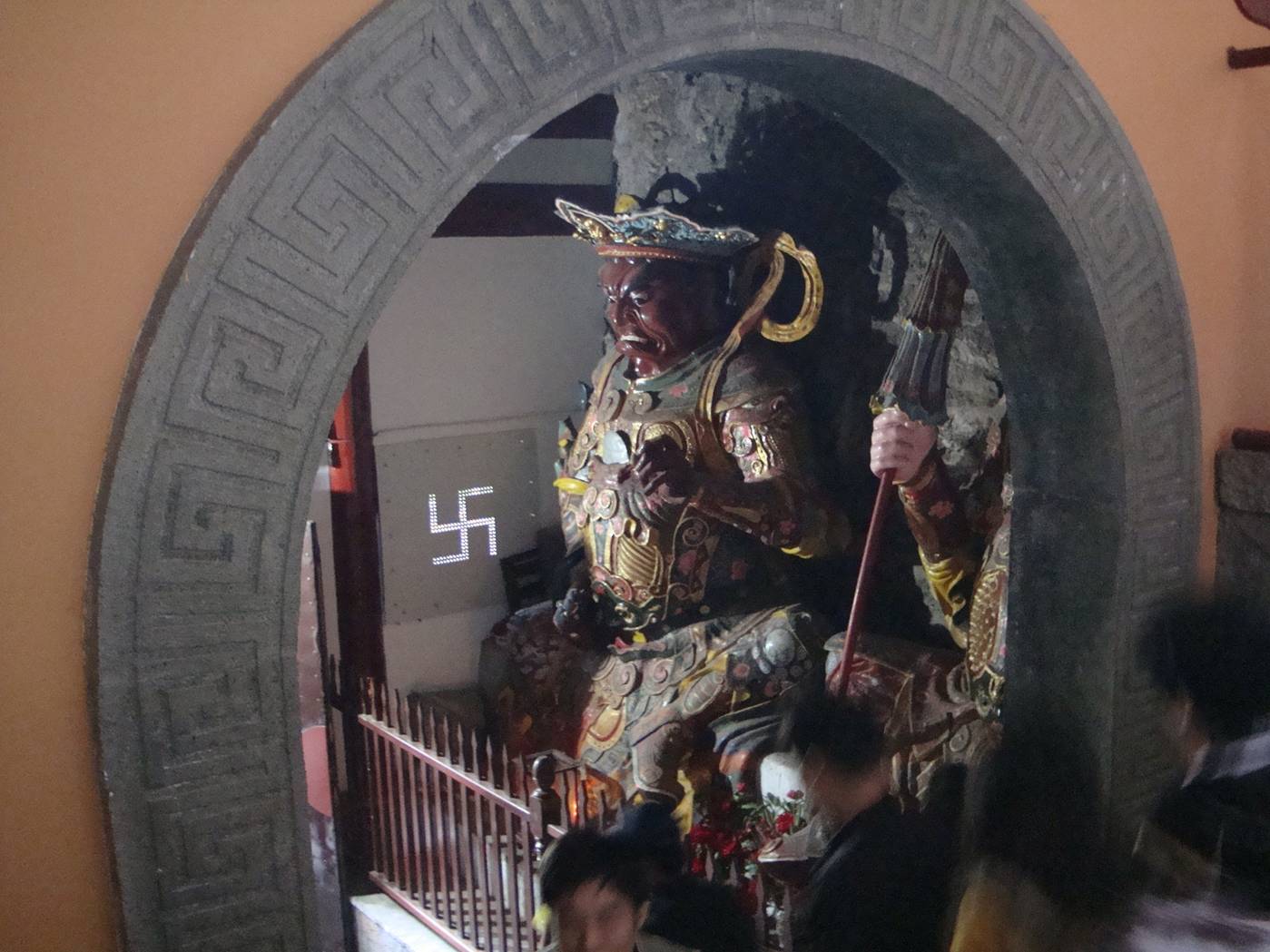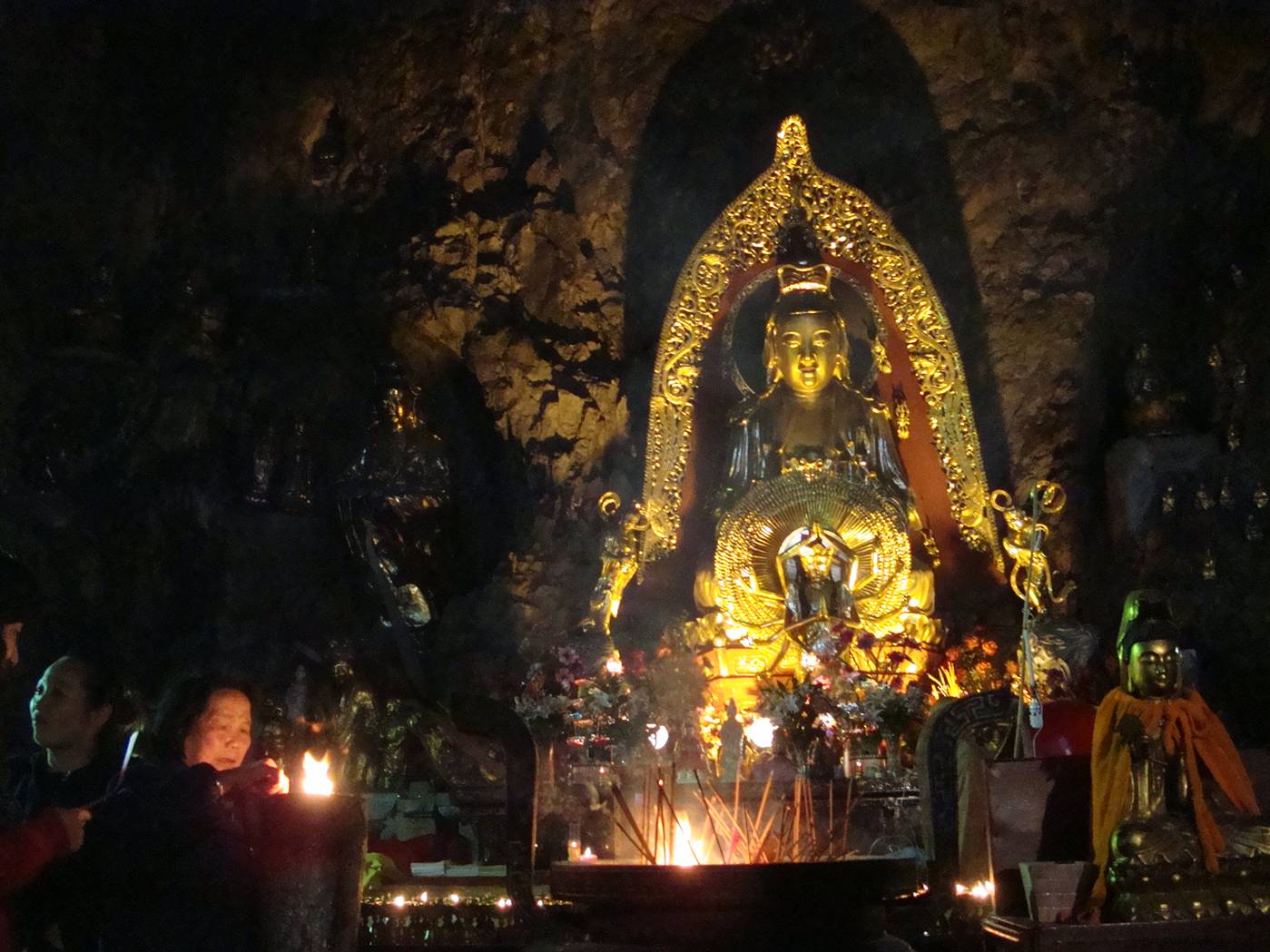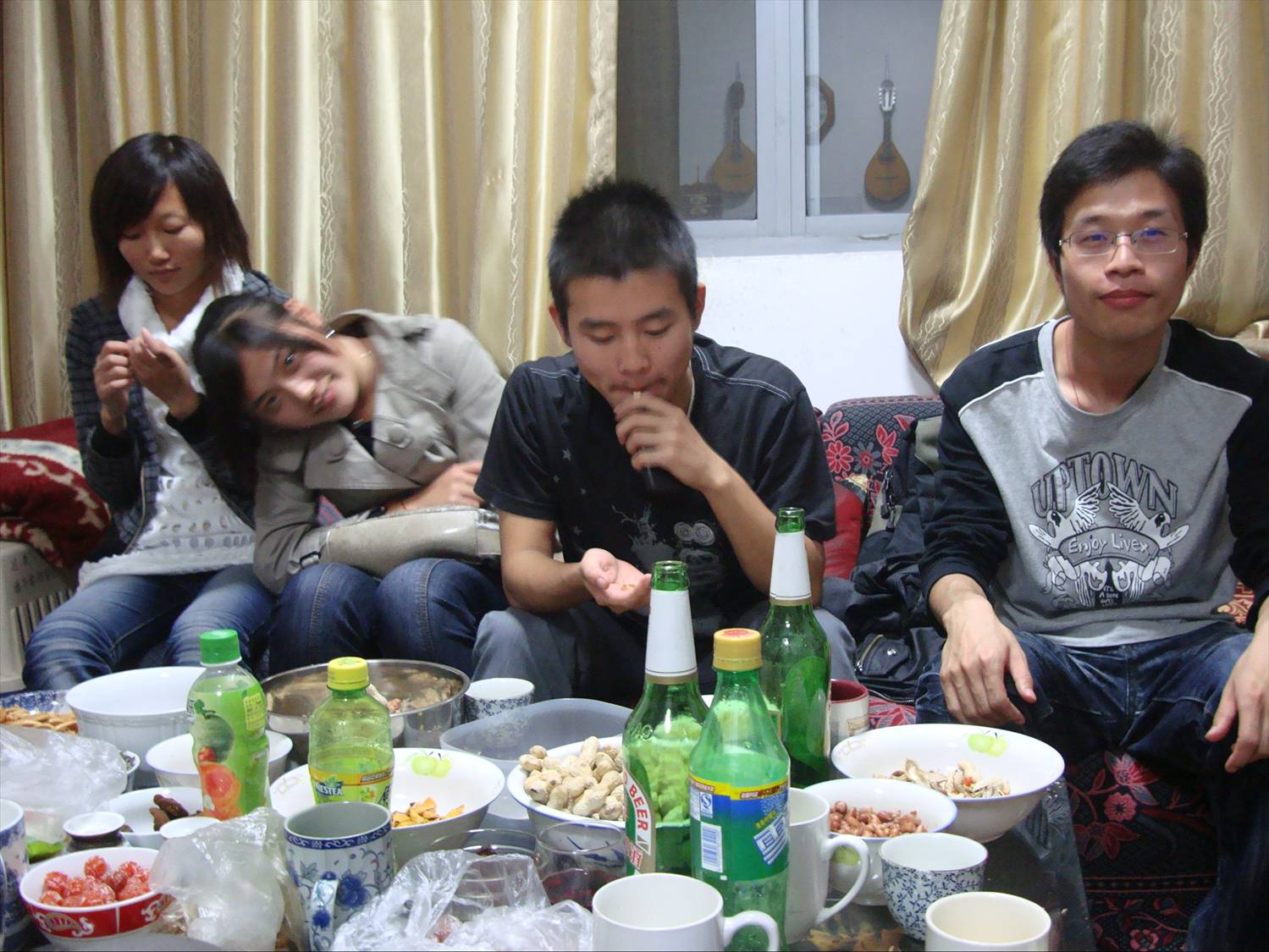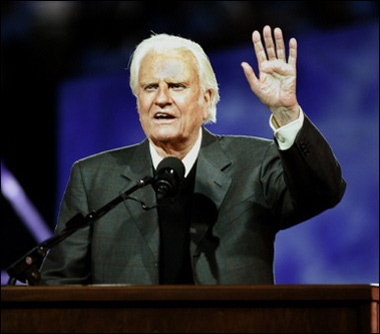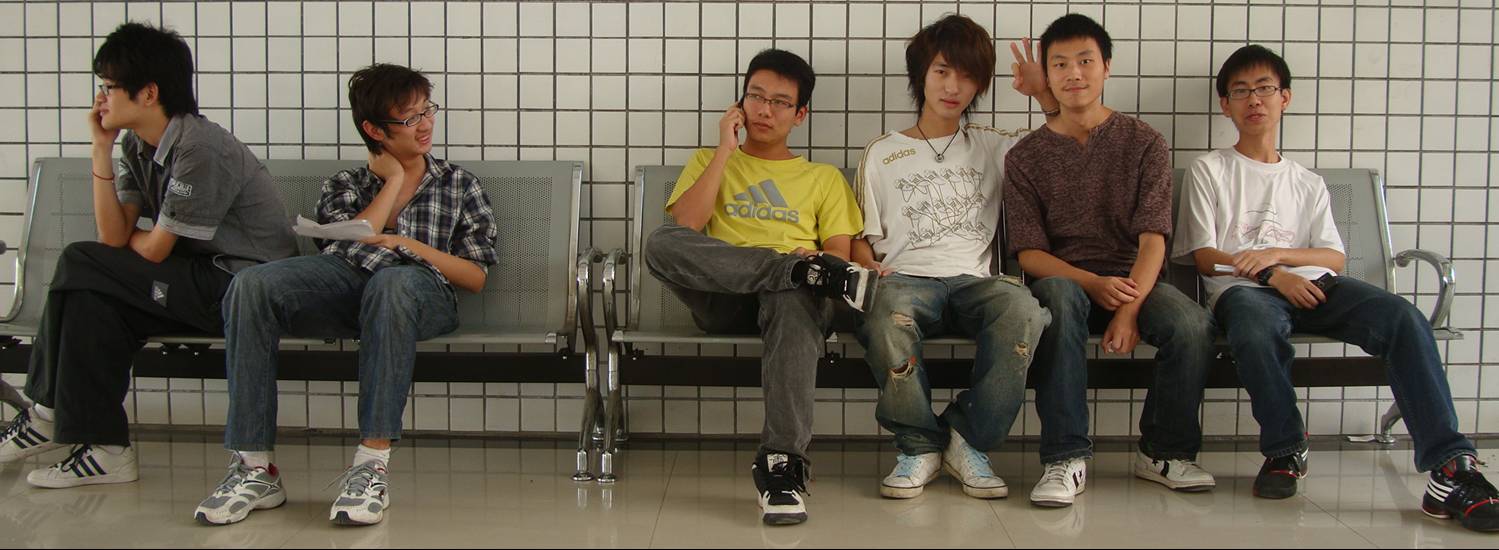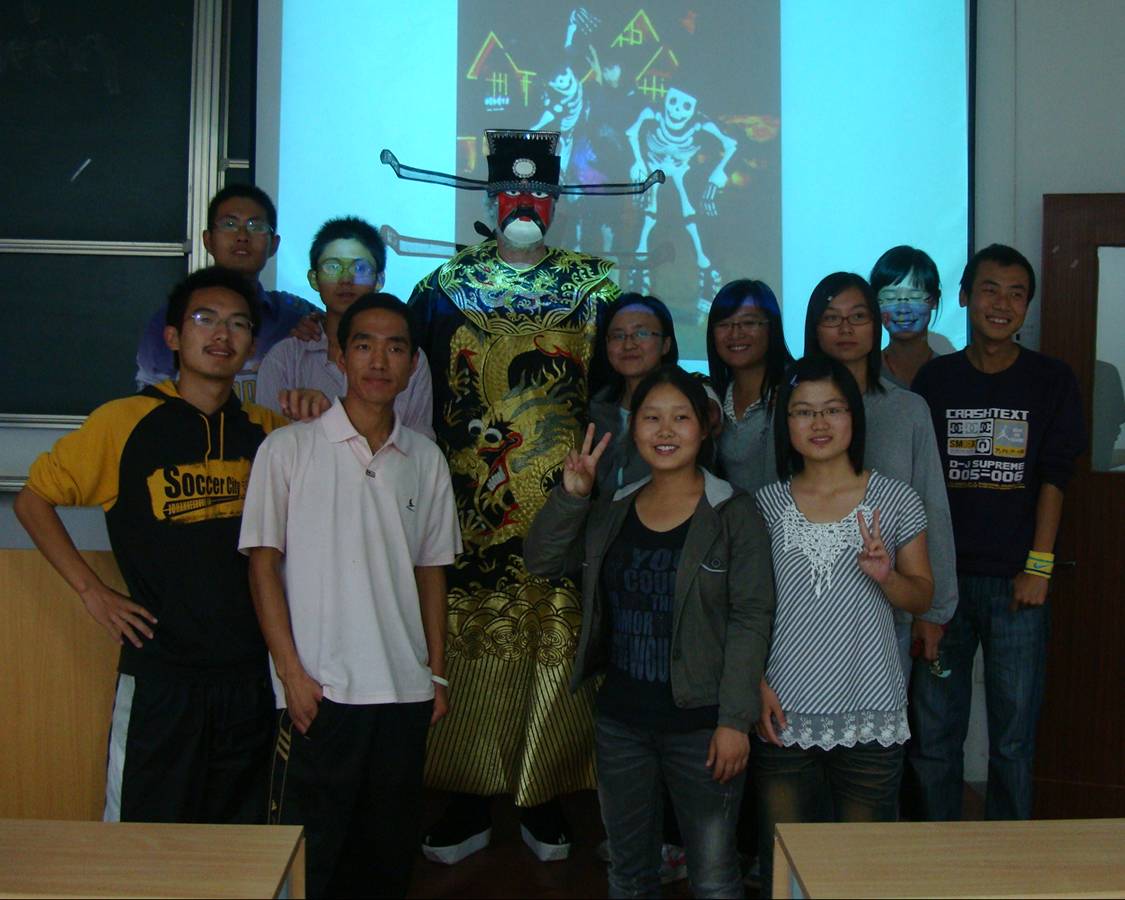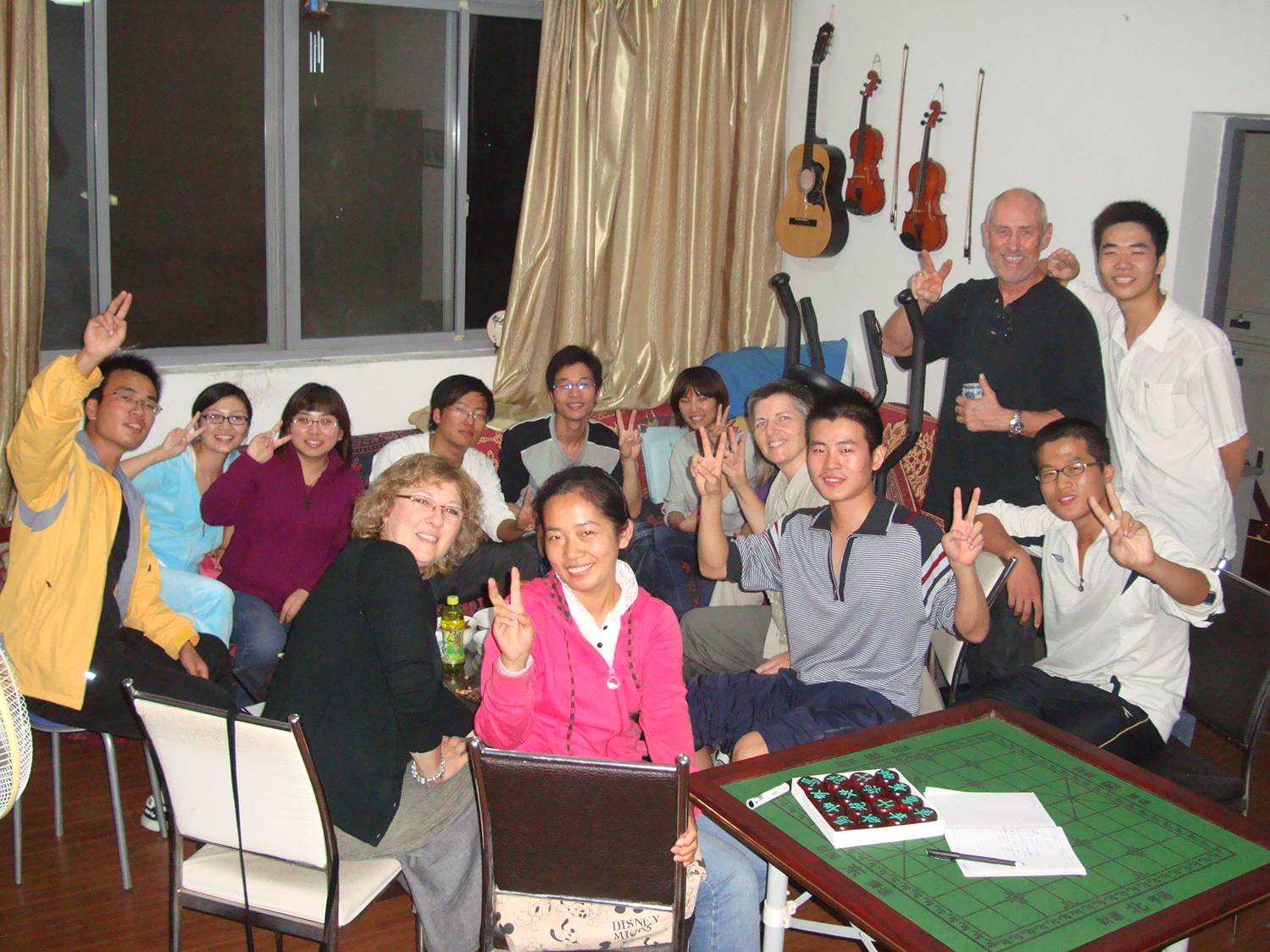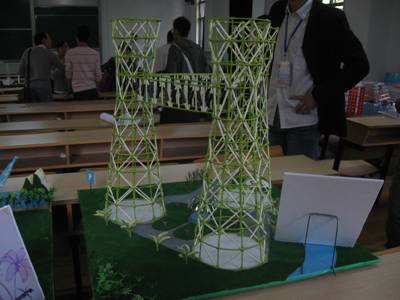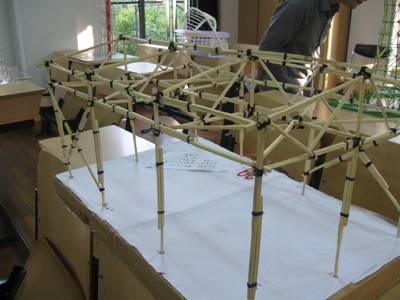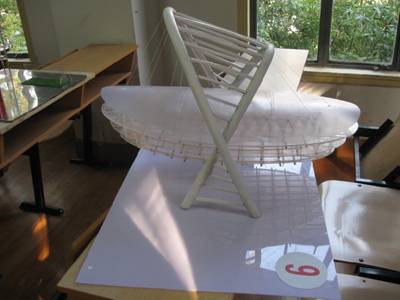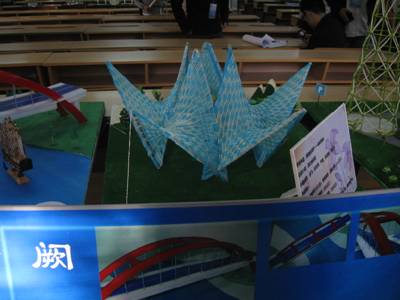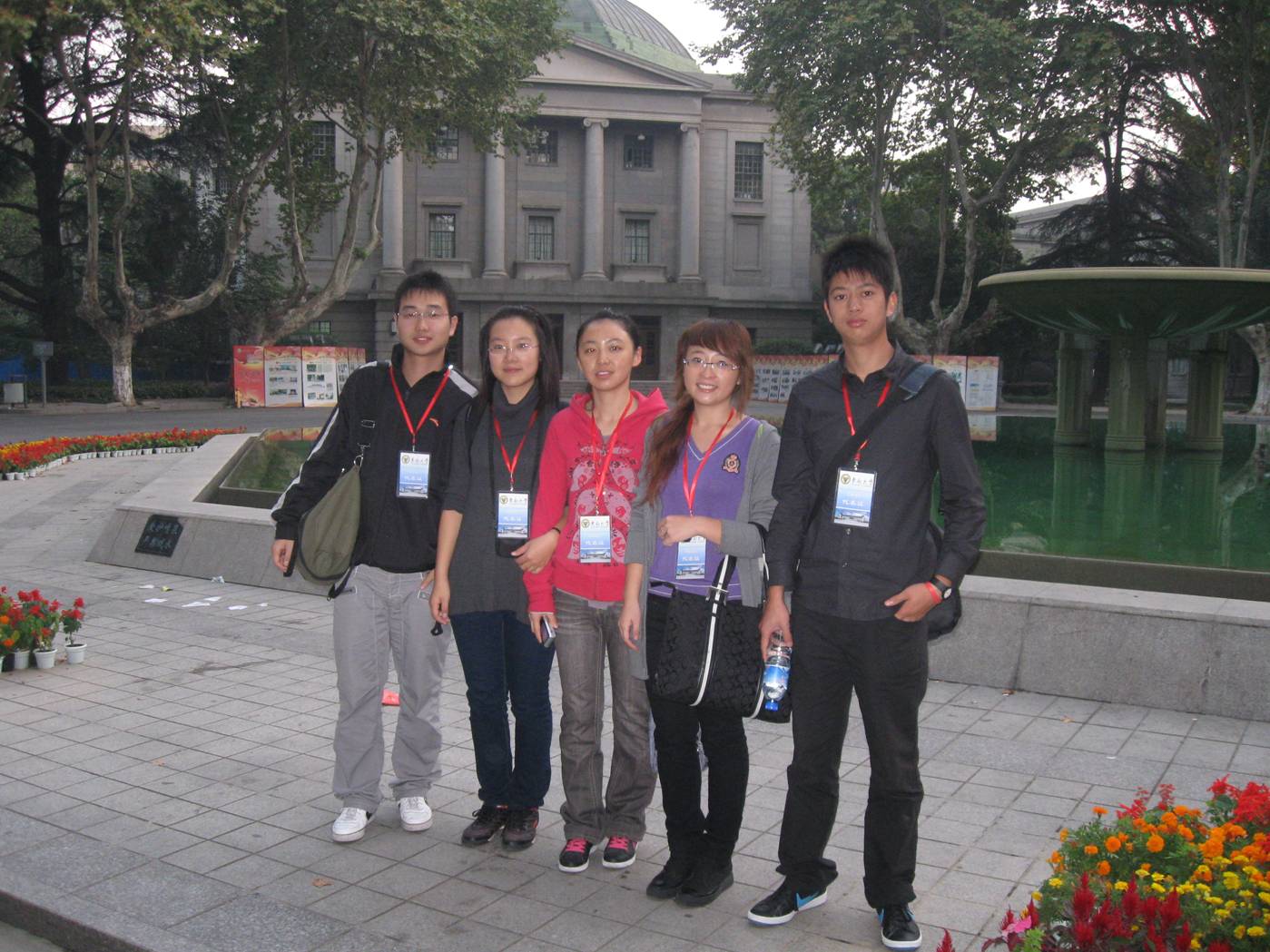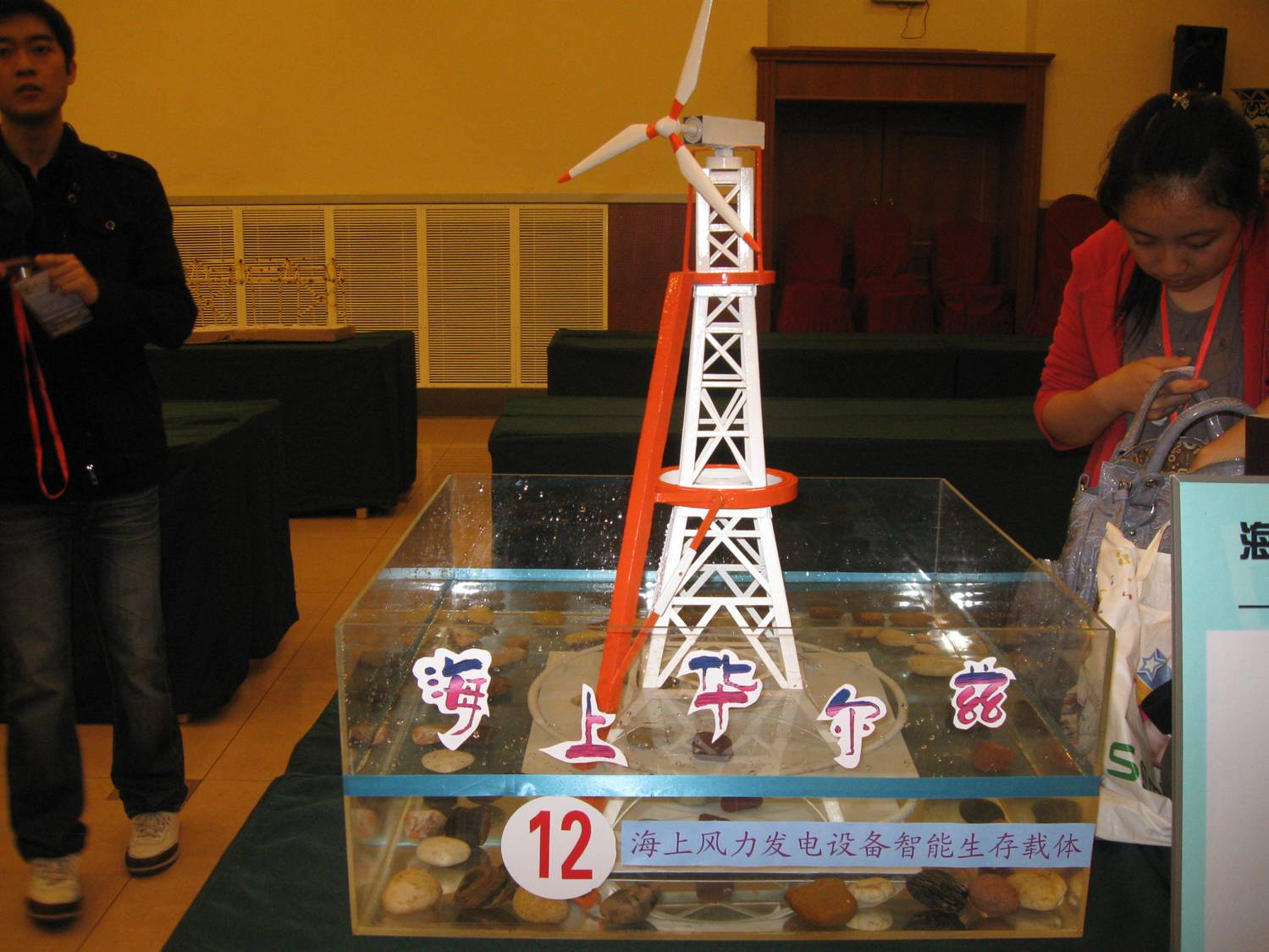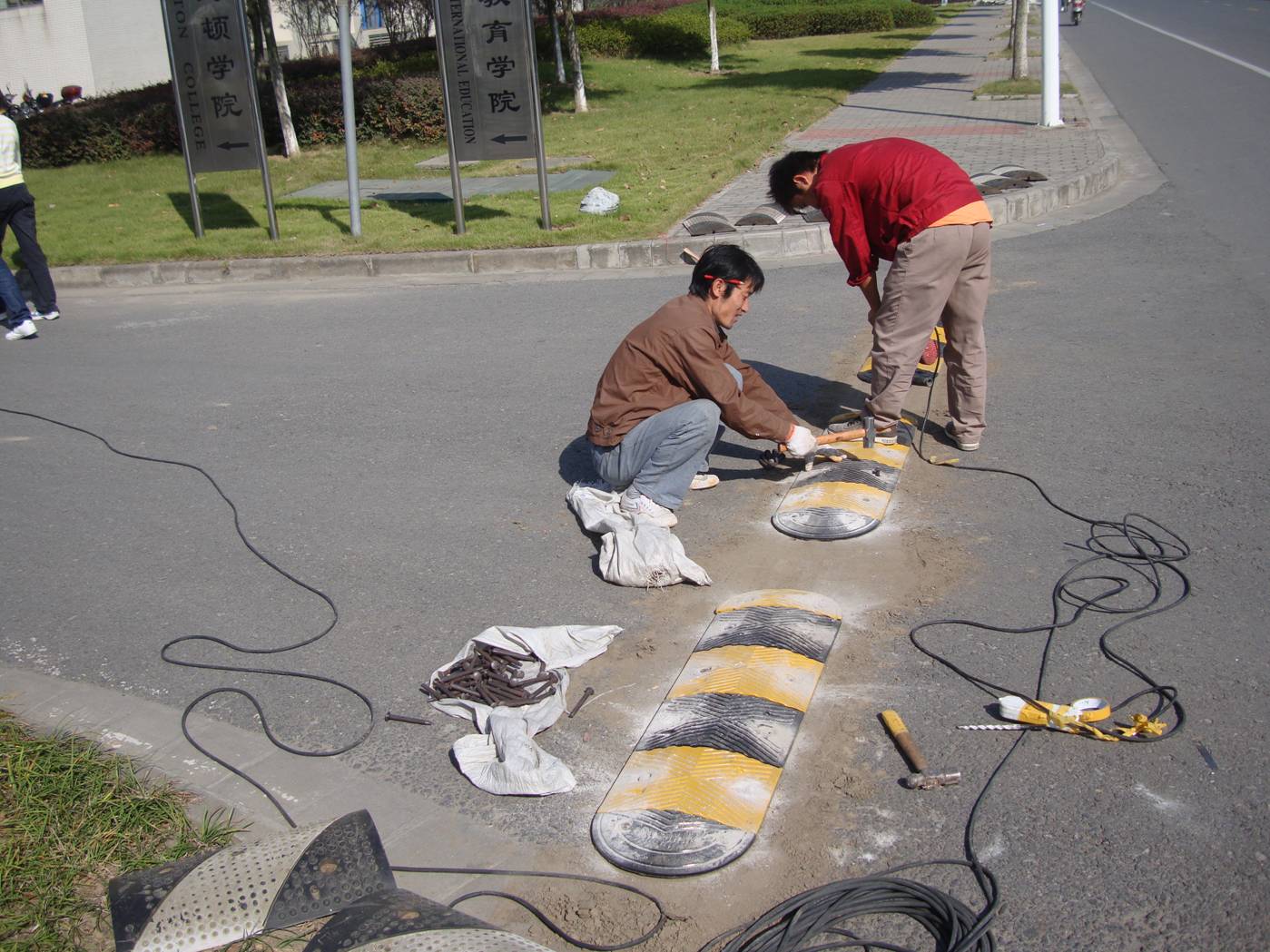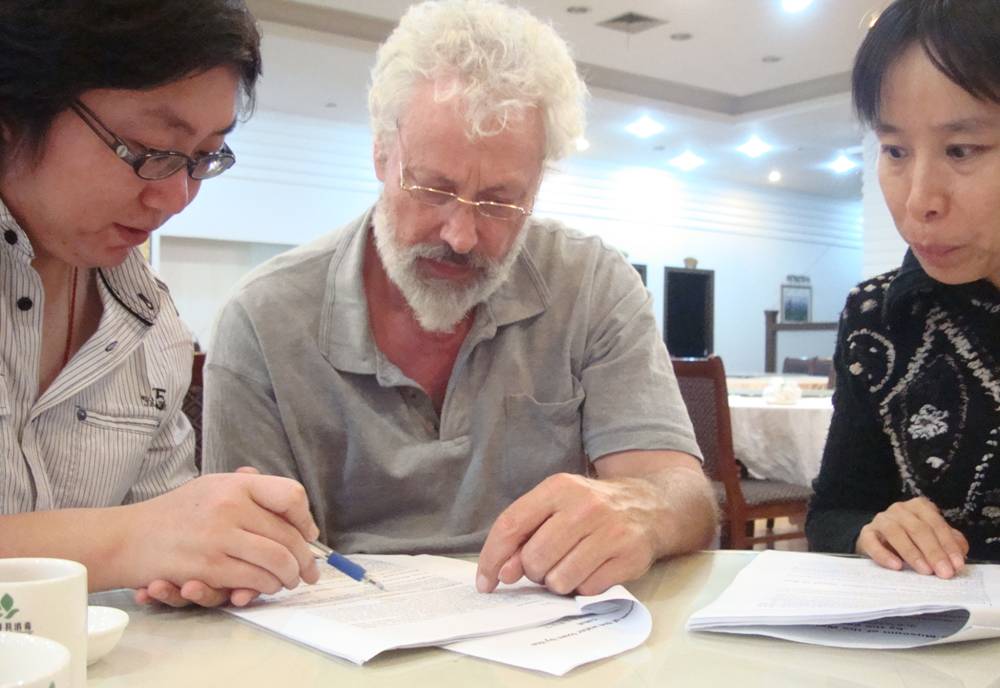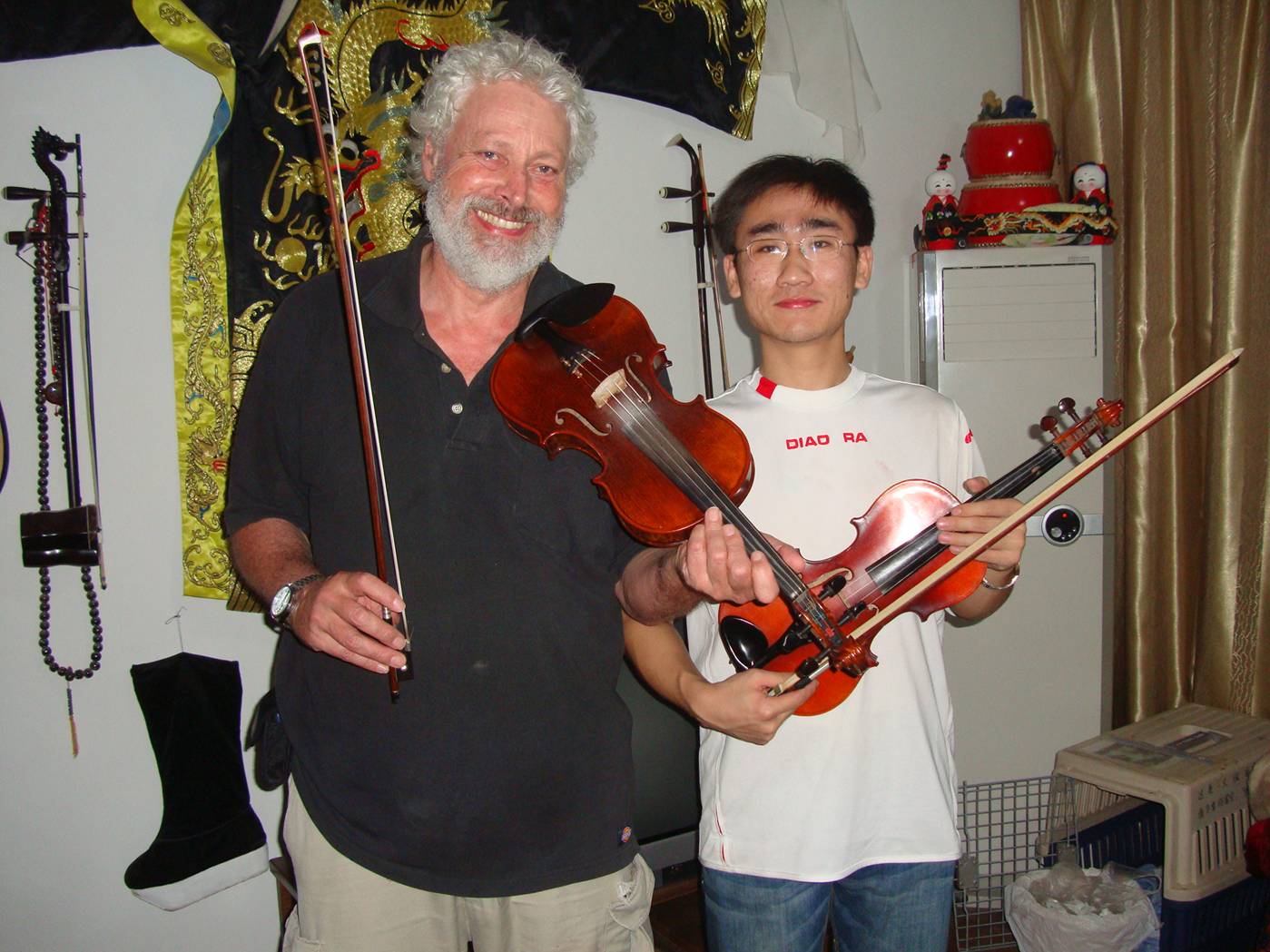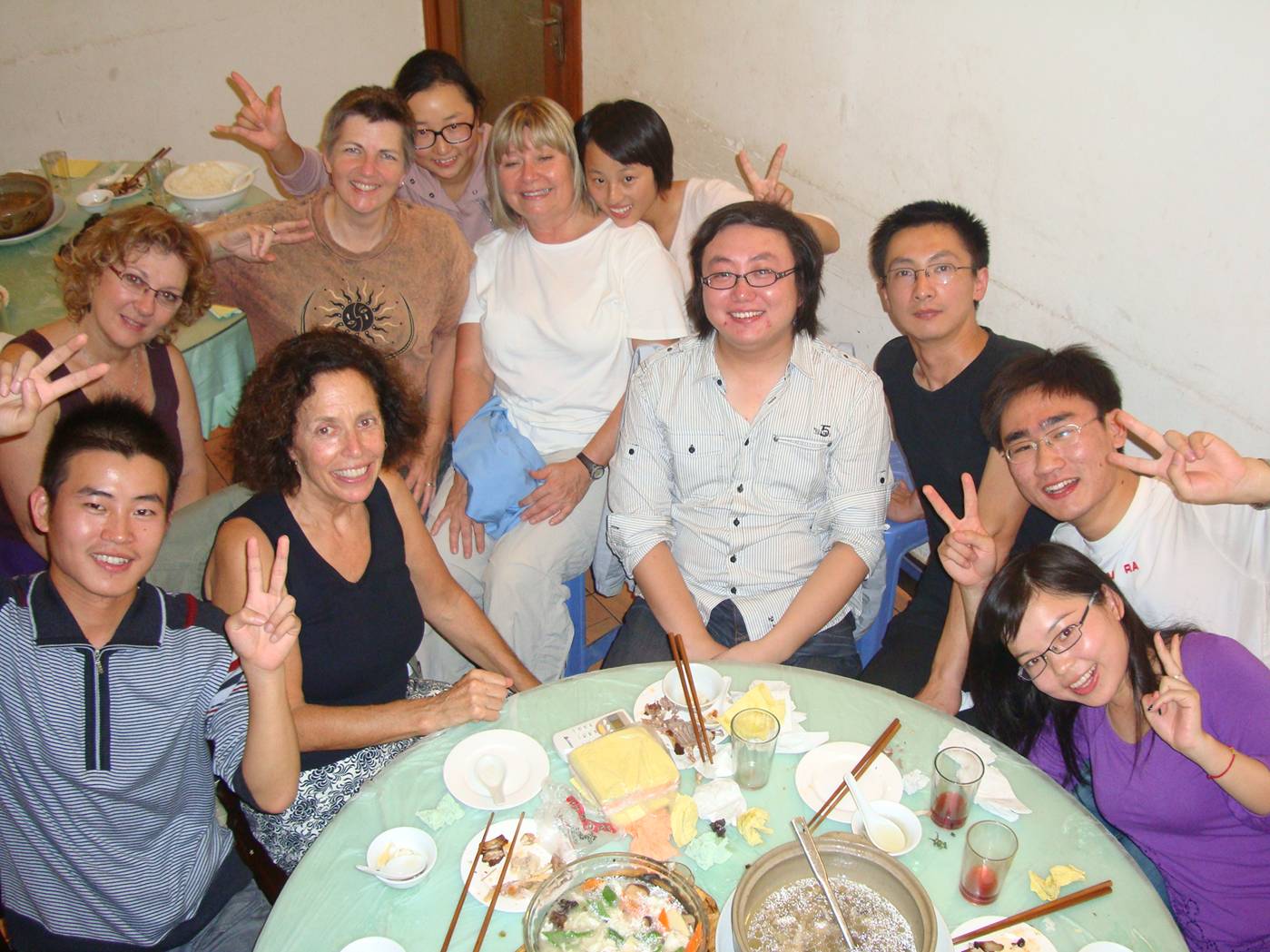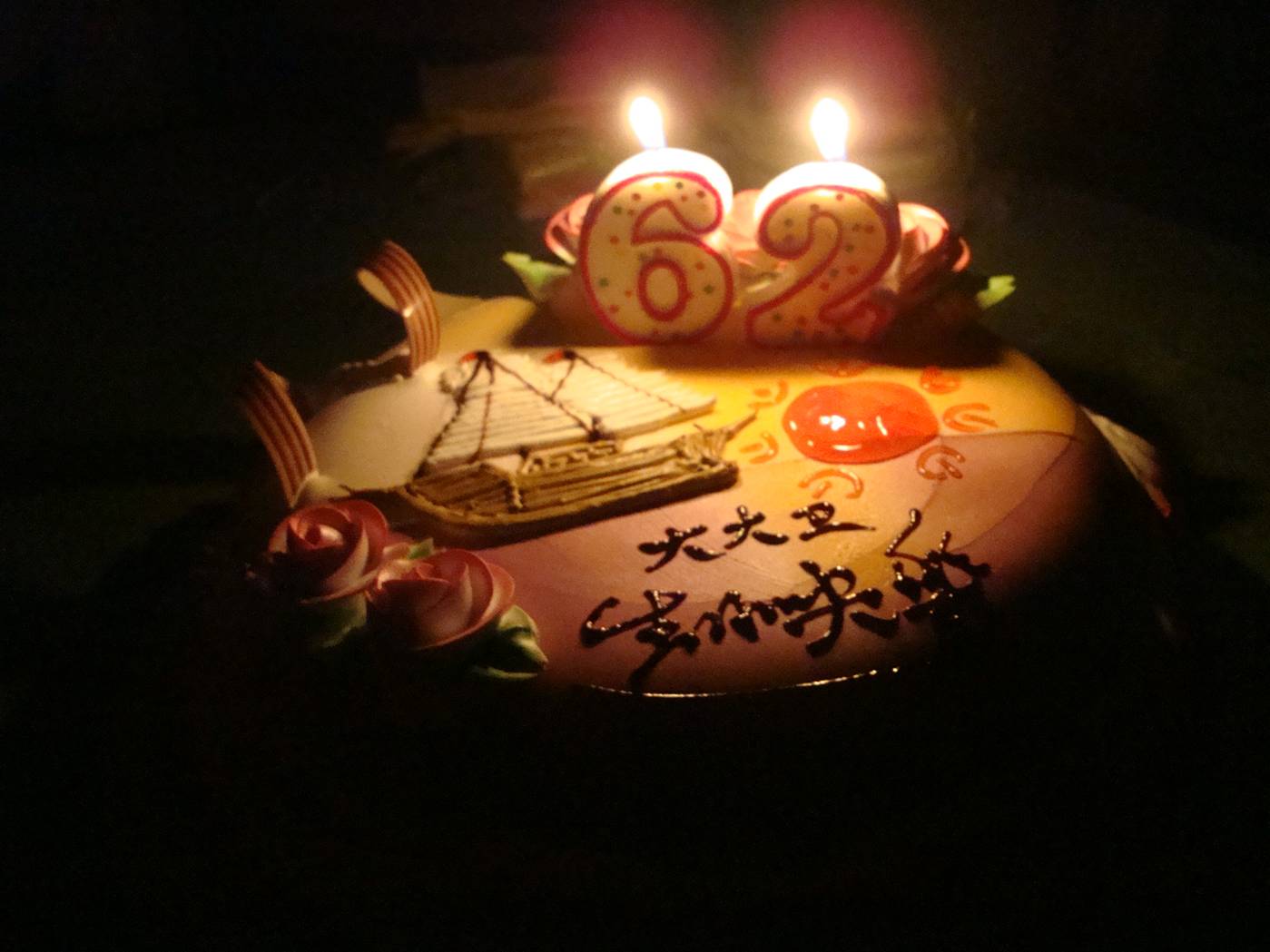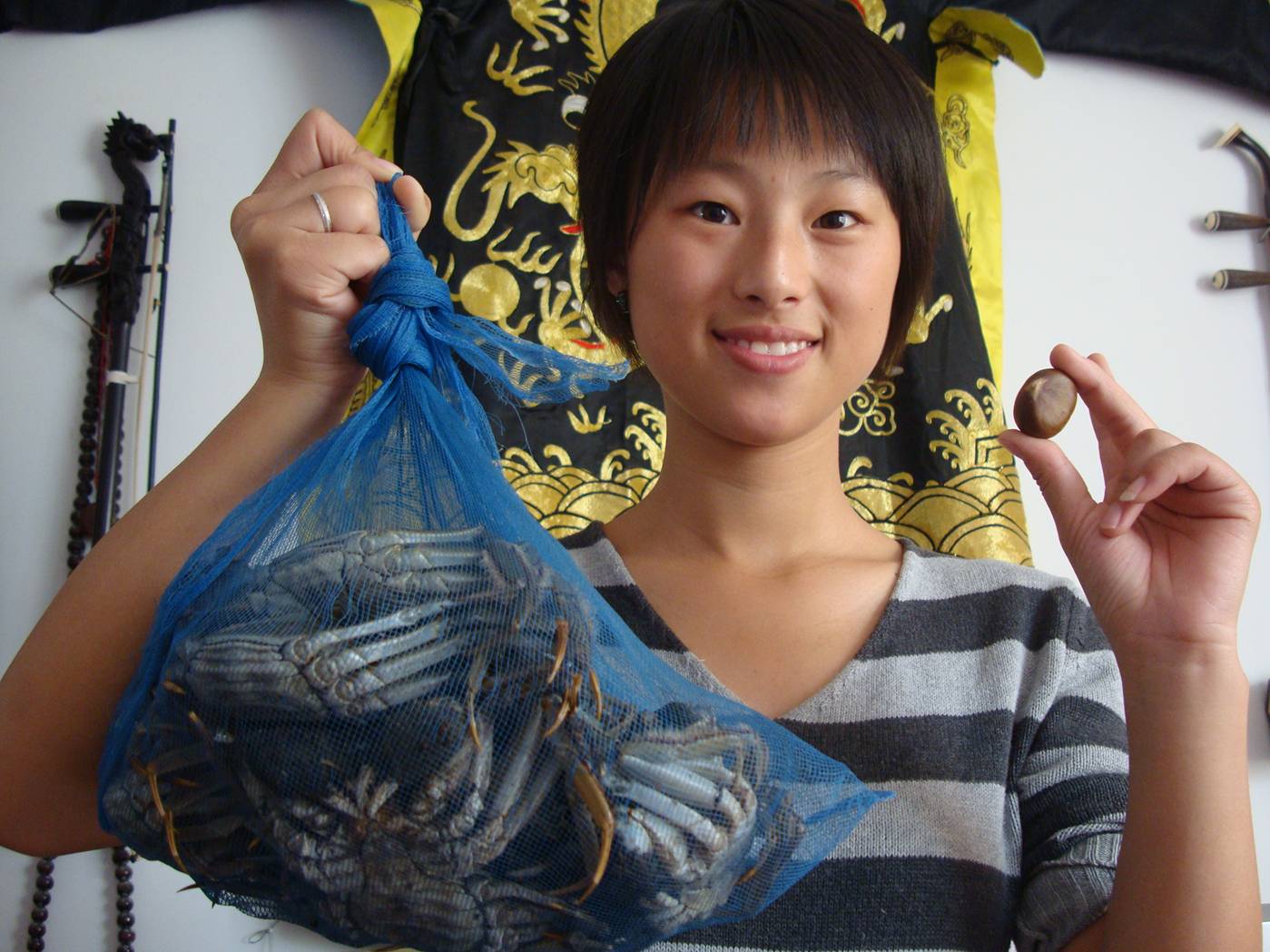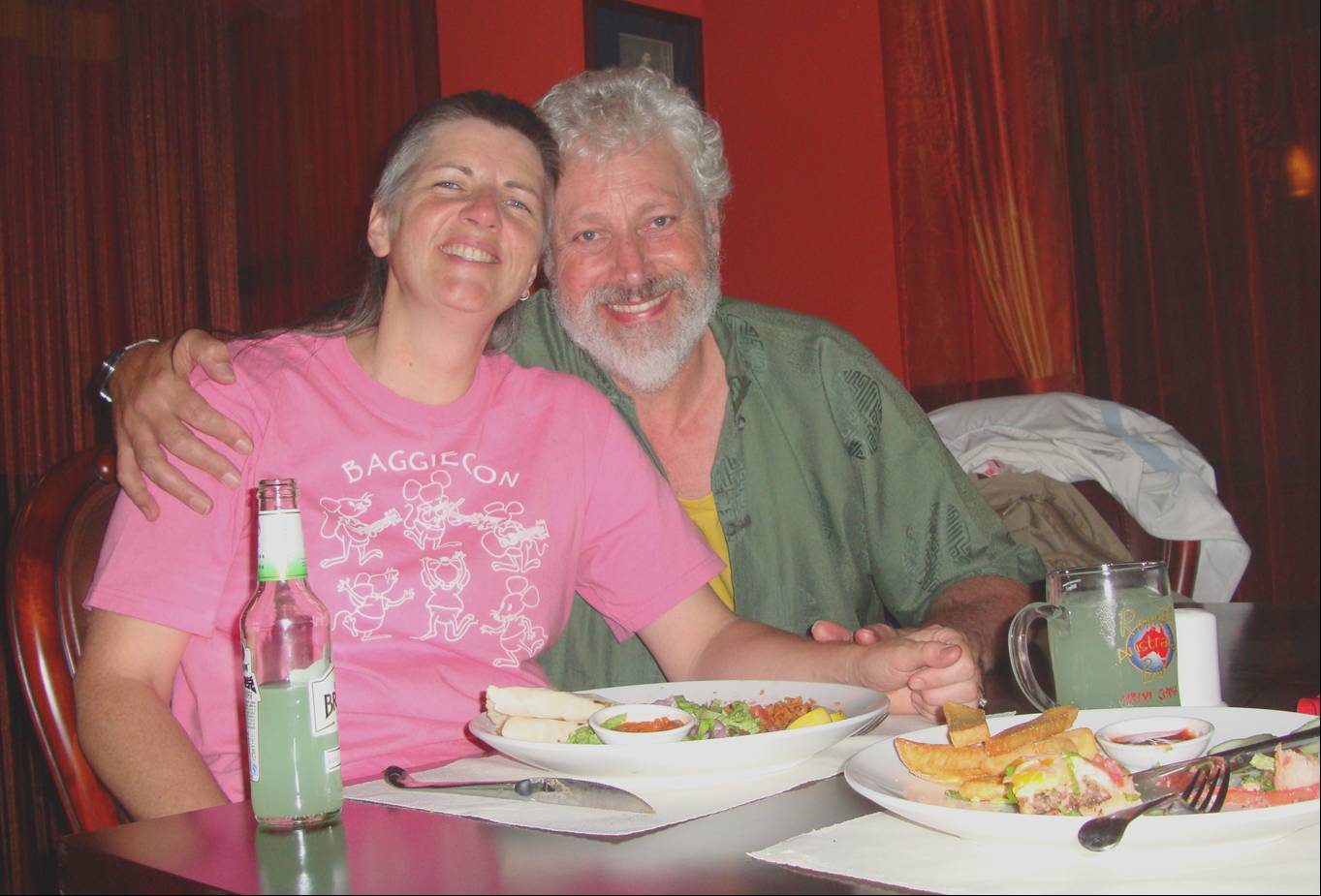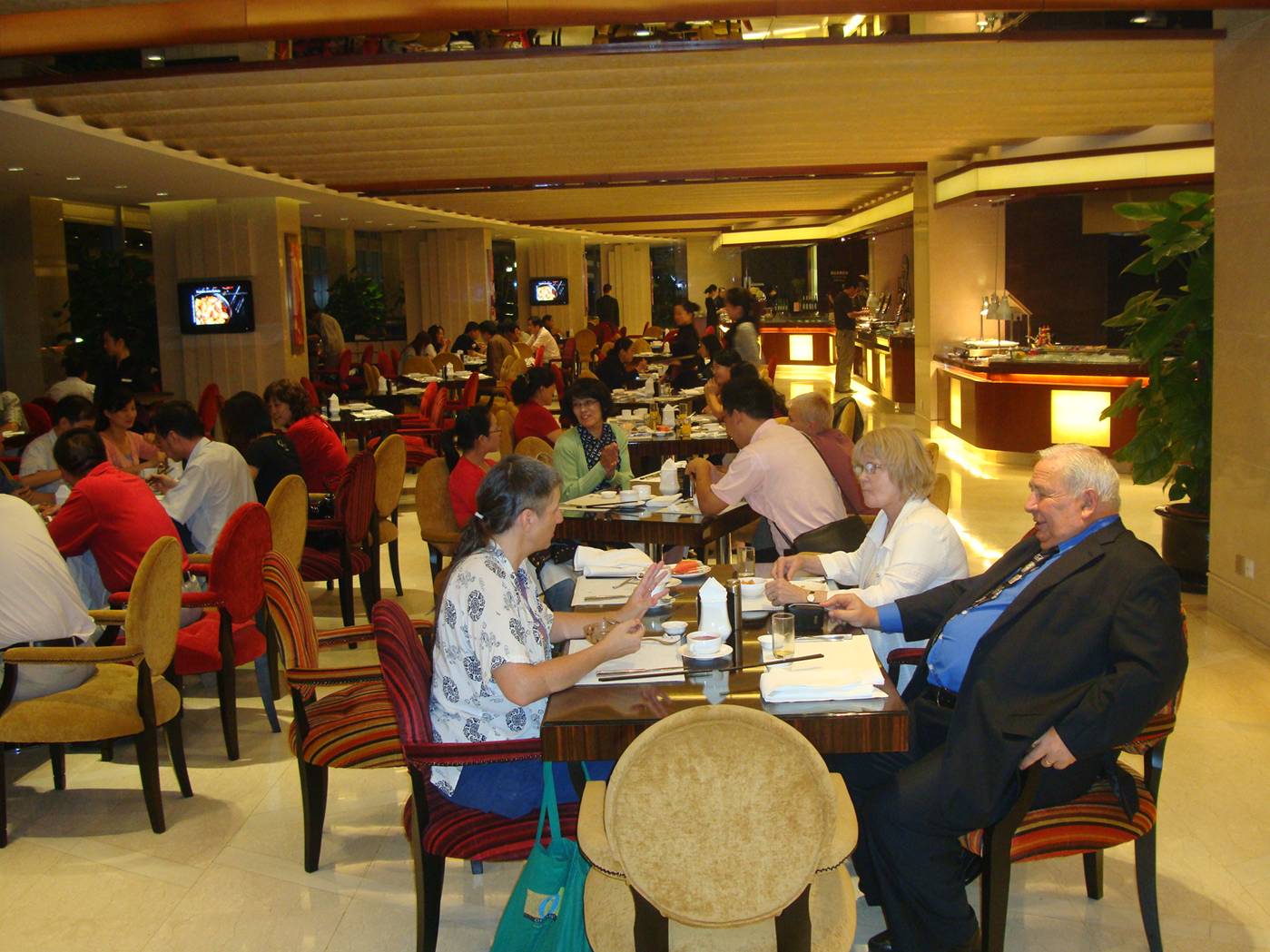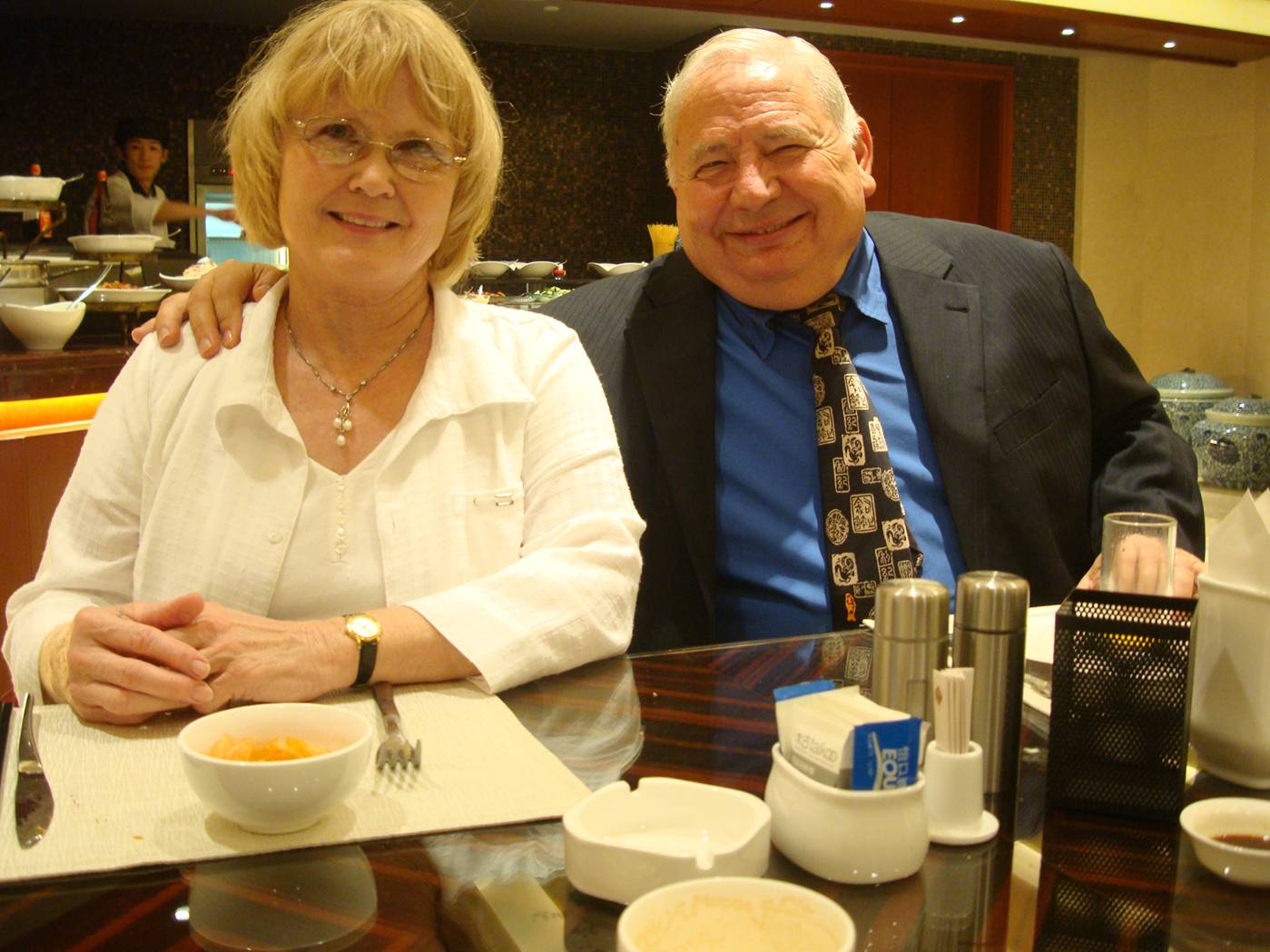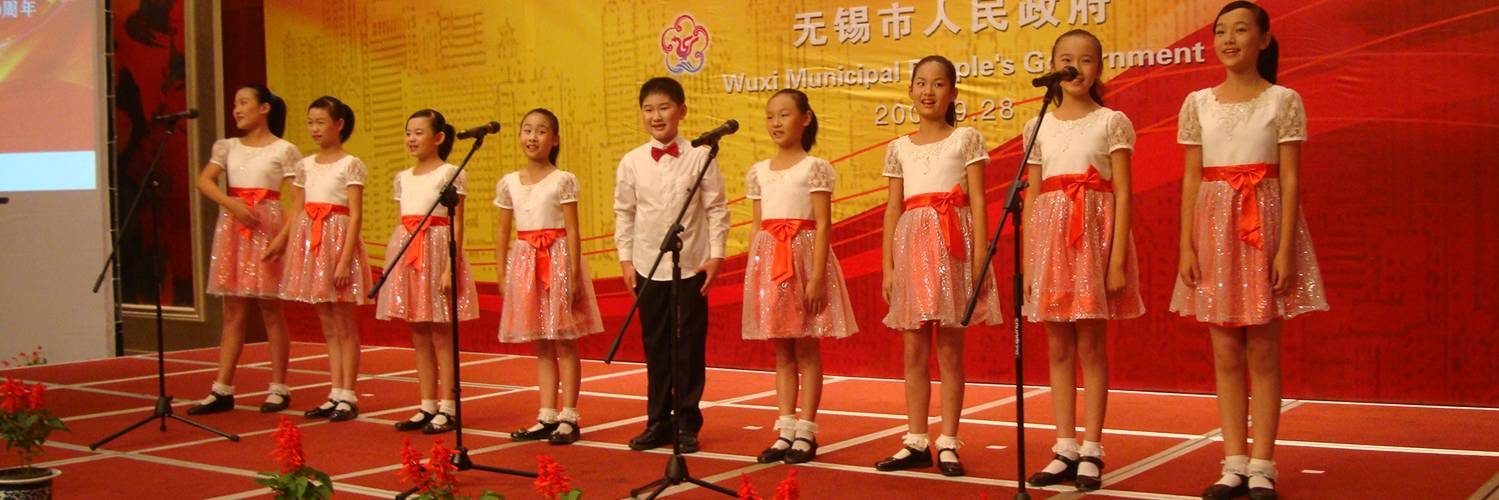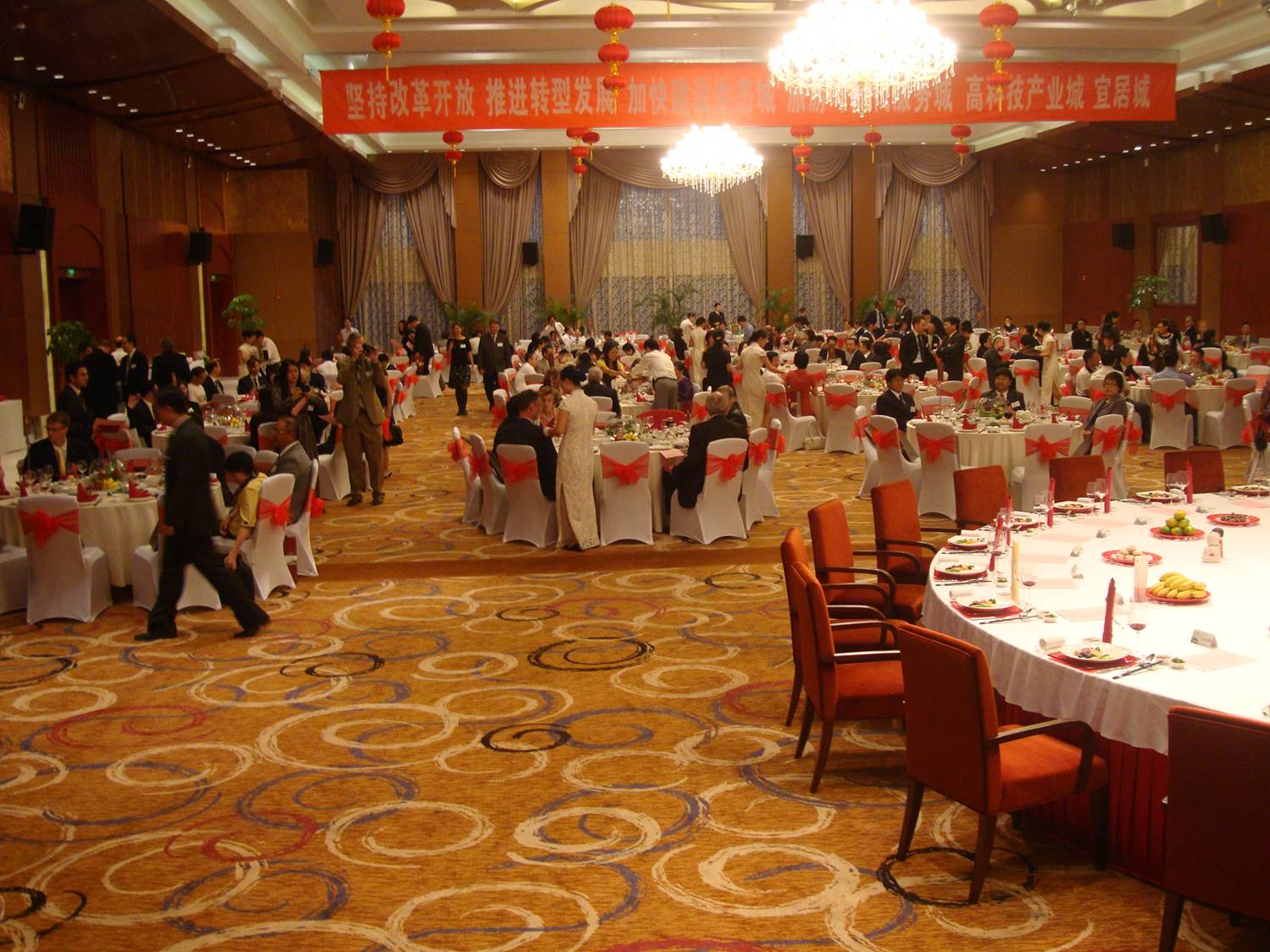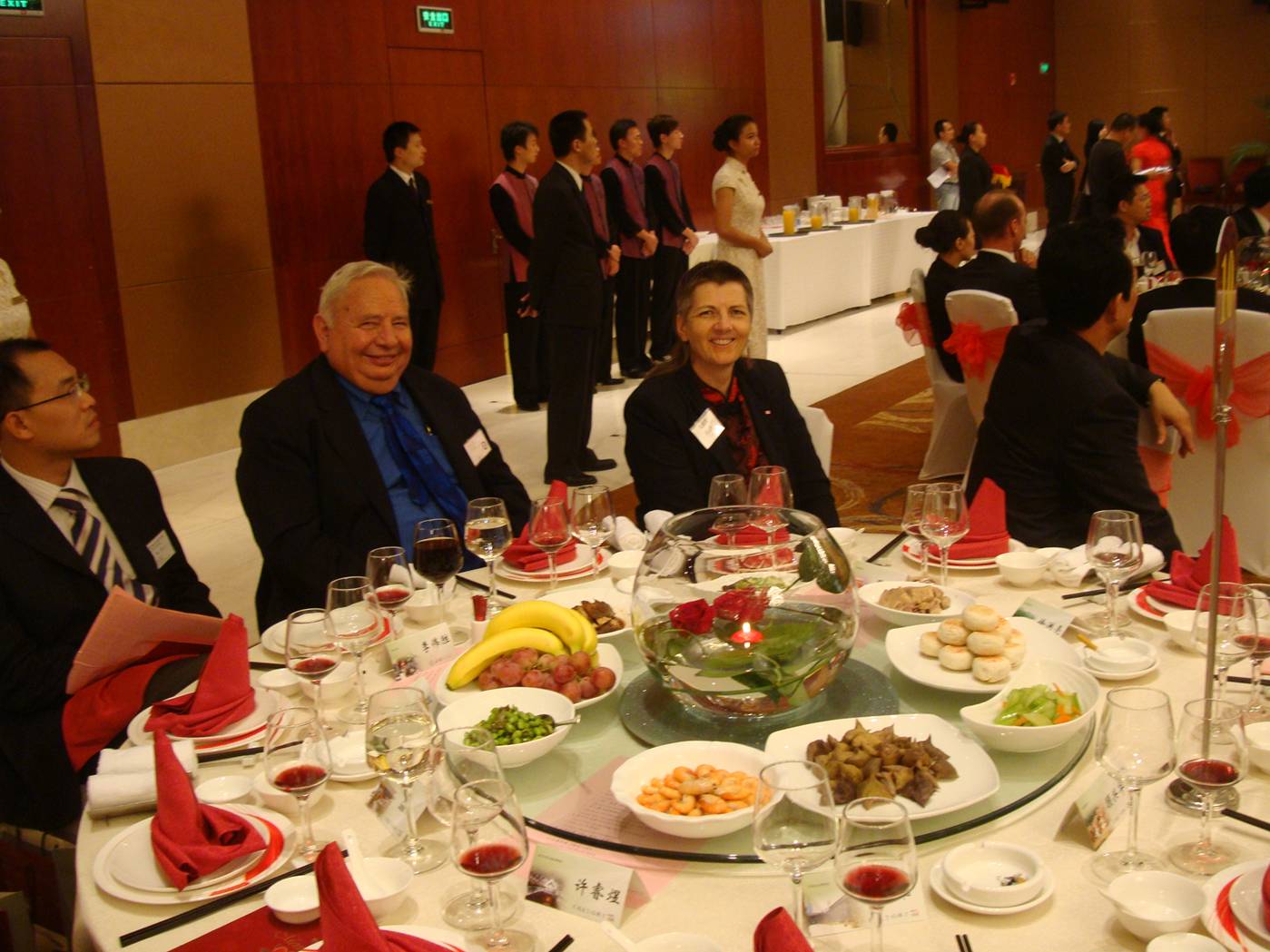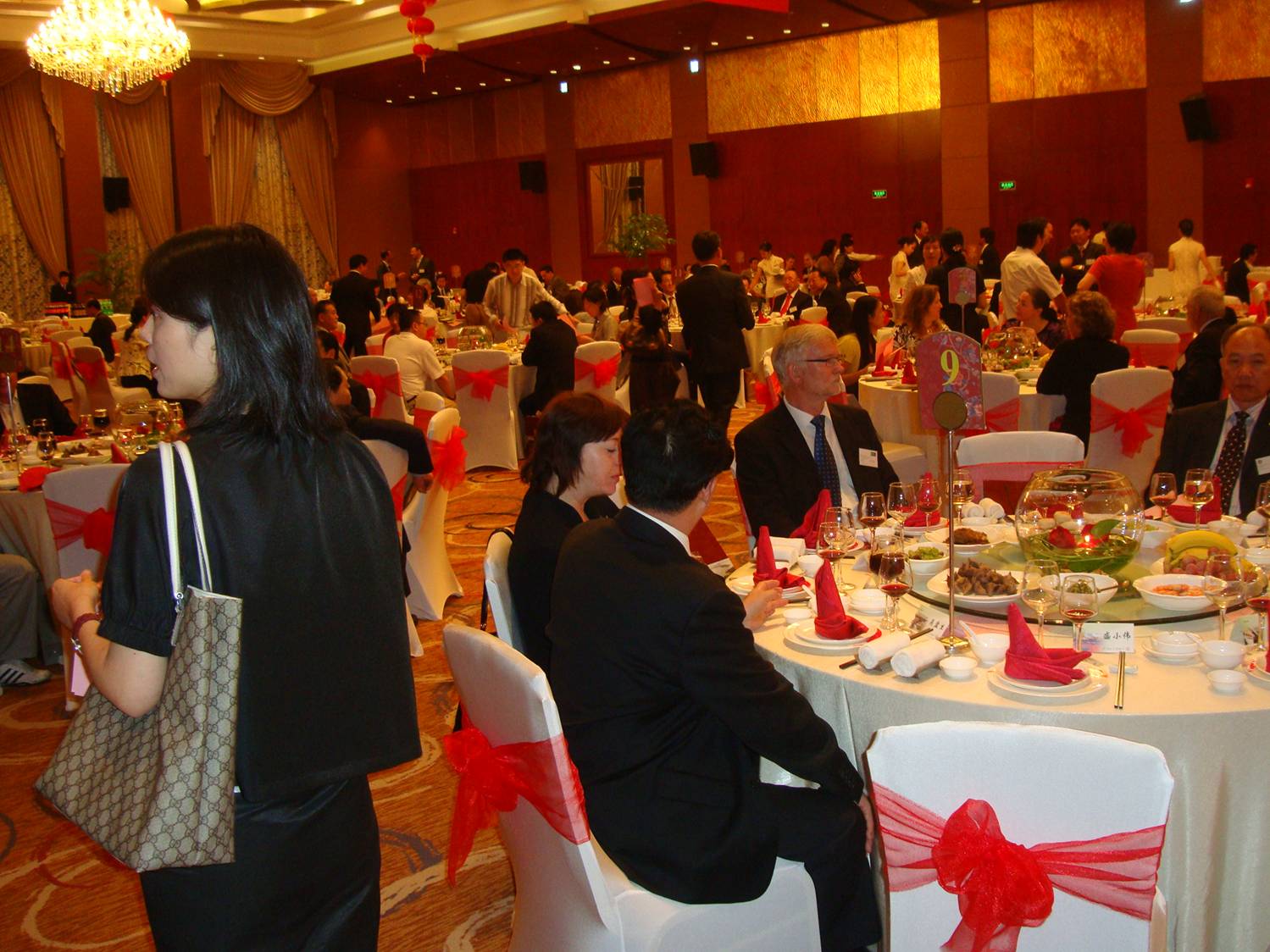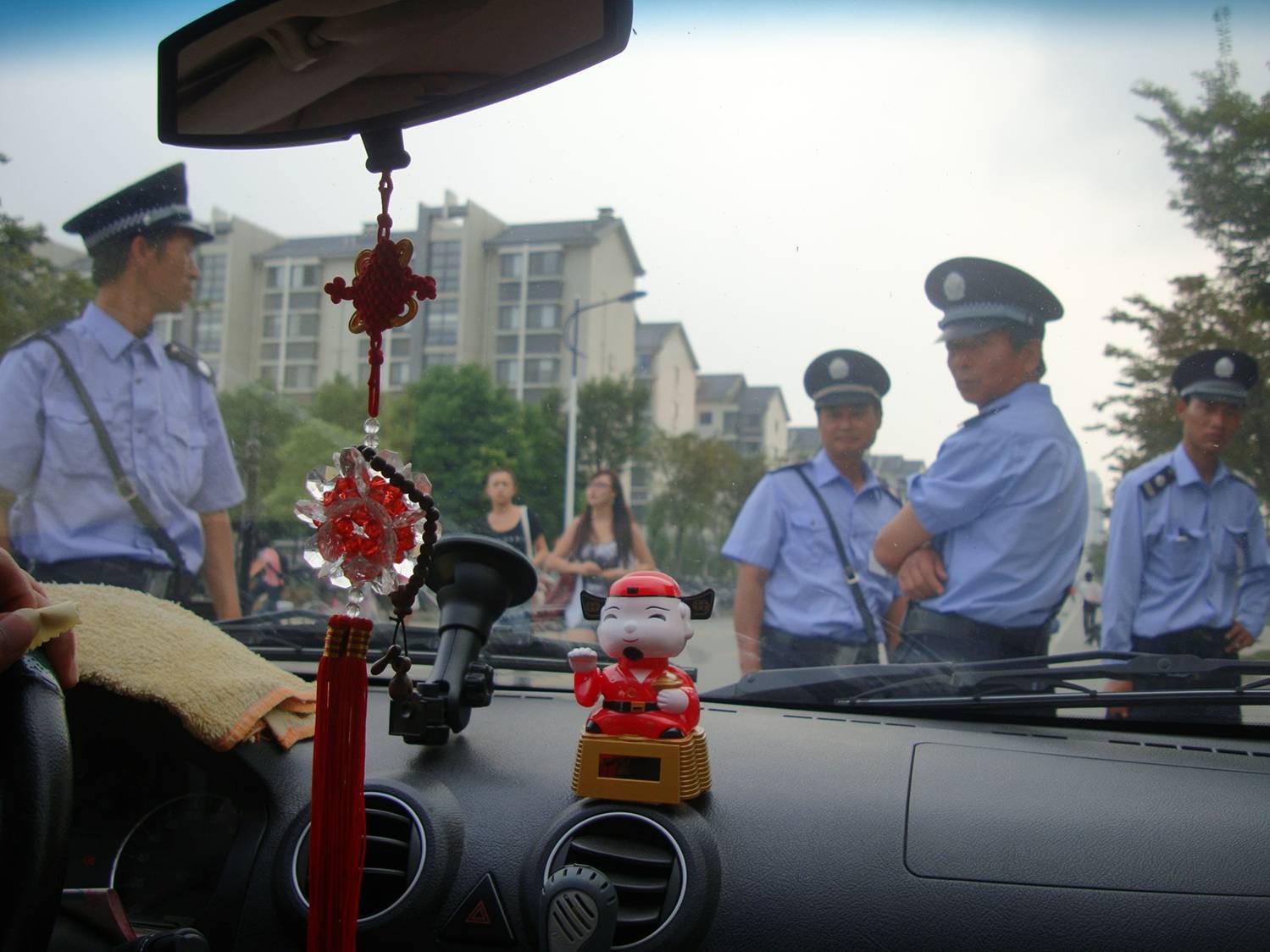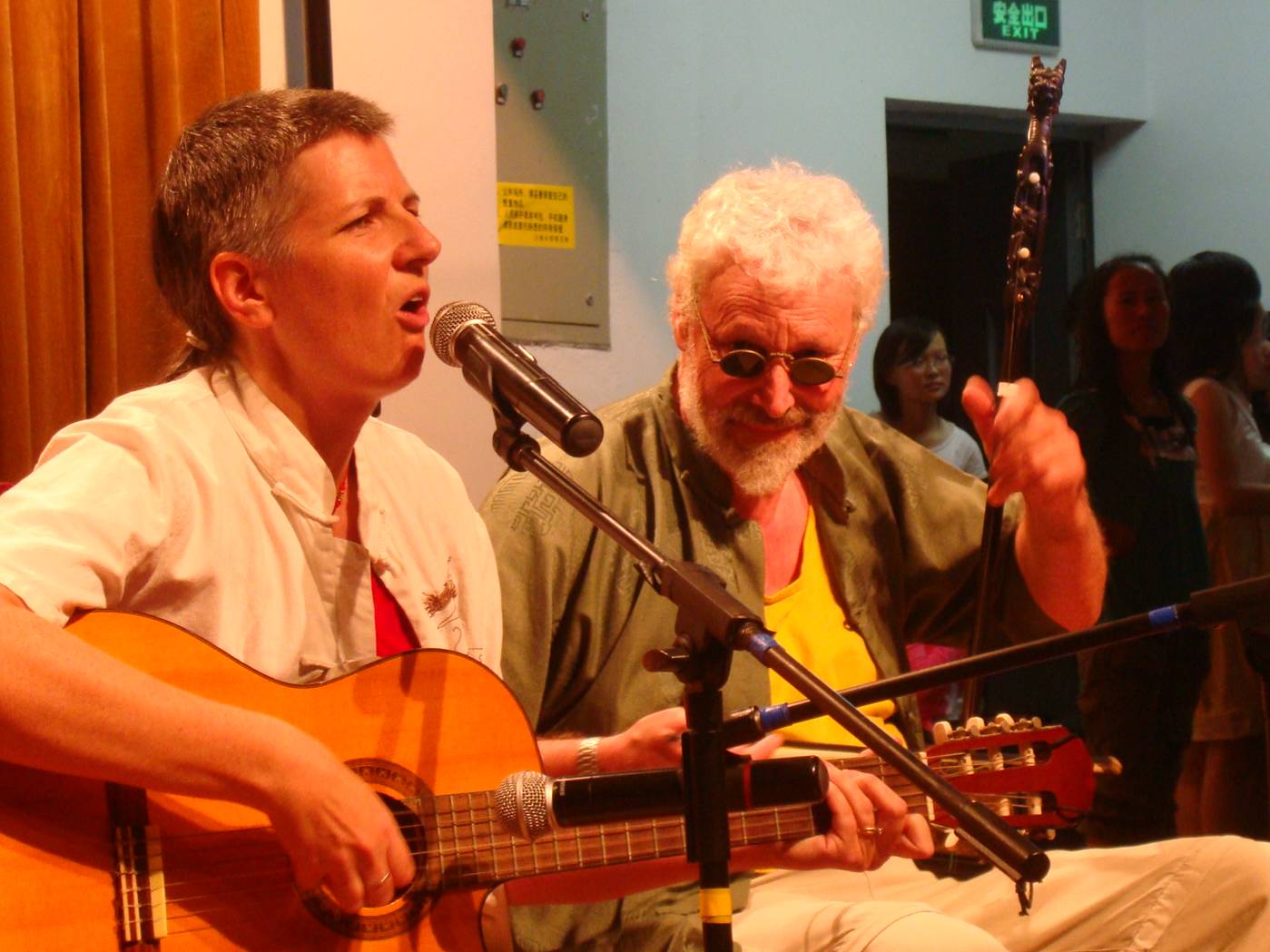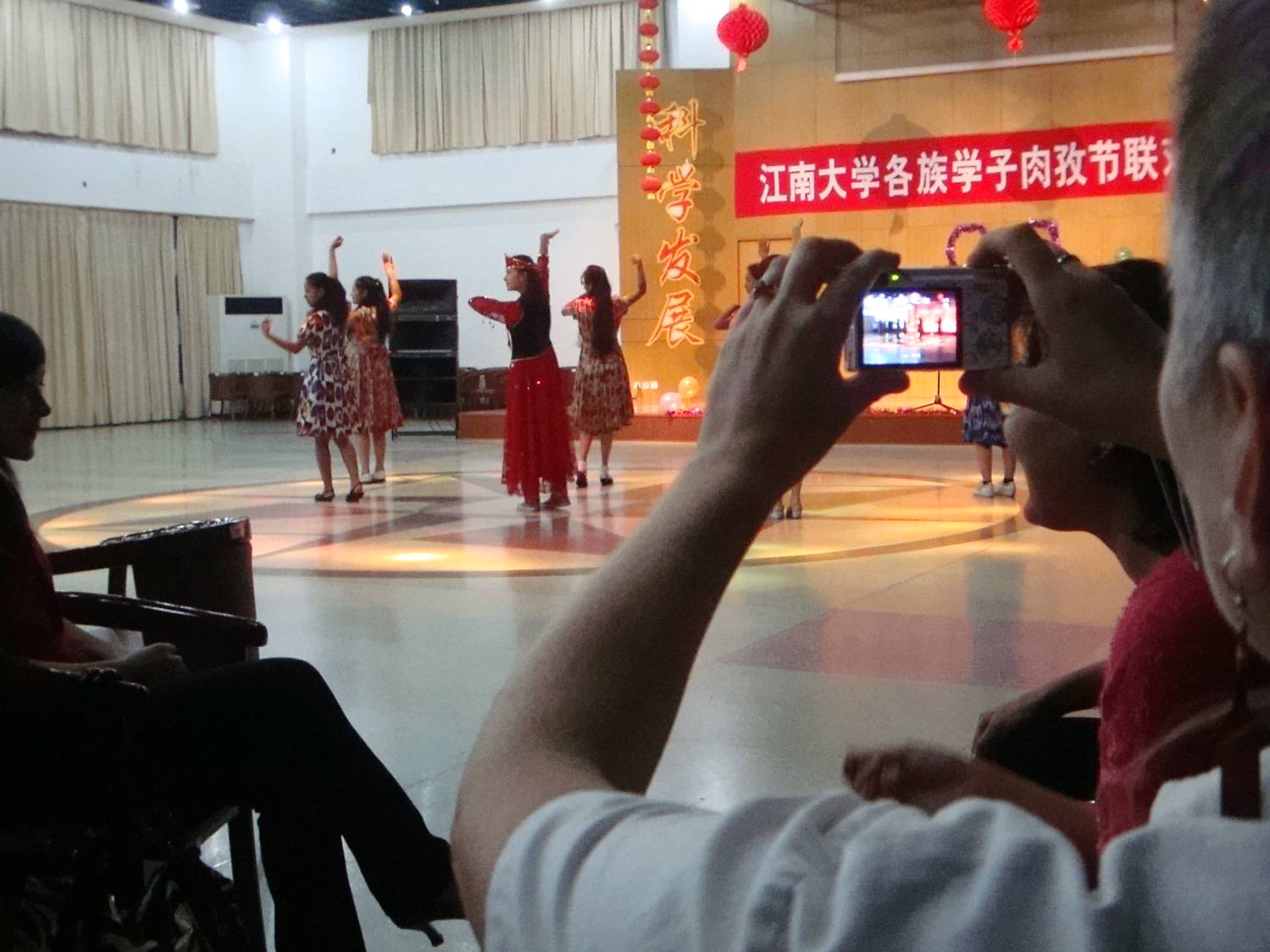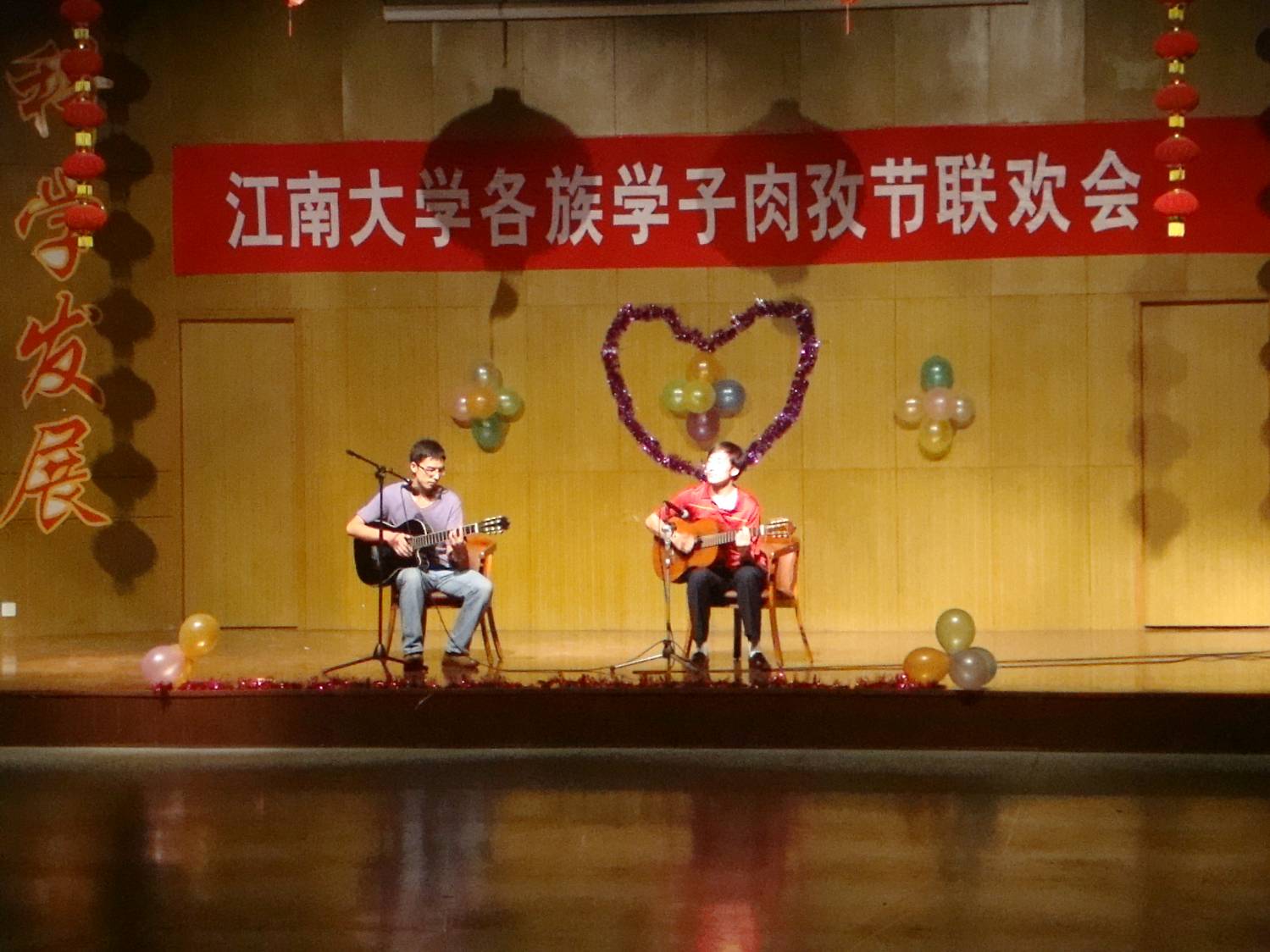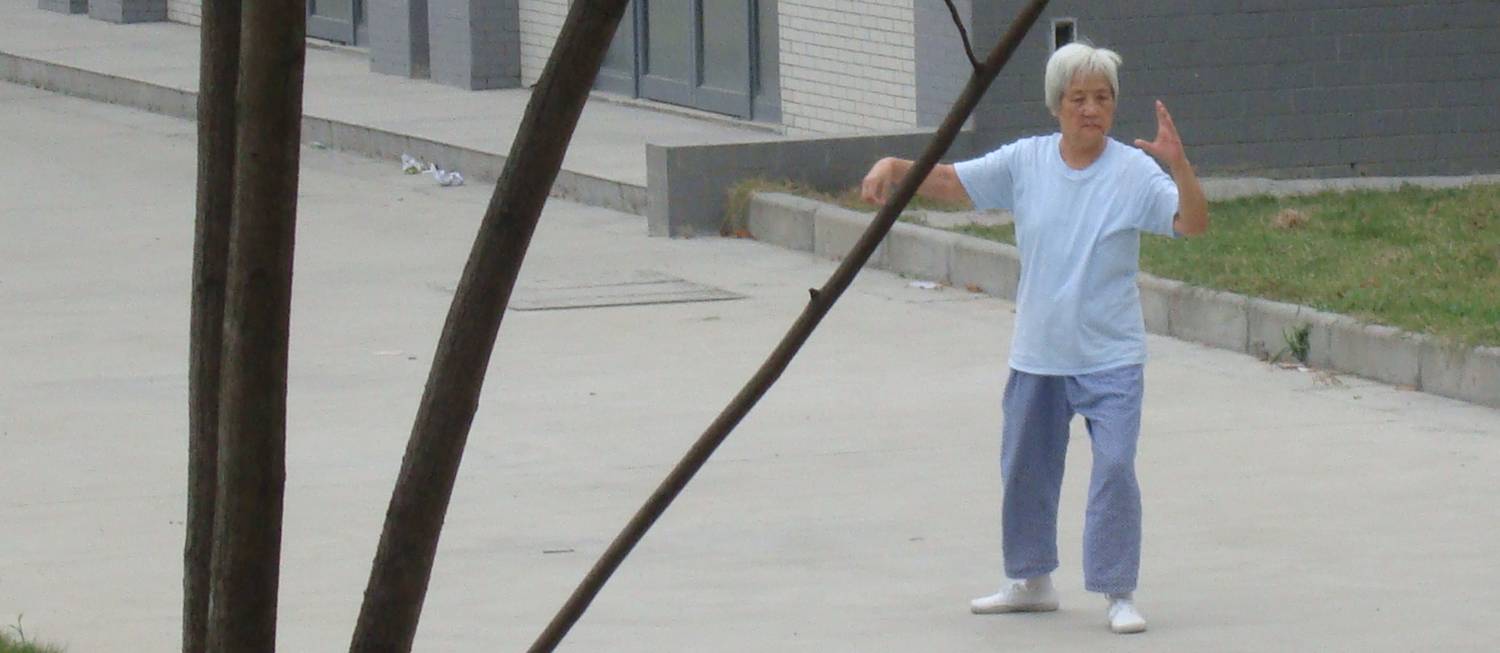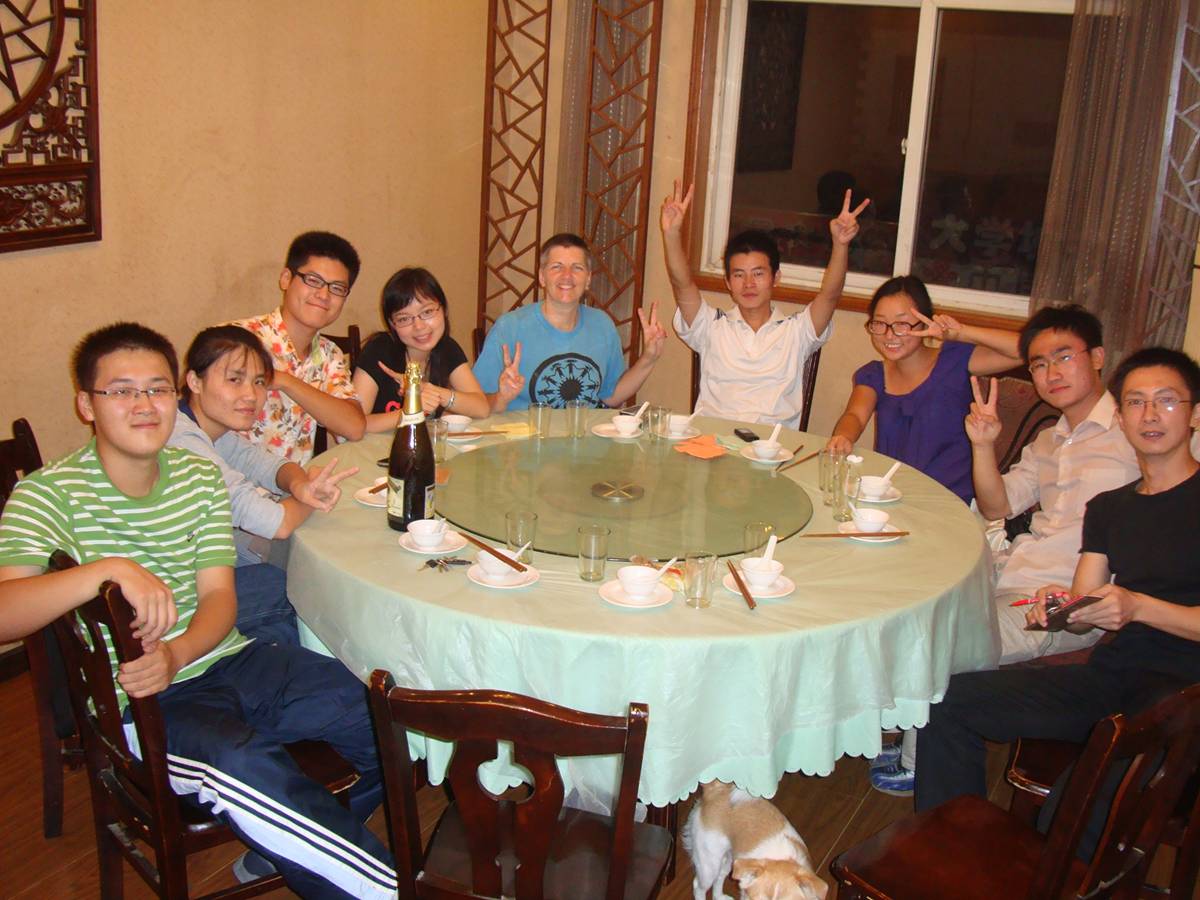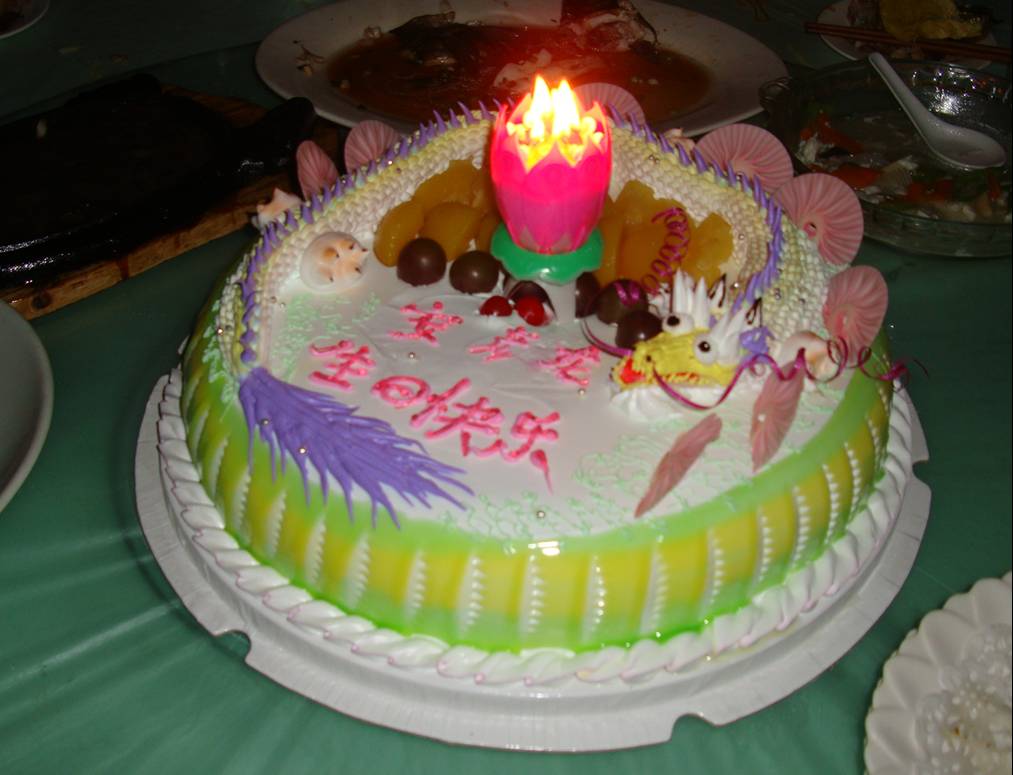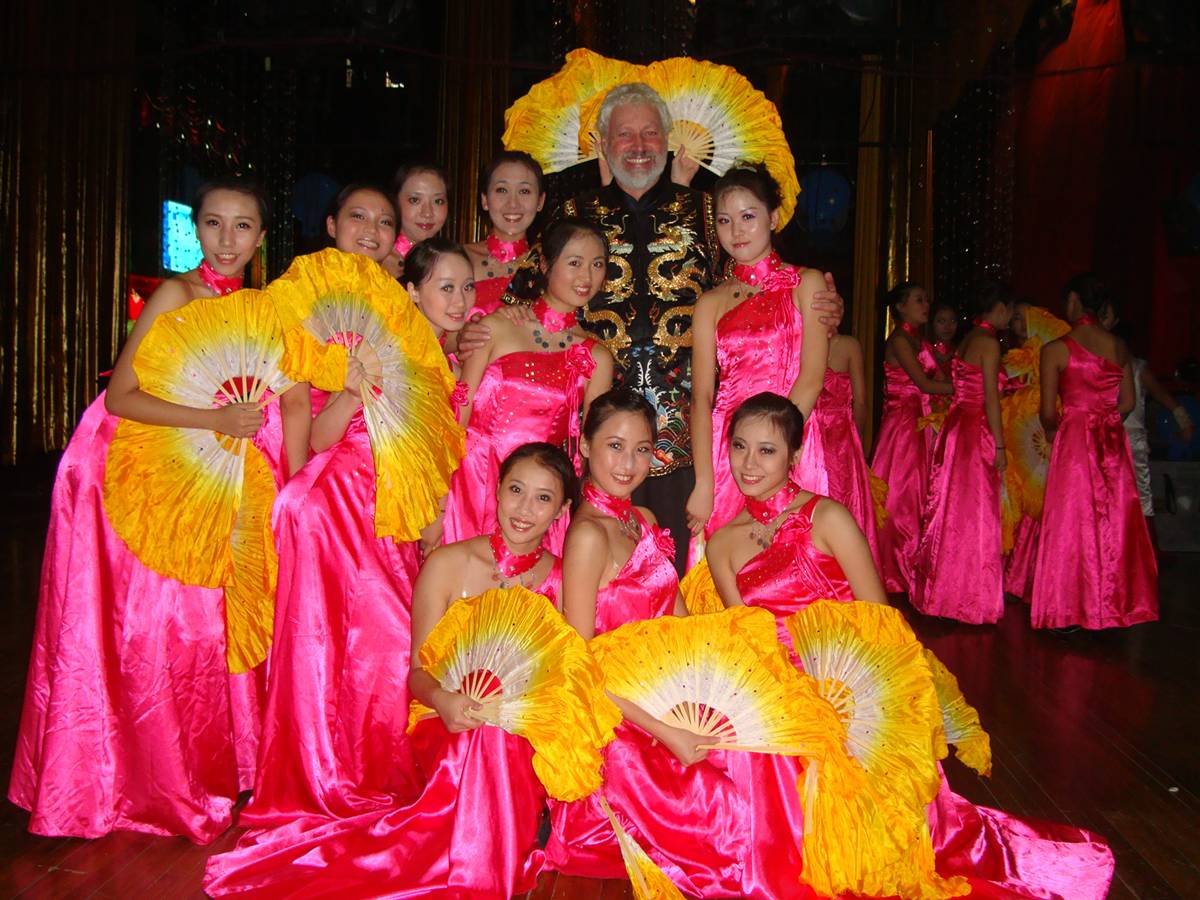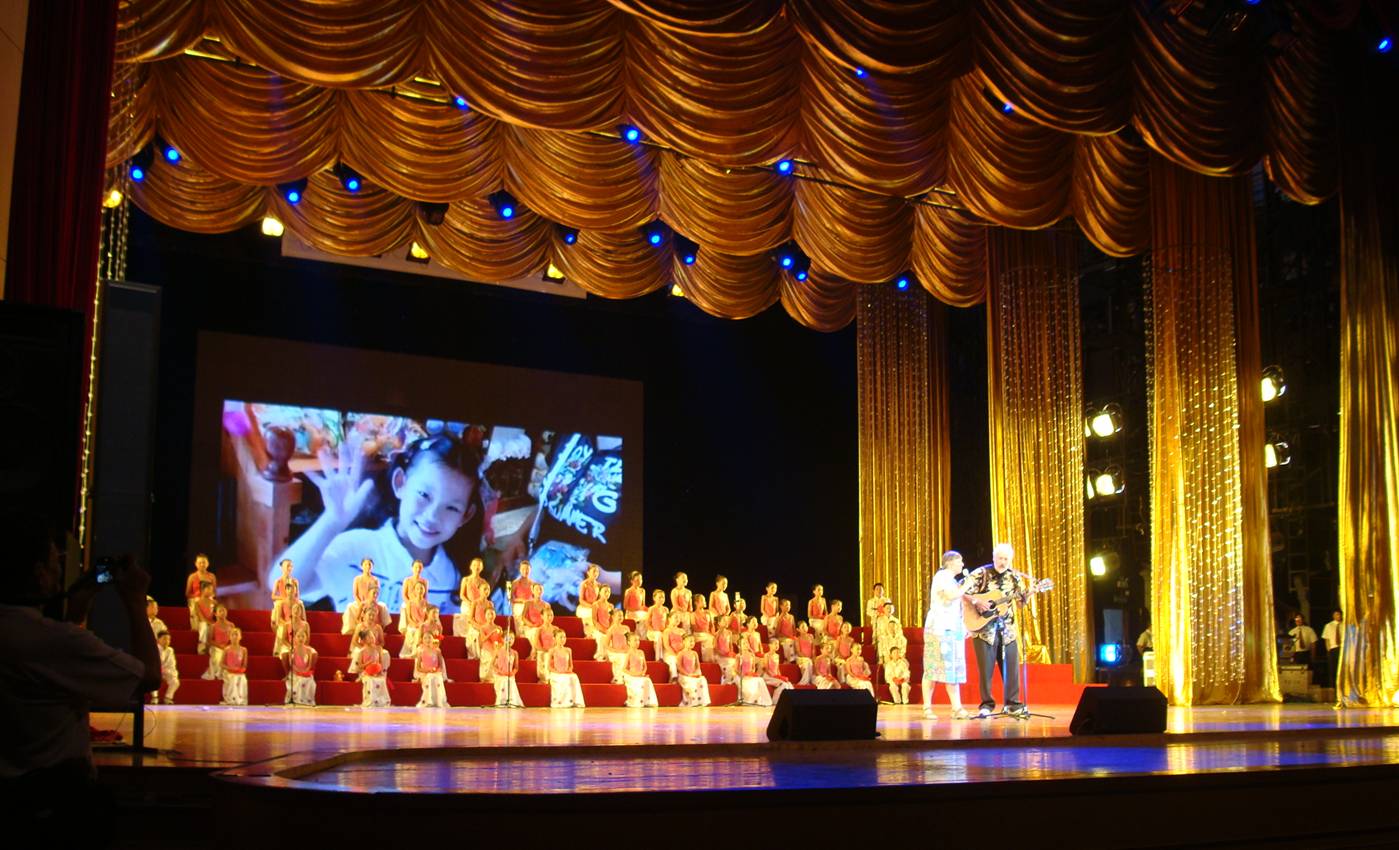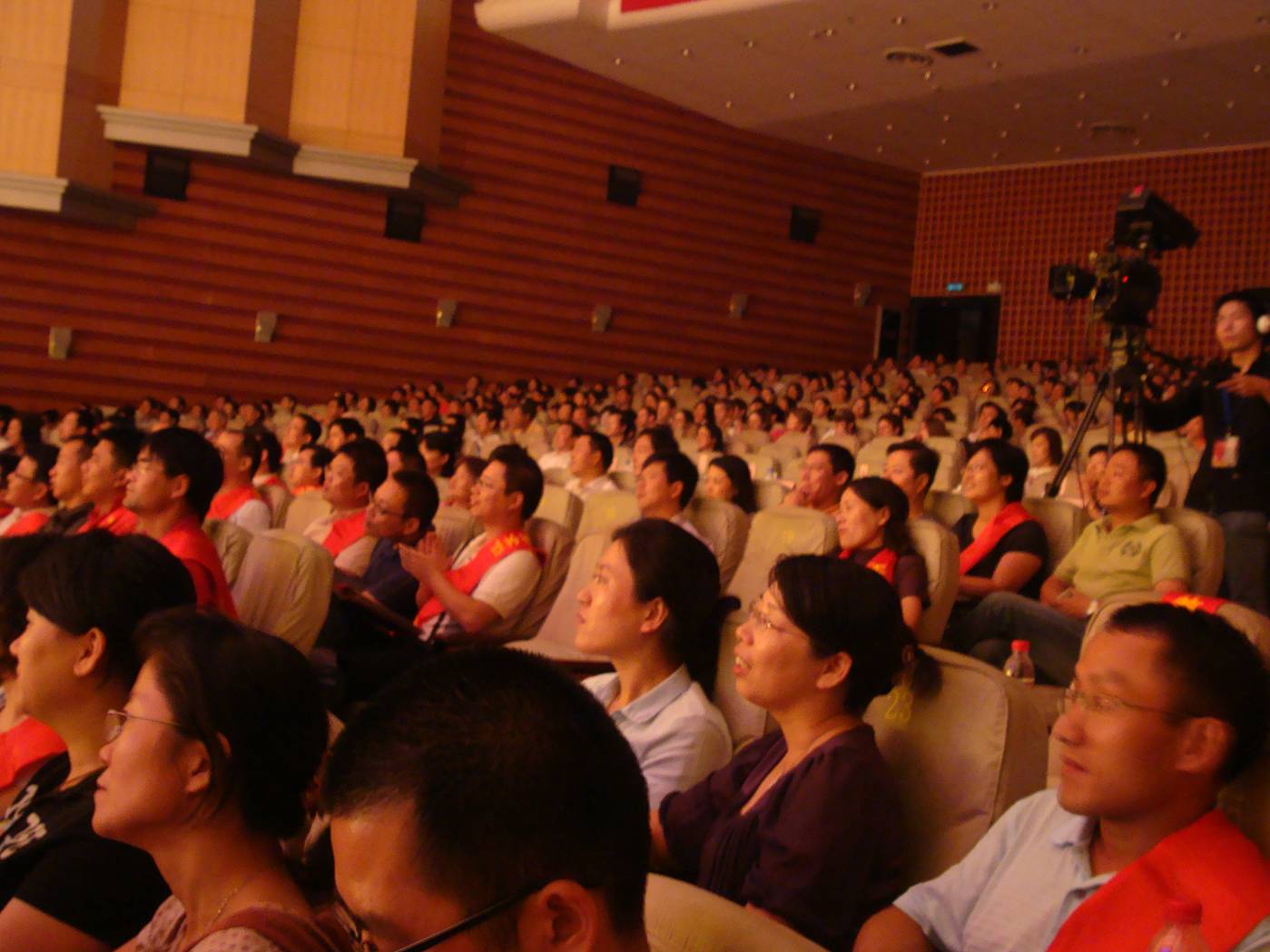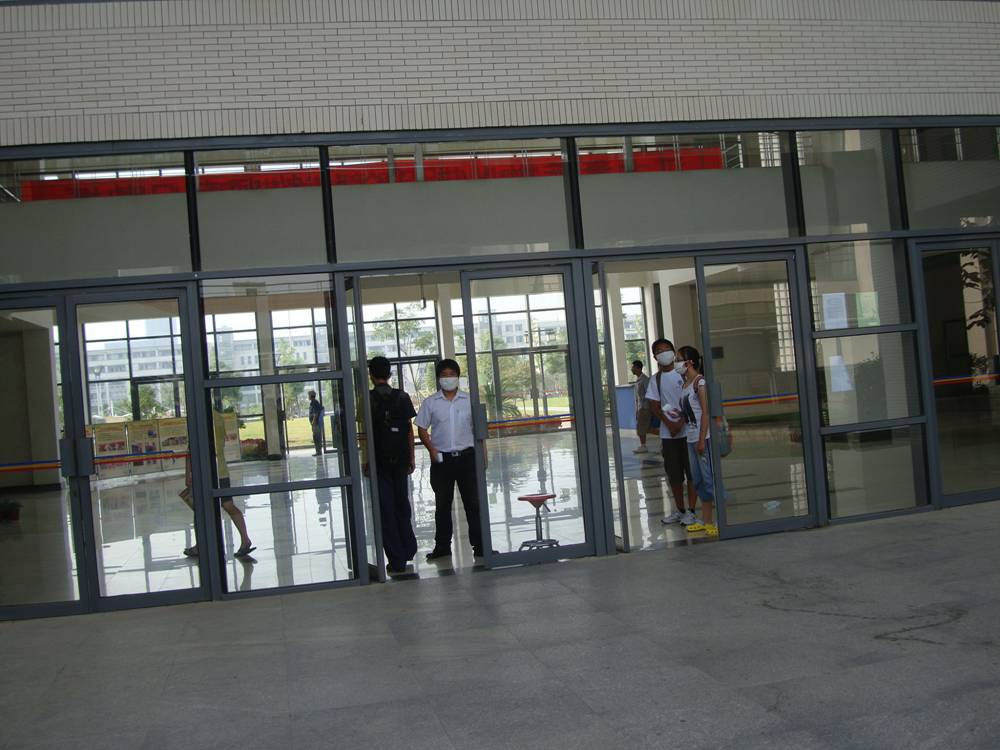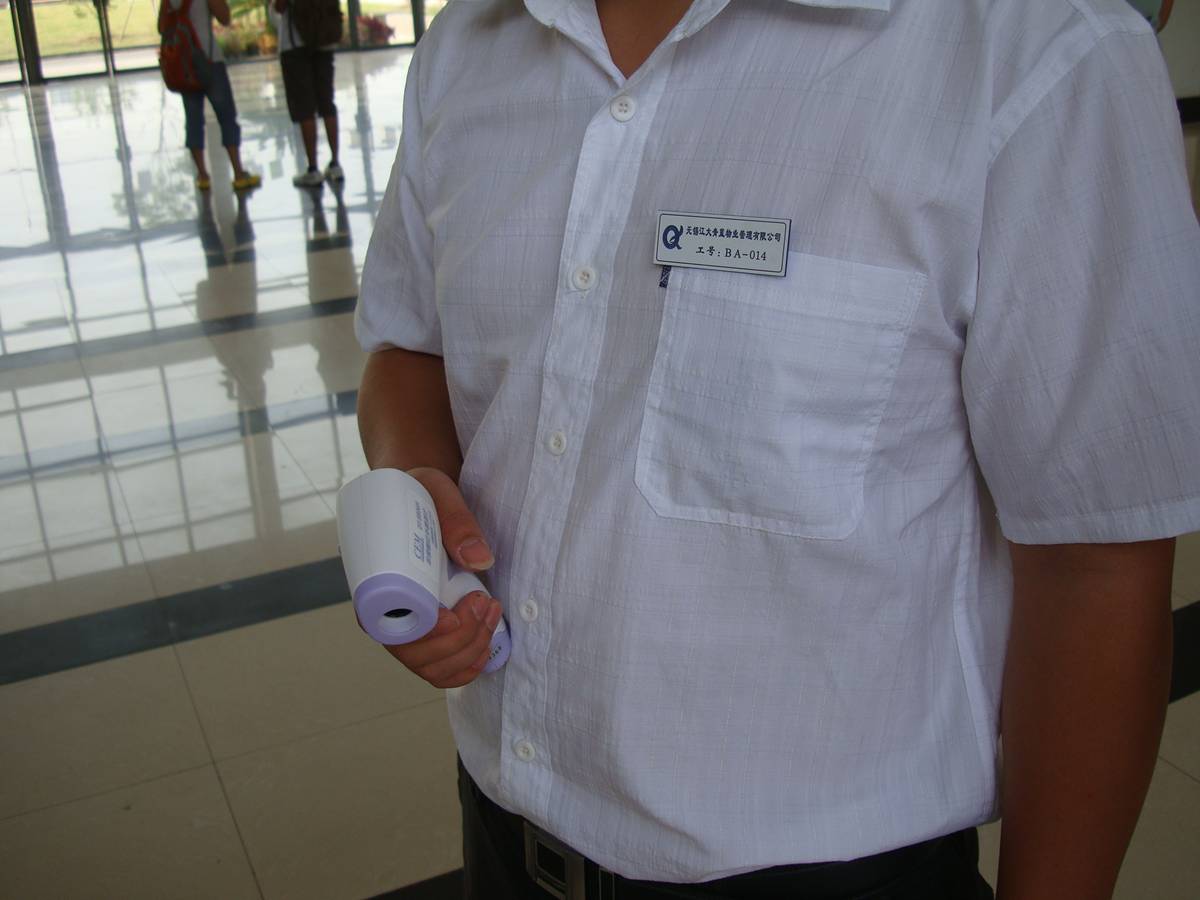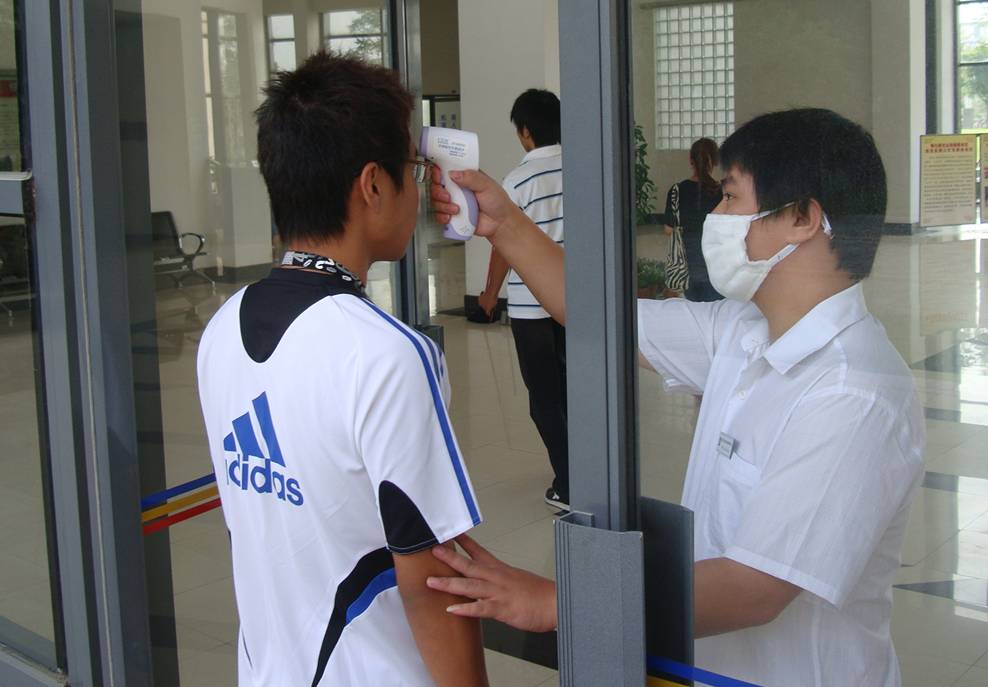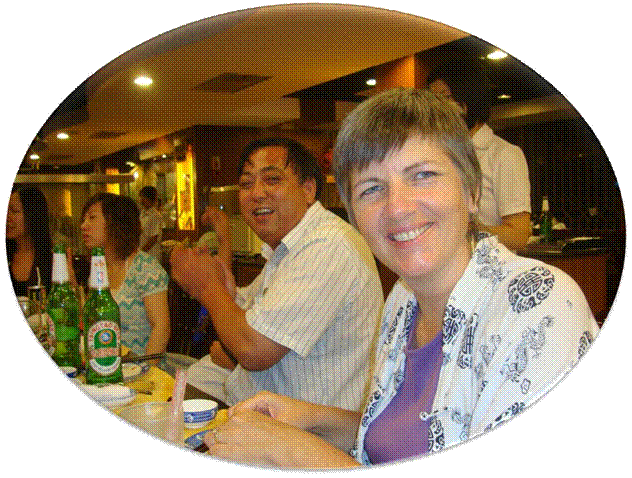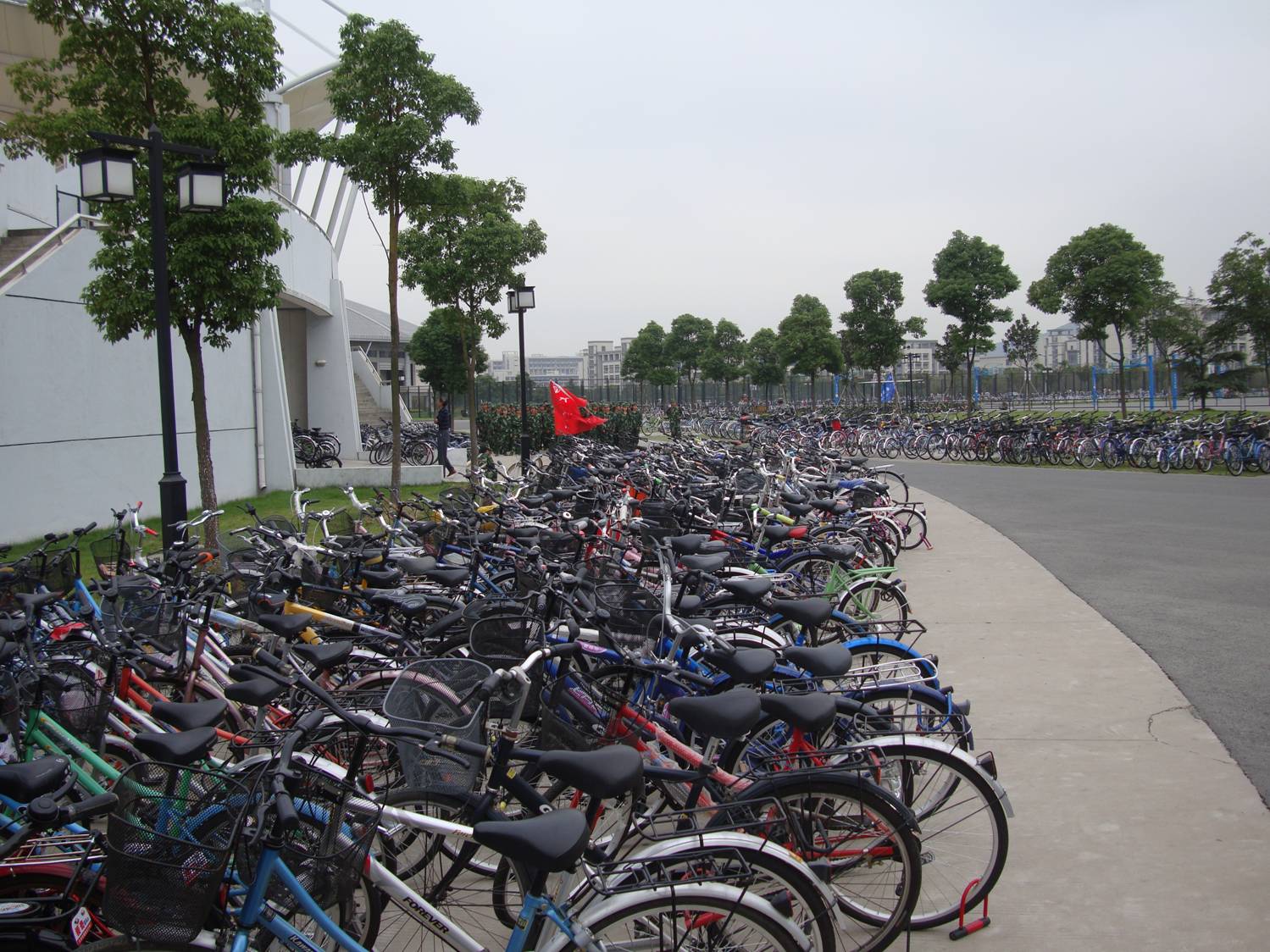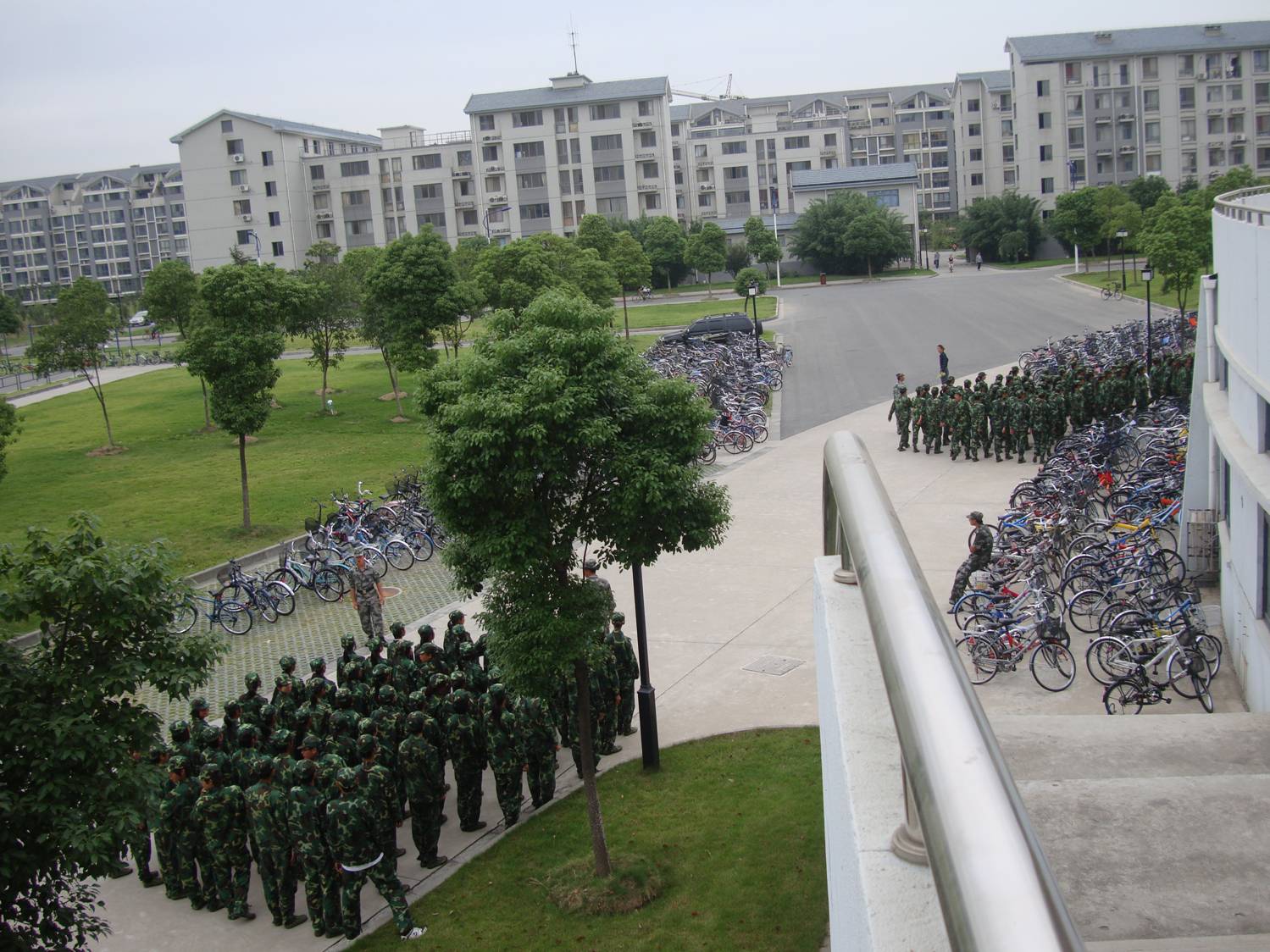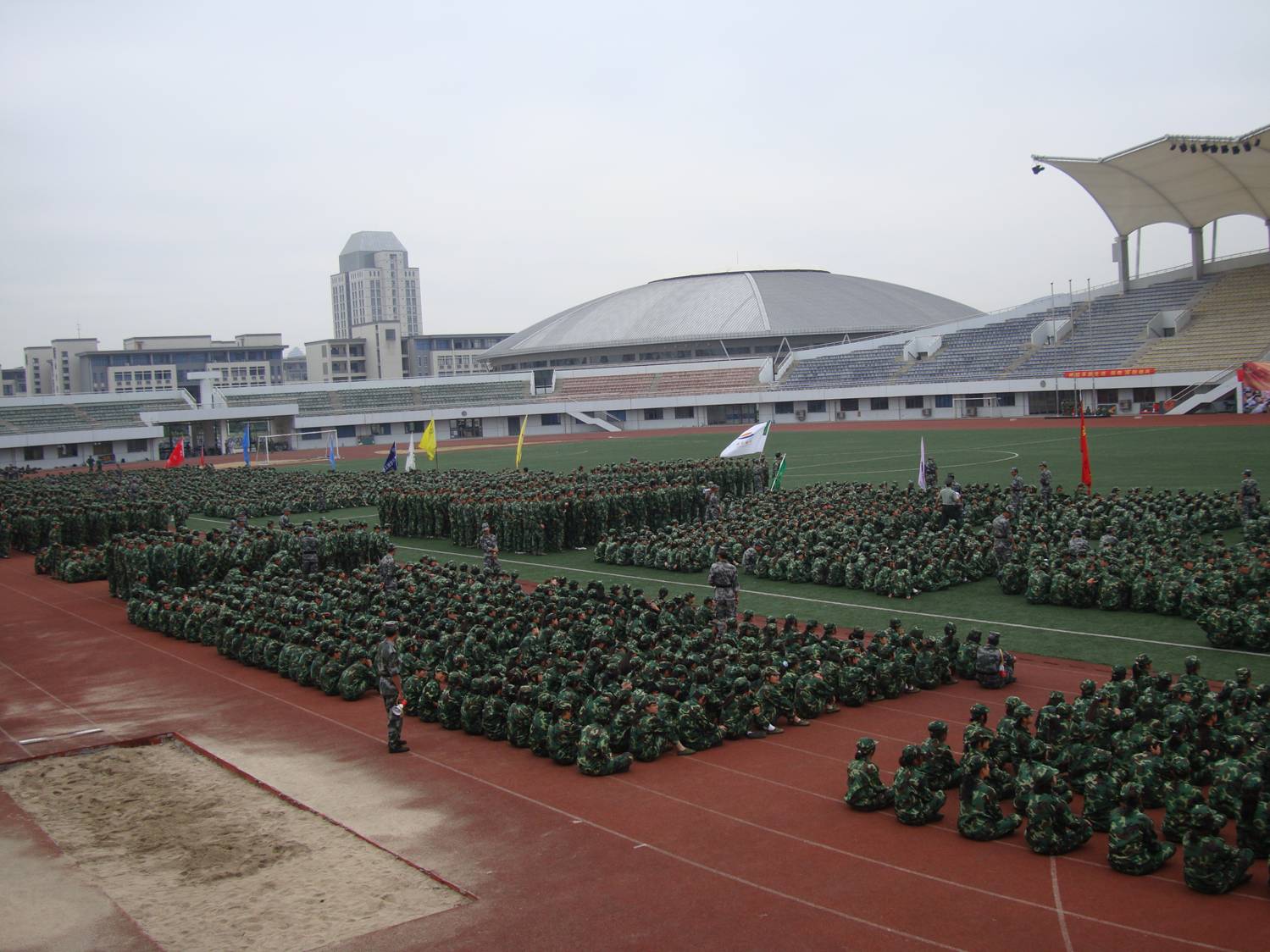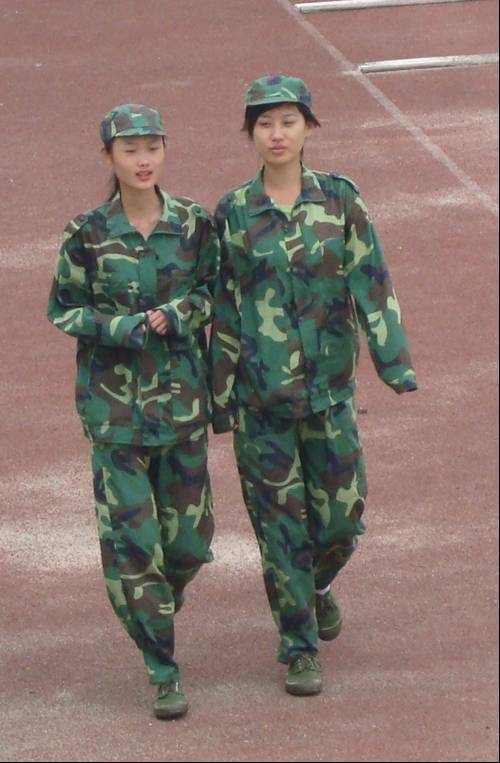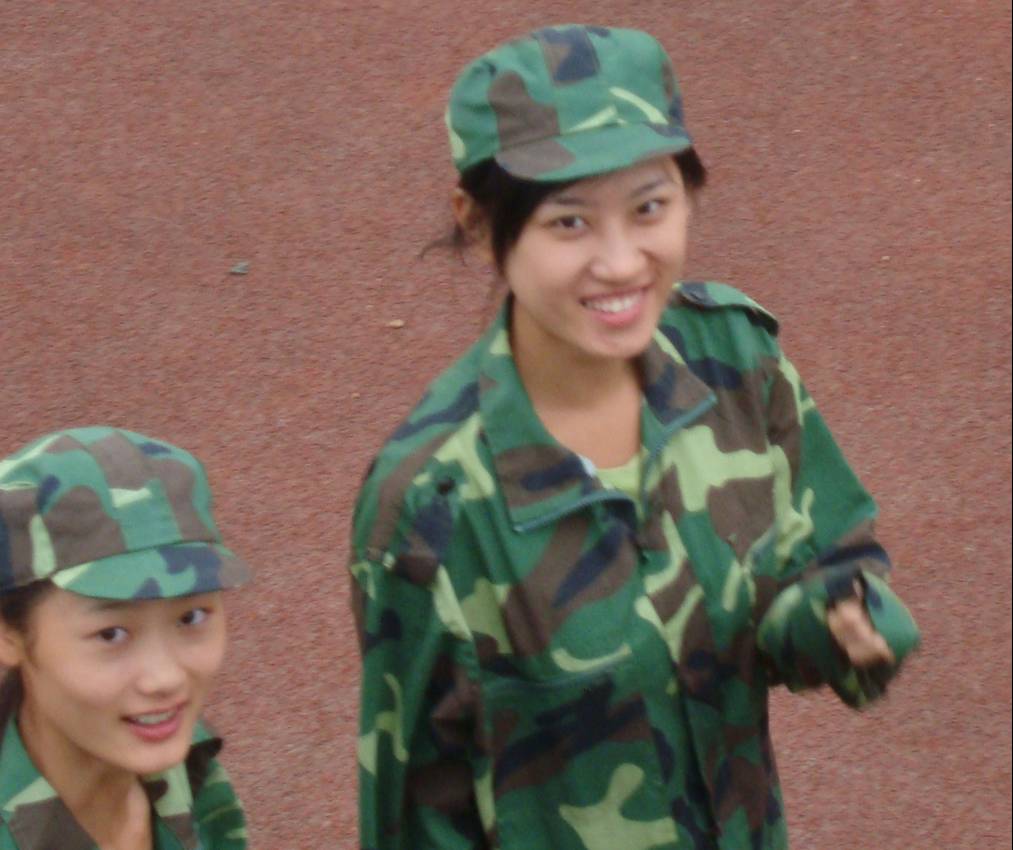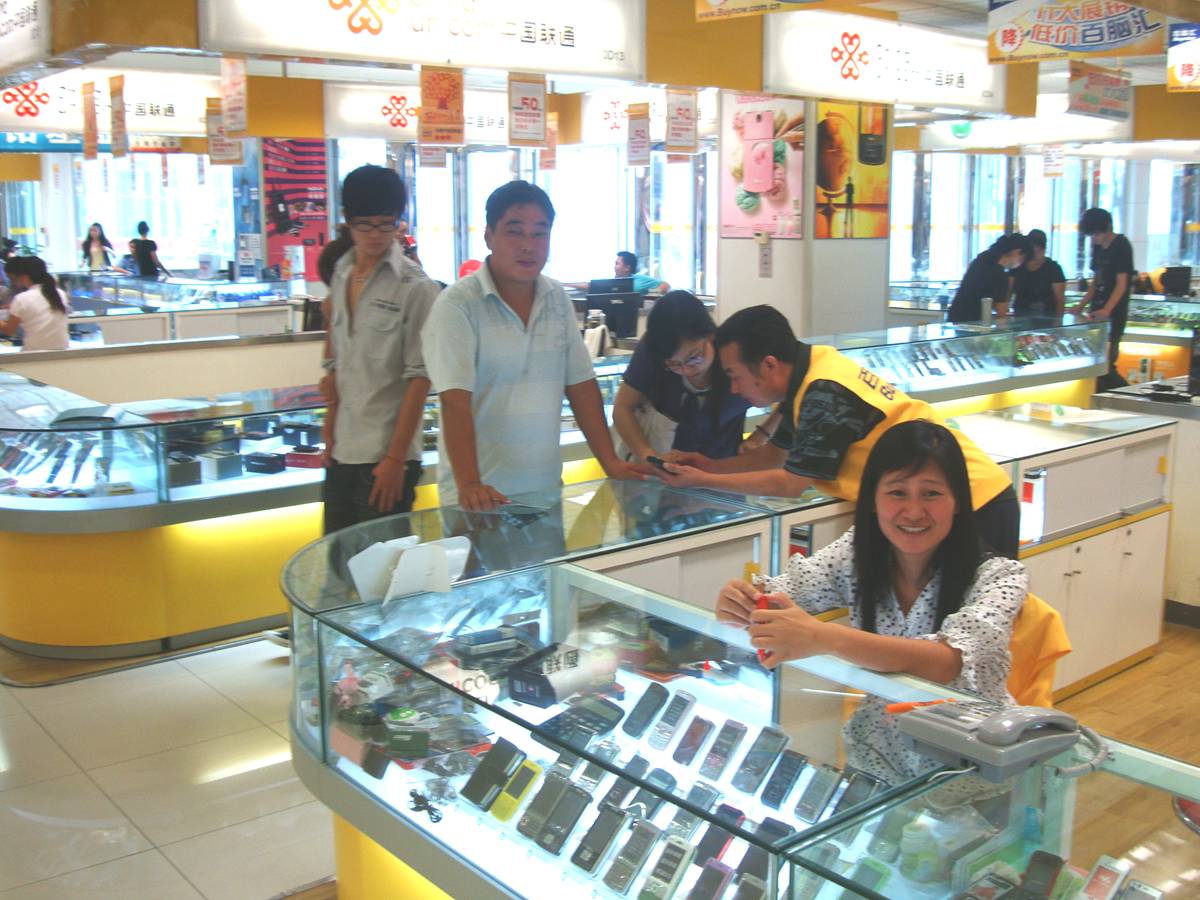|
Christmas Dinner
Chinese
word for the day:
Christmas
Chinese Corner on Christmas Evening
Gifts from the Boss
The head of our department and her assistant showed up at our door with a scarf for me, and a string of pearls for Ruth. There's also two big boxes of apples we just picked up today. All in all, this place treats us very well. Gifts from Students
This is the best gift my students could have given me. Something to remember them by, and thoughtful expressions of appreciation and friendship.
The Chinese Knot Lesson and Lecture As part of the Christmas Day celebrations, the administration laid on a lecture on tying Chinese knots. As an old sailor, I've always loved knots, and the Chinese are masters of this decorative art form.
We always appreciate this kind of effort by our administration. After all, one of our reasons for being in China is to learn about the culture. And something that gives us a hands on experience is always welcome. Now, if I can only remember how that knot was tied... The Christmas Morning Culture Party
Christmas Eve cocktails at Elaine's I spent most of the party in the Kitchen enjoying my violin and supplying background music. A great party.
The Christmas Dinner at a Five Star Hotel Once again, thanks to the administration of Jiangnan University for another feast.
Dinner with our Fellow Teachers at a Japanese Restaurant
Click here or scroll down for the whole story and application details..
C December 11, 2009 "individualism", a big word for "selfishness"?
The Chinese National Anthem
Student: Why are you doing that? Me: If you came to Canada, wouldn't you learn the Canadian national anthem? Student: Of course. Me: Then why wouldn't I learn the Chinese national anthem? So, for all you 外国人 (wài guó rén literally outside country person = foreigner) in China, here it is: The Chinese national anthem, with pinyin pronunciation guide and translation.
C December 10, 2009 Further Exploration of "individualism"
Christmas is Upon Us Again
Chinese word for the day:
December 9, 2009 Chinese understanding of "individualist"
What do you do
when an English word is given a meaning in another language that is not
the same as the meaning we give it? The problem may be that the
Chinese worldview does not hold our concept of "individualist".
The only people who are expected to act on their own beliefs are the
accepted leaders. I don't know whether this is true or not.
以 人主义 (yǐ rén zhǔ yì) using person doctrine 特例独行 (tè lì dú xíng) special case insist on one's own way (student defined as "inventive, original") 自主 (zì zhǔ) act independently (student defined as "autonomy") 自我实现 (zì wǒ shí xiàn) self-realization; self-fulfillment (student defined as "realize individual value") 有主见的人 (yǒu zhǔ jiàn de rén) know one's own mind person (student defined as someone who has thoughts of his or her own and keeps the position unwavering. Someone who has principles in his life.) 独立 (dú lì) independent (student defined as "be independent") 人本主义 (rén běn zhǔ yì) human-centered thinking (student defined as "humanism") Cinderella, one of
my third year English majors, told me that their translation teacher had
corrected a translation of "individualism" from 个人主义 (gè rén zhǔ yì)
to 个体主义 (gè tǐ zhǔ yì) which she says is neutral in moral connotation.
My dictionary doesn't list all four characters as one word, but the
first two, 个体 (gè tǐ), mean individual and the second two, 主义 (zhǔ yì),
mean doctrine. Chinese word for the day: 分享 December 4, 2009 Culture and Language Discoveries
Chinese word for the day: 自行车 November 30, 2009 One More Discovery in China
Chinese
word for the day: 难以置信 November 28, 2009 Wrasslin' with Chinglish
Chinese word for the day: 正
November 25, 2009 No it Wasn't H1N1 The flu alert has locked down the school. I'm told the campus hospital is full, with students cluttering up the hallways. Starting last Wednesday evening and slowly building, something nasty hit me hard. Monday I was too sick to get out of the apartment. I cancelled Monday and Tuesday's classes and stayed in bed for two days, only getting out to make it to my Special Class last night. I'm pretty sure it wasn't H1N1, but plenty bad enough. Now I'm definitely on the mend, but I feel like I lost two days of my life. Shanghai Weekend
Once again I'll mostly let the pictures speak for themselves, though in this case my pictures do not do justice to the decadence of our weekend. Thanks, Doug.
Speaking of Fitness...
Chinese word for the day:
气喘吁吁 November 18, 2009 The Christmas Bursary Again
Wow, What a letter. Since receiving it I've had a great conversation with my new friend Chris Knight. I asked his permission to post his letter. His response: "Of course you have my permission to mention this on your website. Maybe others will pick up on the idea and spread a little cheer themselves this Christmas." So this was the kick I needed to post this announcement: Please note: we do not give to finance any business ideas. You don't need
to be in desperate need to ask for money, but please
consider your situation. If your family is doing okay,
compared to other students, maybe there are students more in need
than you.
For the past two years, the Christmas bursary has become the most gratifying, satisfying, and wonderful way to celebrate Christmas. We got far more pleasure out of helping students who needed help than we ever could have had from any present. So... we're doing it again. There's a limit, of course, to how much we can contribute. But if you are a student whose life, or the life of a family member or friend, would be improved a lot by a small amount of money, please think about applying. Among the recipients in past years year we gave:
-To buy a blood pressure machine for a student's father and small
Christmas gift for his girl
-To buy books, pay an English test fee, get a medical check-up
for mother, and buy a -So that a student could go home for Spring Festival -To pay the fees for an Oral English test and repay a debt. -To allow a student to focus on studying for exams instead of being forced to take a job. -To buy a student a train ticket home and pay end of term living expenses.
-To help pay the air fare to allow a student to take his friend who
was dying of None of these bursaries were huge amounts. The most we gave to any one student was 800 RMB.
The Weekend Outing to Ningbo and Yandang Shan
In Other News I try to post everything I think might be of interest on this site, but there's no way I can keep up with everything. Stuff happens.
Chinese word for the day:
小费 November 08, 2009 Translated Jokes Fall Flat We had another Chinese corner last Friday. That was exciting for us, and a good party, but maybe ho hum to write about again. Three foreigners in attendance, plus about a dozen very helpful students. Ruth came away feeling encouraged. She had a couple of hours of speaking nothing but Chinese, and finds she can now communicate increasingly complicated ideas.
I came away feeling less encouraged. My communication still feels like baby talk, and my carefully prepared translations of English jokes fell flat. Tough audience, bad delivery, or bad jokes. It's hard to say which. Probably a combination of all three. Here's one of my jokes:
I love this joke because it reminds me of life. We are all falling from a very high place, and all of us are saying "Well, so far so good." The splat is coming, but we have the ability to ignore it and be happy anyway. The Chinese can say something the equivalent of "so far so good", but apparently it doesn't have the same resonance for them. Or maybe my joke just isn't funny, even in English. You tell me, okay. Have I Said it All Yet There's lots going on, but I've posted most of it before. Life settles into routines, even in China. Studying Chinese and class prep evaporates our time, but don't seem worth documenting. I'm spending a lot of time at this computer, preparing for my News Reading classes and putting together a power point presentation for the Special Class audition that I'll be holding on Tuesday evenings. Apparently I'm soon going to have a violin student. Nothing feels worth writing about, without long and tedious explanations. Last night we went downtown to the Blue Bar for a hamburger and a pina colada. Same old same old. All the stuff of a wonderful life here, but boring to share.
Okay, here's
something to talk about. With the Internet we can live in an
English language bubble here in China. The other night we watched
a
TED lecture.
Ruth has downloaded and saved all of them, and updates as new lectures
are released each week. We watch one or two a night, just before bed,
and these entertaining talks keep us informed about the cutting edge of
social and scientific development. One we watched recently
featured
Billy Graham. I haven't listened
to Billy Graham since I was a kid. My
mother watched his
TV show religiously (so to speak). It was a surprise to
see him give a TED lecture, and he started his
talk by commenting that he felt very out of place himself. The old
bible banger was as slick and charming as ever. I actually felt
some affection for him, as did the TED audience, obviously. He is
after all, now age
ninety, an icon of American culture.
Chinese word for the day:
野餐桌 November 4, 2009 Questionable Science In one corner we have what, until recently. has been a few maverick scientists plus big oil and coal with their unlimited budgets for lobbyists, commercials, funding "scientific" studies, hiring PR companies, and financing Astroturf organizations - all aimed at creating doubt about the role of human activity in climate change.
In the other
corner we have legitimate scientists, wannabe scientists, people with no
scientific credentials at all, environmentalists and political
activists all trying to build or defend reputations, get grant money,
solicit donations, or get a share of the limited government funding for research. There is no such
thing as "pure science" untainted by human foibles. Who do we
believe? Which way do we jump to get out of this particular frying
pan? Can we avoid the fire? (Can this writer stop using these
clichéd metaphors?) My friend Gary, a former teacher here, sent me the following link. http://www.middlebury.net/op-ed/global-warming-01.html I read it all.
Every word. The author describes the global warming crowd (my
side, by the way) as "hysterics" and "hoaxers" and their work as "junk
science". Well if my side is doing junk science, this is right
wing talk radio science, spackled with name calling, vitriol, sarcasm,
and smug superiority. The problem is we can't ignore the
arguments. Maybe calling the global warming alert a hoax and
comparing it to the Piltdown man is going a bit far, but what about the
science? Did Al Gore make a huge mistake, and suck most of the
world along with him? Did he get the cause confused with the
effect? Is CO2 a result of global warming, and not the cause of
it? Is CO2 not a significant greenhouse gas? Are carbon
credits and capping carbon emissions a waste of time and a
misappropriation of resources? November 1, 2009 Hallowe'en and the Emperor Walks Again Chinese word for the day:
把玩 One thing we miss here is handing out candies to kids on Hallowe'en and seeing all the costumes. There's a possibility that one of Ruth's friends will set up a web cam in Winnipeg to let us enjoy this vicariously next year. That would be fun, and our students would be able to tune it too if they are interested. This year the best I could do is take the emperor's robe off our wall and wear it to deliver some Hallowe'en candy to an English corner.
As usual we had a great time talking with the students. We also enjoyed Michael's presentation about his SCUBA adventures and NASCAR race photography. So many of the foreigners here have really interesting backgrounds. Which figures, I suppose. Only the more adventurous will teach in China. Chinese Corner at Our Place You wouldn't think
it would be hard to practice speaking Chinese in China, but it's next to
impossible. All of our students speak excellent English, and
that's the language they want to practice with us. Their English
is so much better than our Chinese that we very quickly find ourselves
using an English word, and then it's game over. The rest of the
conversation is in English.
Now, thanks to the
organizational initiative of our friend Fonzie (seated second from right
front row), a number of students have started coming to our apartment
every Friday evening to help us practice Chinese. They are
wonderful, patient teachers. This week we even had three other 外国人
(wài guó rén - outside country person, foreigner) join us. So
maybe the Chinese Corner can become a regular event. We try to
make it a party, not a chore. Chinese word for the day: 结果 October 28, 2009 The Chinese Characters Graphics Problem
Last week I said that I wasn't going to post anything for a while because I wanted to fix some problems with my site graphics on the learning Chinese pages. But... I've been too busy lately to get to them. So if the graphics of Chinese characters look clipped to you, it may be because you are using Firefox or some other browser. They look fine with Internet Explorer. Fixing them for both browsers is going to take more time than I thought. Congratulations to Echo and her Design Team Echo sent me an email to explain why she missed one of my news reading classes. She and her team went to Nanjing for a design competition.
Here she is with his design team, and their design - second prize winners. Congratulations Echo. Small Improvements that Make a Difference This campus is getting better and better. For three years now I've been cursing the speed bumps. I often have a my tin cup of tea in my carrier, and that means I have to either find the gap at the edge of the road or come to a stop to go over the bump. Nobody in China walks on a sidewalk, and students seem to bunch together when they come to the speed bump, so that they all can go through the gap and won't have to lift their feet. None of them spare a thought to the bike riders. It's a petty complaint, but then all my complaints are petty.
Now every speed bump on campus is being replaced with these ones with generous gaps for bikes. It may not seem like much, but it makes a difference. Editors at Work One of the Chinese teachers asked me to go over the English translation of an article about the new Wuxi Water Town Eco-museum. When I took my first pass at the document, all fourteen pages of it, there were many sentences in the original translation that I couldn't understand at all. Translation software has a long way to go before it works for Chinese.
So this turned
into a collaboration between myself and Jin Bo, initially at a campus
restaurant but soon back in our apartment on the computer, to find the
true meaning of the Chinese, and get it accurately translated. Violins in China When I came to China, it never crossed my mind that my Chinese teacher might also be a pretty good violinist.
I'm teaching Wang Yijing the old English melody, "Ash Grove" so that we can do the harmony as a duet. Another Birthday in China I thought I had some pictures of the food fight that ended our party at the restaurant, but I guess I was too protective of my camera to shoot any. A great party. Thanks folks.
When Overwhelmed is an Understatement Winkle delivers live crabs and chestnuts
Chinese word for the day:
静夜思 October 17 Later in the Day, Just Had to Mention....
You know the world is getting flat when you eat Mexican food in an Australian restaurant* in Wuxi, China, while listening to Canadian singer Anne Murray cover Hank Williams classics.
*Ronnie's Australian Bar and Ned Kelly's Kitchen, near Nan Chan Si. Really good Western food. Can't tell it from home, especially with Anne Murray on the speakers.
Chinese word for the day: 乡愁 October 17, 2009 Sorry, No New Posts for a Week or So I've known for
some time that my graphic Chinese characters do not display properly in
browsers such as Firefox. They are clipped and don't show the
whole character. By the way, if you see anything amiss on this site - pictures that don't display, links that don't work, or just mistakes or stupidities - please take a few seconds to click on the comment link to the blog and let me know. It's faster than sending me an email. Possessed by the Devil* Since we bought the exercise machine our numbers have been steadily moving up. At first I thought I'd never break 300 calories in a half hour workout. Then in the attempt to break 400 I accidentally hit over 500. My record until today was 647, so of course I've been aiming at breaking 650. But when the timer hit 0, the calorie counter was at 666. I think the machine is trying to tell me something.
Chinese word for the day: 绕口令 October 15, 2009 Science in Real Life Since we bought the exercise machine, back in February right after the Spring holiday, we've been using it every single morning that we've spent here in our Jiangnan University apartment. I've been doing my own little science experiment.
The hypothesis -
if I exercise every single morning for half an hour, and really get my
breathing going and work up a good sweat, I'll lose my middle age pot
belly and have the body of a teenager again. That was the theory.
The experiment was to do this, and check in on the results. Fall is coming to Wuxi. The weather has cooled down, the humidity has dropped, and today we have a perfect temperature and clear blue skies, so rare for this part of China. I rejoice, even as I anticipate the coming winter. At least we have right now. And now is wonderful. October 10, 2009 Foreign Expert Evaluation
Yesterday I
received an email from the administration requesting me to fill out an
online evaluation form that includes a
personality test, a world knowledge test, a written essay, and a resume.
Here's my test result for the psychological evaluation. I scored 39. The test doesn't say whether this is 39 out of 40, or 39 out of 100, or 39 out of 500. I'll admit that I didn't spend a lot of time thinking about the questions, mostly because I have no idea what answers whoever invented the test thinks are better than the other choices.
I find it fascinating that I got a high (higher?) score for Emotional Stability, but a low score for Extent of Mental Health. (I suppose it is possible to be emotionally very stable while at the same time being crazy. But who makes this judgment, and based on what?) The low score for Confidence and Inspiring Capacity is also interesting. Do I come across to my students as a guy who lacks confidence? I'd be interested in reading student comments on this. Ruth just read this, and came up with a completely different interpretation. By her reading, the report isn't dividing MY test score into these categories and telling me where I excel or show a deficiency. By her reading, this is telling me that a high score indicates Heart Endurance, Sense of Achievement, Emotional Stability and a low score indicates Extent of Mental Health, Confidence, Inspiring Capacity, Comprehensive Analysis Ability, Response Ability . But this way of reading the results makes no sense to me at all. Does a low score indicate Confidence, or do they really mean "lack of confidence".. I think I'll stick with my way of reading the results, but who really knows. It's unclear to say the least. The Chinese leadership was trying to clean up Chinglish before the Olympics. so I take it they'd like to present a professional face to the outside world, yet here's an official government homepage, directed at the English speaking community, with some very, shall we say, unconventional English in it. This is a pity. There must be a few native English speakers in this country who would be happy to help. Here are my results for the Basic Knowledge Test.
This doesn't surprise me because I skipped all the math questions and didn't pay a lot of attention to the other ones. On the other hand this did surprise me because I expected a much lower score.. After class today I thought I'd see if I can take this test again, with the intention of pulling up Google and a calculator to see if I can get a perfect score. (There's nothing on the site that says you shouldn't do this, so I take it that it's an "open book" exam. If you can use Google and a calculator within the time limit, that seems fair.) No such luck. Attempting to take the test again brought up this error message.
So I'll have to wait for six months before I can repeat this test. Be warned. If you want to take the test seriously, do it on the first time through. There are a number
of ways to look at this evaluation. One is that this has no
meaning at all in the grand scheme of things. Go with the flow.
Everybody has to do it, so just grit your teeth and fill in the test
form. I'm not here to criticize the government or make trouble for
anybody. Go ahead. Fill out the tests. You can register with a temporary user name, just to see what it's all about. Let me know what you think. Let's hear from you, folks. October 9, 2009 Computer Translation - Another Threat to Language
My News Reading class had been discussing the film "Wag the Dog", and the students were to send me their opinion about whether events in the film could happen in real life. Here's an excerpt from one email:
This made me suspicious and prompted the following exchange:
I'm reminded of something I read back during the cold war, when Americans were trying to develop a Russian translation machine. One way to test such a machine is to input a sentence in one language, then input the translation and see how closely the result matches the original. The sentence they input was "The spirit is strong but the flesh is weak." What came back was "The wine will get you drunk but the meat is tasteless." October 7, 2009 Major Update Due and Coming Soon We're back from our two days in Suzhou. I'll have a report and pictures up soon. But for now, here's a comment on the blog that deserves to be pulled up on to the front page.
October 2, 2009 Chinese word for the day:
万花 筒 I often find Chinese very poetic when I learn the literal meaning of words. After all, what does "kaleidoscope" mean? It's an invented marketing word, a nonsense word, an attempt to sound scientific, with Greek roots that are meaningless to us. How much more descriptive is "thousand flowers tube". Someday I'll write a poem in English but using the literal Chinese translations of our words, just to see if it comes out as poetic as I imagine it will. Shyness, a National Affliction
Once again I return to the subject of shyness. My students all have huge English vocabularies. What they need is confidence and practice speaking English, and for this they are their own worst enemies. Here's an excerpt from a student's assignment, and my response:
On a personal note: I set a new personal best on the exercise machine this morning. 657 calories in 30 minutes. (MUSIC UP: the theme from "Rocky") These are probably not "real" calories, but we think they give us a good relative measure of how we do from day to day. A few months ago, the goal was to break 400. September 30, 2009 A Song That Bridges Cultures Chinese word for the day: 难怪
This is the most performed of our Chinese songs. As you can see, it has a lot of verses with few repetitions, so it was not easy to learn. I'll tell you why it's my favorite song after you check out the lyrics.
It's probably obvious why I like this song. Every line in it resonates with memories of my own childhood. I'm sure my students, especially the ones who have never talked to a foreigner before, think that westerners are very different from "Chinese people". So I like to sing this song for them and then let them know that we all share the same experiences, and that at the deepest level we are one and the same people. The Welcome Dinner 2009 Last night the
Foreign Languages Department once again took us to a very fancy
restaurant for a welcoming feast to celebrate mid-Autumn Festival and
National Day, this time to a nearby five star hotel where the buffet was
very fresh with a combination of fabulous sashimi, grilled to order
western food, including a reasonable coffee, and delicious local
specialties such as Wuxi Pai Gu (Wuxi style spare ribs). It never
ceases to amaze me. Five years in China and I'm still tasting
things I've never seen before. Last night it was taro roots. The
way they were presented at this buffet, you peel off the thin bark like
skin and dips the starchy core in sugar. Not something I'd go out of my
way to find, but interesting.
One thing I do want to mention though is something Jim, the retired Supreme Court of California judge said to me. He remarked that this is the best job he's ever had. Now, I assume that a Supreme Court judge in California is reasonably well paid, and that the work is not without some serious social and financial perks. So hearing him say this was a surprise. I thought I was the only person who felt this way, and lots of people have accused me of being in denial and secretly pining for a comeback in the film business. So it was great to have Jim confirm my opinion of this gig. It also made me feel good to hear fellow teachers talk shop with such enthusiasm. Yep. Best job I ever had. You too, eh Jim. Good on ya. September 29, 2009 Happy Birthday PRC Chinese word for the Day:
看不见
Last night we were treated to a reception in honor of the 60th anniversary of the People's Republic of China. A few speeches, mercifully short, some acrobatic and dance performances that were quite charming, and the usual delicious Chinese food.
Our table
companions included a Chinese gentleman who has spent two years in New
Zealand and completed his education in England and now works for the
Foreign Affairs Office in Wuxi. A very interesting man to talk to
about China's position in the modern world, and China's attitudes to
such things as the Internet and Facebook. September 27, 2009 Another Legacy From Mao Chinese word for the Day: 歌德派
It's so hard for a
foreigner to really appreciate why things happen here. National
Day is coming. This is the 60th anniversary of Communist rule in
China. The government is anticipating protest, and preparing for
it. This means that the guards at our gate are more diligent.
Yesterday my driver was stopped at the North gate and told he had to go
to the East gate, a mile away, to get on to the campus. To us this
seems incomprehensible. Why on earth do they make us waste the gas
when my apartment is just two blocks from the North gate. What
possible benefit could there be to restricting that beautiful wide road
to one lane with their accordion barricade, and hassling everybody who
goes in or out?
What China needs,
if I could presume to know, is a period of healing and
reconciliation, something akin to the process that South Africa went
through, is going through, after apartheid. But Mao poisoned the
water for that kind of process. He did what he called "inviting
out the snakes". There was a period when criticism of the
administration was encouraged. That brought out a great
groundswell of constructive protest by sincere patriots who were
heartbroken at what was happening to their country and their culture.
The protests were carefully controlled and contained, so that the
criticism didn't spread very far. And then Mao initiated a great
purge. Anybody who had voiced concerns, no matter how polite and
respectful, about his policies, was severely punished. Many
lost their lives. So I don't expect any but the most disgruntled
or unbalanced to get involved in protest here. Another Night of Performing Waiguo Last night we sang a couple of songs for the English Flying Bar (The club for students who want to improve their English. Don't you just love the name?) opening party.
Then we crossed the hall to drop in on the Muslim ethnic minorities party and were treated to some great Mongolian, Uighur, and Cossack dance and music.
Many of these students are from Xinzhang, where the recent riots claimed many lives, and Tibet. We were pleased to learn that they don't hold the Han Chinese students in any way responsible for the troubles back home, and tell us that they get along well with their Han Chinese friends. In response to a question, "Do you think of yourself as Chinese?" the student looked very surprised. She replied "Yes, of course." This is comforting. September 27, 2009 Life in a Bubble I responded to one
blog comment from a reader yesterday with a line from a favourite Robert
Burns poem, "To a Louse" - "O wad some Power the giftie gie us To see
oursels as ithers see us!"
I'm not going to
try to justify my behavior with the shop keeper over that phone.
There are two sides to the story, and I can see his very clearly.
I'm a little ashamed of getting sucked into the theater of the
situation. I'm a little ashamed of being, for that time, the ugly
foreigner. I posted the incident mainly to warn other foreigners
about the knockoff products, and to let them know that they can't expect
a refund if they are not happy. (I suppose nobody but the
terminally naive really needs that warning.) Part of the problem was
that I didn't buy the phone on the street, from the guy selling Rolex
watches. I bought it in what appeared to be a modern department
store, from a shop keeper who gave me a receipt. I would have accepted
the offer of repair if the phone had been a real Nokia. But...
well, enough about that. And now I actually have some real work to do. Time to get the class prep done. September 26, 2009 Caveat Emptor (Buyer Beware) I'm back from the downtown phone store. Did I get satisfaction? Well, no. Voices were raised. Panda and I took turns playing good cop bad cop. The booth manager was not interested in returning my money. His position was that the phone could be fixed. My position was that I didn't want it, fixed or not.
Mr. Chen and Panda argued with him on my behalf with endless patience. All the while I was thinking, my time is worth more than this. I found myself with a choice. Walk away empty handed, or pay more money and get another phone. I'm not feeling like I won this one, though Panda assures me that the new phone is worth the money.. I paid another 600RMB for what appears to be a real Philips, but a very basic phone. I'm back to buttons. It will be a while before I go for a touch screen again. September 26, 2009 Apologies to Nokia 不好意思 In my earlier post I ranted about the failure of my new mobile phone, and noted that I had thought Nokia was a good brand. Well, I'm sure Nokia IS a good brand. My phone is not a Nokia. It's a shanzhai knockoff of Nokia.
This phone looks real. In fact, it looks perfect. It was beautifully packaged, just like the real thing, and worked well enough for a week to have me fooled. I did wonder why it was so cheap, and now I know. I'm taking it back this morning and looking for an O that doesn't have a split down the center. The Man in China Blog Policy Changes As fast as I announce a policy, I find I have to change it. I'm not going to approve everything that people put up on the blog. If it doesn't relate to something I've posted, or have something interesting to say about China, it won't get approved. Especially if the tone is aggressive and confrontational. People can throw their cut and paste Internet junk someplace else. September 26, 2009 Frustrations of Life in China (or anywhere)
We're planning a trip to Suzhou for the coming holiday. Two days ago I went to the campus ticket office to buy our tickets, only to be told I couldn't buy them yet. Come back tomorrow. This wasn't really a surprise. It's common in China to be told you can't buy tickets until the week before the train is scheduled to roll. Who knows why. It's like planning ahead is a bad thing. Sometimes I think I've been in China too long if I let this kind of thing annoy me, but today.... well, my excuse is below.
Today I returned, and once again waited in line, only to be told the
same thing. What's with the Chinese train system? I could
buy our tickets to go to Suzhou, on October 4. I just couldn't buy
tickets to return on October 5. Talk about the mysteries of China,
this is a big one. The Touch Sensitive Screen That Isn't Now my excuse for losing my usual cool: I've got to return my new phone. Don't you just hate it when this kind of petty hassle happens? I thought Nokia was a reliable brand, but there is nothing more frustrating than a touch sensitive screen deciding that it isn't sensitive at all. Sheesh again.
September 25, 2009 Old Dog Learns New Trick I learned
something this week, and learning it made me very aware of a tactical
blunder in my teaching. If my goal is to lead my students to a new
understanding of a subject, and have them deal with information with an
open mind, it's counter-productive to ask them to close their minds
before my lecture. But that's what I did. Here's how. Cognitive Dissonance This is the term
for what happens when we try to hold two conflicting ideas at the same
time. It makes us very uncomfortable. We want to resolve the
conflict in our brains. September 21, 2009 Name this Snake I don't mean give it a name like Charlie or Fred. We need to identify this snake.
The head of HR
(Human Resoures) at a multi-national company plant in Nanjing contacted
me recently. They are finding snakes on the company property.
They want to know whether there is any danger to their staff, whether
the snakes are venomous, and what to do with them.
While posting this item today, I remembered that we saw a dead snake in May of 2008 in a park in Nanjing. In response to posting it on my site, somebody named Matt sent me this email:
So this probably settles the issue. I'm waiting to hear back from the HR person in Nanjing, to learn whether this looks like the same kind of snake. September 20, 2009 My Favourite Chinese Poem
Here's a poem that most people in China have memorized. If I start to recite it in class, the whole class joins in.
I'm not sure what resonance this poem has for Chinese people. Aside from the vivid images (A sun leaning on the mountain is either rising or setting. Sunset for the Chinese is symbolic of old age. But this is still a white sun.) for me it speaks to trying to see the big picture, trying to gain understanding. To hear a reading of this poem by William, our former Chinese teacher, just click here. September 19. 2010 A Blog Policy Statement I'm new to
blogging. I've had this site for years, but I always resisted
sticking a blog on it. I figured if people want to say something
on the Internet they could get their own site. Now, of course,
many can say something on this Internet without getting their own site,
through Facebook, which is currently blocked in China, much to the
chagrin of just about everybody. My students who were making
foreign friends and practicing their English on Facebook are just as cut
off as I am.
I intend to approve everything, even if it's racists, sexist, or excessively rude without justification (I'm trying to keep this site family friendly, though you can find the F word on it if you look hard enough.). I will delete a post that has a high probability of getting my site shut down and possibly getting me kicked out of the country. But generally there's enough censorship in China without me adding to it. Turns out I like to hear from my readers. Bring it on, folks. Adventures in Dog Ownership in China
We had visitors last night, a dozen or so students who wanted to practice their English, and one who wanted to offer me a game of xiang qi. (ended in a tie after a hard battle). When our guests left, our dog left with them.
Ruth didn't notice that the dog was gone for maybe five minutes.
Sometimes she (the dog, not Ruth) hides under the couch when fireworks
go off or something scares her, or just when the mood strikes.
Ruth got out a flashlight to check. We searched. Then we
expanded the search to the great outdoors. Then I called my xiang
qi partner who told me he had seen the dog run down the stairs when they
left. He thought she had gone down the road toward the campus North
gate. He joined the hunt. Ruth and I raced all over the
campus on our bikes. I was rather amazed at my level of anxiety.
Not a sign of GouGou anywhere. My student friend called me again
to say that the guards at the gate had not seen her. I decided to
see if she had gone home on her own, and yes, there she was waiting at
our door. *Sheila's wonderful little dog, Hero, a Shih Tzu I think, was lured to a horribly gory end by a pack of criminal coyotes in Peachland, B.C.. Foreign Devil* Disrespecting Historical Sites This just in from Joe, a former teacher here at Jiangnan University. We miss you, Joe, in spite of everything.
*totally justified in this case, obviously. September 17, 2009 China Looks Bad to Foreigners. Again.
This is the first time I have had anything even slightly critical to say about China. But China has now done something that I don't like, and I'm sure all other foreigners feel the same. It makes China look very bad to us, and this is a great pity.
September 13, 2009 The Endless Birthday Officially Over
Ruth's birthdays are becoming like those Gypsy weddings that go on for a week. Last weekend we had our private dinner at the downtown Japanese restaurant. Last night we had a small circle of friends join us for a duck dinner at the Hundred Noodles Restaurant in Shi Tang Jie, the little village now engulfed by the urban sprawl of Wuxi, near Jiangnan University.
Not that I mind at all. It's great to get together with our friends and it's fun acting like a big shot. Just to give you some idea of the prices here, Ruth's birthday cake, from a bakery on campus, cost me 158 RMB ($24.91 Canadian), a price that surprised me and seemed very high.
The dinner for eleven, with delicious duck, farm raised frog, chicken soup, tomato fried eggs, shredded potato dish, two different tofu dishes, a beef dish, and a fancy fish dish (above right) in a private, smoke free room (until the plastic candle gadget on the cake malfunctioned and filled the place with plastic fumes), came to a total of .... wait for it.... 209 RMB ($32.95 Canadian). Amazing. So Easy to Criticize China from the Outside This morning a friend send me a notice
that had been sent to her by an organization called the International
Fund for Animal Welfare, protesting the culling of dogs in Qin Huang
Dao, Hebei Province.
To those who are quick to criticize China, please consider this: in virtually all Western countries it is still perfectly legal to cut off part of an infant boy's penis for no medical reason. Maybe there are things at home we should protest. September 11, 2009 Chinese Phrase of the Morning 鸡蛋碰石头 (jī dàn pèng shí tou) Literally
"egg meets rock". This very descriptive idiom is used for an
enterprise that is doomed to failure or a quixotic charge into futility. September 10, 2009 Teacher's Day and it's Showtime
Michael picked us up at noon today to drive us to the new Municipal Hall where we waited our turn to entertain the full house audience. We watched the main show from the sidelines, and an incredible show it was.
We sang our favorite Chinese song, "Tong Nian" (Childhood). I'm not sure it was our best performance, but the audience seemed okay with it.
At our level of performance, it's hard to imagine having an audience of this size back in Canada. For a guy who likes attention, China is the place to be. Further Precautions Against H1N1
September 09, 2009 The Woman in China Goes Online For her birthday I bought Ruth a domain
name of her choice, which turned out to be
www.thewomaninchina.com
. Since then she's been having a great time developing her own
web presence, and has now given me permission to make this announcement. September 09, 2009 Military Activity on Campus
Six in the morning and we wake up to blaring loud speakers and martial music. It happens every term, as the new crop of freshmen are introduced to the Chinese military. I rather like the music.
Freshmen all got two weeks of what seems to be mostly marching practice. I got two weeks with a very light course load.
This university accepts students from all over China, including Tibet. I'm pretty sure these two weeks of training are essential, if only to achieve a uniform level of personal hygiene and bed making skills.
Precautions against H1N1 As I write this, there are several students in the campus hospital with confirmed cases of H1N1. The day before yesterday, Michael, our administration connection, came to our apartment to give us face masks and thermometers. We're not required to wear the masks, and right now we don't. So far we haven't felt any need for the thermometers, but I do appreciate the way this university takes care of us.
For a while there was a nurse stationed at the entrance to Teaching Building one, efficiently taking student temperatures as they came for classes. We're not worried. This variety of flu doesn't sound much worse than the average seasonal infection. And older people are reported to be more resistant. So, aside from not dipping my chopsticks into the communal food dish for a while, l live life as usual. Chinglish Again, with an Explanation I love seeing signs like this one, which I found at the top of the stairs at a Japanese restaurant downtown. Unfortunately, the staff saw me take the picture, and asked why I was interested. So this sign will probably be replaced.
The first two Chinese characters read 小心
xiǎo xīn (literally "small heart" but meaning be careful) so I can see
where the "beware" came from. The second two, 碰头 pèng tóu, were a
mystery until I consulted my dictionary and found that together they
have three meanings - ①see each other ②meet and discuss; put heads
together ③hit one's head accidentally. Obviously the sign's
translator just chose the second definition when he should have read on
to the third. The Big News - bowing to pressure from readers you can now make a comment about anything on this site, initiate or join in discussions, by going to my brand new, bright and shiny Man in China Forum. Try it out. I'd love to hear from you. Especially if you have questions about English or life in China. September 03, 2009 the New Mobile Phone
When I first
came to China, five years ago, one of the first things I did was buy a
cheap mobile phone. It's been an essential lifeline in many
situation, but finally the numbers have worn off the buttons and it's
refusing to charge. I think I paid about 900RMB ($146 Canadian
today but much less back then. The RMB has gained on the dollar.)
for it back in 2004. It owes me nothing. Buying a phone here is not something I want to do without some help. Prices range from a few hundred yuan to a few thousand. My favourite driver, Mr. Chen, and my young graduate student friend, Jenny, took me to the ultimate phone store. I bought a Nokia Nseries touch phone with a 3.2 megapixel camera and a Carl Zeiss lens. Apparently it will do all kinds of things I've never asked a phone to do, like connect to the internet, record videos, and store simply gigabytes of information. All I'm going to use it for is text messaging and phone calls. I'm getting used to the touch screen. The price for this miracle of technology - 850 RMB ($138 Canadian), about 50 yuan less than I paid for my basic phone back in Tai'an. September 1, 2009 Epiphany of the Morning The creationists are right about one thing. We did not descend from apes. We ARE apes, only with big brains and special abilities. Let's see ourselves as we are. Special, but a part of the natural world. September 1, 2009 A Letter from Catherine in Canada I'm finding that one of the joys of this job is hearing from former students who are now out in the big wide world, experiencing life. Here's a picture and letter that Catherine sent to Ruth.
Speaking of letters from Students: Here's one from one of my students, Tom. I always try to answer any questions that students send me at length. Please pardon my rather pedantic response.
September Already and We're Back in the Swim of Things The weather has turned
pleasantly cooler and heavy rain has cleared the humidity since we
arrived. We're back to our half hour on the exercise machine every
morning, and we had our first Chinese class with Falcon yesterday
afternoon, right after Ruth's first Oral English class.
|



